#and not only that. its the best sherlock adaptation. and he would have to deal with it being the animated mouse one
Text
i think arthur conan doyle would be soooooooo smug that most sherlock holmes adaptations suck majorly. but then he’d see the great mouse detective and shoot himself
#first he would say what magic! this artful moving picture has so whimsically captured mice! it must be the work of faeries!#then he would be like i cant believe they made them fucking mouses im killing myself#and not only that. its the best sherlock adaptation. and he would have to deal with it being the animated mouse one
10 notes
·
View notes
Text
Sherlock Holmes - Kiss Me, Mr Detective
A/N - Season 1!Sherlock, the cutie. And friends to lovers. Two of my favourite things. I do not own Sherlock Holmes, the character, the universe, the adaptations or anything: this is a work of fiction set on the BBC adaptation of Sherlock. Did I still write 8.2k words (exactly) for it? Yes. I also don’t own the song or the lyrics used within, and if you fancy it, listen to ‘Kiss Me’ by Ed Sheeran while reading.
Warnings - Bad language. Mentions of murder and drug usage. Mild angst. Smut, loss of virginity, masturbation, oral m receiving, penetration, unprotected sex, so 18+.
Summary - After a fight with John leaves Sherlock feeling particularly down, he calls on the one person who is always there to support him. Only tonight, it’s different. Feelings come to a head, exploration ensues, but is this just a one time thing? That depends on whether she stays the night...
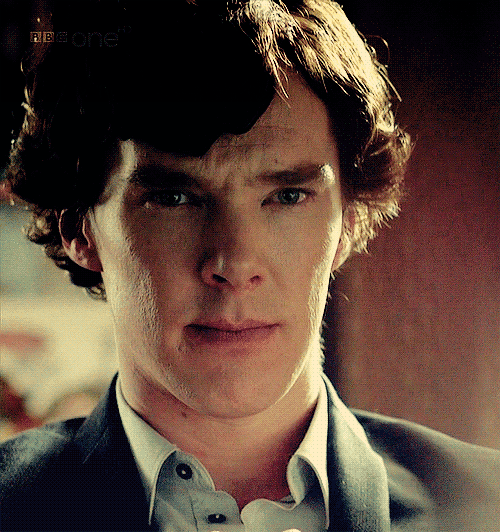
TO SHERLOCK, it’s just another normal day, whereas to John? He’d rather not admit how regularly these awful days roll around. Sure, the case didn’t go as well as it could’ve, and Sherlock admittedly could’ve made much more of an effort to comfort John after the apparent ‘heartbreak’ he endured. He just could not understand it. Why the hell was John so emotionally responsive to a case they’d been on for less than twenty four hours which turned out to be a bust anyway?
“You are absolutely unbelievable!”
“People die every day, John. You’ve killed people, as have I. It isn’t that great a surprise.” Sherlock deadpans, picking up his teacup, raising it to his lips, drawing a long sip from the warm liquid.
“Oh, yeah, of course. The proud, the cold untroubled heart of stone, that never mused on sorrow but its own.” John mocks. “Do you not even care that people are still dead despite the fact you solved the case?”
“They’d be dead either way,” he reiterates, “at least we got to them before they completely decomposed. Will me caring about them stop them from being dead? No, Dr Watson, it will not.”
“Sherlock!”
“John!” He mimics.
John slams his hands down on the desk, shaking the wood and everything resting on it, surely sending the vibrations through the floor and notifying Mrs Hudson of their ‘domestic’ as she so likes to call them. The buffalo even begins to swing. John’s tea is long forgotten, but Sherlock’s is keeping him grounded, calm, as John waggles his fist in Sherlock’s passive, blank face.
“You-” he pauses, gulping down breath. “You are a fucking machine, I can’t even deal with you right now. How dare you be so cold hearted and untroubled by this. You’re a disgrace.”
As if he hasn’t heard that one before, Sherlock scoffs.
Placing his teacup back down with a clink, he stands, the darkness of the night, of the room, closing in on them both. Nights like these really are danger nights, any night John leaves him. That’s what's coming next, but there isn’t a thing he knows to say or do to prevent the inevitable. He’ll simply just text Her instead, she’ll keep him grounded.
“Why? Emotional context? Emotion, whether of ridicule, anger, or sorrow, whether raised at a puppet show, a funeral, or a battle, is your grandest of levellers. The man who would be always superior should be always apathetic.”
With a huff like a bull, John viciously turns on his heel, blaspheming under his breath, cursing Sherlock out. He reaches for his coat and snatches it off the stand, slamming the door open.
“MACHINE.” John screams before pulling the door shut with a great slam, seething, the coat stand still rocking in his wake.
John’s footsteps thunder down the stairs, but before he’s even gone, Sherlock’s phone is withdrawn, and he’s tapping out a message.
Can you come over? Please? SH
It wouldn’t usually bother him as much. The case didn’t phase him, at all, but John’s opinion did. It always does. But today was a particularly long day of being brutish and rude, cold and distant, his usual and true self, but John’s more and more impatient with him now.
Being called a ‘machine’ is, again, nothing unusual, but this time it stings a little more than usual, especially after his recent arrest, and a fallout with Molly. He only has one person left, right now, who doesn’t hate him. His longest friend, the one he keeps away from it all so as to not tarnish her life with his misdeeds; Y/N, the one he can always rely on.
He knows she’s arrived by the sound of his window crashing open. Crawling up the bricks, skimming the drainpipe, latching onto the ivy; it’s her usual manner of entry. She never uses the door.
Putting his cups and saucers into the sink, he makes his way through the house, opening his bedroom door to find her already sitting there on the bed, her coat hung up on the hook, her work clothes clinging to her body.
“Hey there Mr Detective, you okay?” she asks as jovially as she can muster.
The way he ambles across the room, his dressing gown floating behind him, and slumps down onto the bed, instantly tells her he’s not okay at all. She can’t help but to look upon him sympathetically, edging a smidge closer to him, until he’s prompted enough to wrap his arms around her torso, finding his rightful place tangled around her. She knows him well enough - his past, and his current life - to realise she’s the only person he’s ever felt comfortable enough around to do this with, and that brings her a certain swelling pride in her bosom, one that doesn’t go unnoticed by Sherlock as he feels her skin heat up against his cheek.
It doesn’t take long, either, for his head to follow suit, burying into her chest. He’s always, always had a thing for her boobs, ever since they were in uni together.
That’s something so special about the two of them, he doesn’t have to say anything for her to know he’s not okay the way he does with everyone else. And naturally, he can read everything about her in a split second.
“I’m here, bud.”
Above all else, he just needs to know someone is there for him in moments like these. The world is cruel to him, and Y/N wishes more than anything that it wasn’t. Upon instinct, her hands stray, one to his back, pressing against the silk of his dressing gown, the other cradling his long neck, fingers knotting in the dark curls there.
She isn’t sure how long she stays there, simply holding him, feeling every twitch of his muscles, every breath of his against her skin, but she likes it. Of course she does, every time she likes it. Sherlock brings her an inordinate amount of comfort at the best of times, today is no exception, especially with what the day has held. Even when she’s the one comforting him, he doesn’t realise how much he helps her too.
His flat is so familiar, his bed as comfortable as her own. She knows his sock index, she’s studied his periodic table over his shoulder more times than she’d care to admit, and she even has her own toothbrush in the bathroom in case she has to pop over for an emergency freshen up. Sherlock has, and always will be, her first port of call, and that she remembers as she shifts further onto the quilted bedspread, her phone on his oak bedside locker.
His head begins to stir against her chest, his curls tickling her collarbones, small hums escaping his lips as he pushes himself up, his elegant yet trembling hands still splayed on her waist.
“I could feel your heart beating weirdly, what’s wrong?” he asks, quirking his eyebrows.
“Just the usual.” she vaguely replies.
Sherlock isn’t having it, though, and scans her a little more. “You’re still in your work clothes.”
“Great deduction. I was hoping you’d go a little deeper, though.”
“You hate wearing work clothes longer than necessary, which means you had plans straight after work, considering you finished… five hours ago? That’s your usual time for today. Counting overtime, forty five minutes, walk to your car, another ten, but your umbrella wasn’t working, round that up to an hour, leaving at 6. You arrived home, no, not home, at your boyfriend’s house for dinner. However, you’re not comfortable enough with one another yet for you to use his shower, or perhaps you are, but you elected not to, and stay in damp clothes that only had seventeen minutes to dry with the heater on in your car for the journey there. You ate dinner, Mexican, had a glass and a half of five percent wine, realised you couldn’t drive, but you didn’t particularly want to stay. Nonetheless you sat and watched the telly with him for hours, football, I can see the dreariness in your eyes. I know how much you hate it, and frankly, same. You stayed for almost all of the match, seeing as you’re now sober, but something else happened.” She lulls her head to the side, prompting him, her smile not meeting her eyes. “As soon as the match ended, he tried to make a move on you, he pressed his mouth to yours, he tried to push his hand up your skirt;” his throat bobs with a vicious gulp; despising the thought of anyone else laying a finger on her, “you swatted him away, rightfully so.”
He pauses a minute, his harsh tone of voice and his sharp face softening. He can see the vulnerability in her eyes, her walls about to crumble. This woman he appreciates so much. “He doesn’t deserve you.”
Smiling melancholically up at him, she brings her hand back to his hair, her fingers carding through the soft curls. His face buries back into her chest just as her voice offers a broken whisper, “I broke it off. I was the one who couldn’t commit this time.”
And as she lays her head on top of his, her breathing more shallow, resounding in her chest, he dwells over those very words. The way she said them, not to mention the words themselves, hold a myriad of meaning. What could she possibly-
Oh.
The subtext, yes, impeccable. She’s always had a way with implications and subtext, always knowing that the likelihood of him actually picking up on it is little to none. But now, now he’s become trained to her, her way of life, her way of thinking, her way of speaking. This is too good an opportunity to miss. If she means what he thinks she means, ever hopeful, then this is completely unfamiliar territory.
Gathering all of his courage in one deep breath, he begins to pepper kisses on her skin. The faintest brush of his lips on the tops of her breasts, all that’s available to him with her shirt the way it is. He feels her heart flutter, her breathing stutter, but despite the chemical flush of her chest, he still isn’t quite sure she likes it. Not until he feels her grip on his hair increase, and he glances up to see her head thrown back. Her spine delicately arches against his hand, thrusting her chest further into his face.
His nimble fingers reach for her buttons, undoing the top two, giving him space enough to find the valley between her breasts. Lathering kisses there, licking the swells of her boobs, his tongue pulsates with the increased thrumming of her heart. The sensation is new, so unbridled, and he doesn’t quite know what to do with the stirring in his loins right about now. That unknowing is only further amplified by the sound that rips from her chest when he involuntarily bites down on the supple flesh. It couldn’t be… a moan?
Sure, he understands the chemistry of it, the reactions that occur in the synapses of the brain, the pheromones and hormones released when one is aroused, but this is all new to him. And, from his embarrassingly basic level of theory, surely that doesn’t start until some more stimulation on other parts of the body commence? Nipples, perhaps something lower down… then again, what does Sherlock know?
Of course it’s an intimate moment, the closest he’s been to a woman before, and maybe that’s why he freezes, stops, and she tugs his head up by his hair, her gentle, pleasured smile with her lips softly parted deepening the look of bewilderment painted onto his face. Her eyes are twinkling, alight with an excitement he hasn’t seen for far too long.
“What are you doing?” she whispers.
He shrugs his shoulders with a sudden force, his dressing gown falling off a little. “I don’t know. But now I feel like I read your pining words all wrong.”
She gasps, a wheezing sound, sucking the air from the room. She smacks his arm gently, muffled by his button-down and dressing gown. “I wasn’t pining! I was saying.”
“Hmm, same difference.”
Everyone must acquiesce when it comes to Sherlock Holmes. “But no, you didn’t read them wrong at all, but I know you don’t see me that way, you don’t feel things that way.”
He pauses, his beautiful plump lips pursed, fidgeting on the bed. Brushing her hair off her face reveals the pain she expressed. However, her eyes glued on his, sadness is betrayed in every line of his young, clean-shaven face. His entire bone structure is taking a nosedive.
“For you, I’ve been feeling everything from hate to love to lust, and I guess that’s how I know I want to hold you close.”
“Sherlock...” she whispers, her singular word an inflection of surprise.
Never tearing his eyes from her, his hand comes up to her cheek, rubbing his thumb over the slightly blushing skin, searching her face, with his big blue eyes, for a shred of reluctance. But, all he sees is her, so he elects to do what his heart is yelling at him to do for once, and kisses her breathless. His full lips holding hers, his one hand on her face, the other still wrapped around her back. Hers fly around his neck, clinging to him for dear life.
It doesn’t take long, their movements steadily heating, for their previously slow, intimate kiss to grow into something more, Y/N pulling herself up from the bed and making herself comfortable on Sherlock’s lap. His breath hitches in his throat, a cute little hiccupping sound escaping his lips in between embraces.
As much as he loves just this, soft caressing and gentle petting, he just knows she wants more. He does too, that much is evident from the length prodding at Y/N’s inner thigh as she moves gently on his lap. She won’t make a move, though, he’s too inexperienced, and she’s too much of a sweetheart to corrupt him, so she thinks. Ever since he first saw her, she’s been corrupting him slowly. He didn’t realise at first, but over the years, he began to understand, and now he’s in too deep.
For Y/N? It’s always been him. Every breakup she’s had, she’ll come to Sherlock’s flat, full well knowing the real reason she broke up with them, because she couldn’t commit, because she was too caught up on him.
Skimming his hands beneath her shirt, he savours the press of his hands on her bare skin, warmth seeping from her body into his, his fingers dancing along her spine. Electricity shocks her in bursts, unlike anything else, from his touch alone.
“May I take your shirt off?” he asks.
“Fuck, yes.” she groans. “May I do yours?”
“Be my guest.”
In a tangle of limbs, a few buttons pop off, and eventually, two shirts make it out the other side, tossed from the bed and into the laundry pile. Aka Sherlock’s floor. He’s like that: sock indexes, yet he won’t get a hamper. A walking contrast.
His thumbs press beneath the band of her bra, savouring the pressure of the flesh that falls into his hands, but that’s as far as he gets.
“Never undone a bra before?”
He shakes his head sheepishly. “I know the theory. Just… you always wear peculiar ones.”
“I wear relatively normal bras, and this one is certainly bog standard. Had I known you’d be undressing me Mr Detective, I’d have worn something nicer.”
“Just do it for me.” He requests, chuckling.
She unfastens her bra, and allows her breasts to spill from the cups, into Sherlock’s awaiting hands. The gasp that erupts from him sends Y/N’s brain into overdrive. He’s cupped her chest through her shirt before, buried his nose into her cleavage countless times, but never before have they had such skin on skin contact. Her lips press to his neck, shifting her closer to him. Sucking on his pressure point, she receives a similar gasp in response, only this one is more guttural, more a sound of pleasure than surprise. He’s wilting from a single kiss to his neck.
“Has no one ever given you a hickey?” She husks in his ear, her voice alone sending tremors down his spine.
“N- fuck, no.”
“I’ll make it worth it. All of this.”
“I know you will.”
She fuses her lips onto his again, savouring the faint hesitations as he grapples with his breath, eager to get some control on his mind with all that’s happening. Never did she ever think Sherlock would be here beneath her, his rough fingertips brushing over her peaked buds, and his palms dancing over her waist. Never did she think she’d hear him whisper his next words, either, not in a million years.
“More.” he pleads. “Can we do… more? Whatever that entails?”
“That depends what you want to do.”
“Get me out of these damn trousers. They're rather uncomfortable.”
She snorts lightly, a piggy like sound, the one they bonded over all those years ago. “I can feel why.”
“I imagine you want out of your work trousers, too.”
“God, yes; they’re ghastly.”
“I don’t think so.” he hums. “You look nice.”
Her cheeks begin to burn, blood rushing to colour them, betraying her true feelings, but as he tweaks her nose playfully, the little snort escapes again.

They were in the dining hall, second week of university, almost ten years ago, and Y/N was sitting with her friends, downing enough coffee to sink a ship, eating her hangover away, when her friends decided to make her laugh with tales of last night's drunken events. Unbeknownst to her, one of the greatest minds of the twenty-first century was sitting just a few seats down on the half-empty bench, watching her perceptively in his periphery. That’s when he first heard the sound. The cutest thing, and it startled him into action, beginning his deductions almost instantly. Admittedly, her student ID on the table aided him a little.
He shocked her from her haze, too, as soon as he spoke her name.
“Y/N, eighteen, jurisprudence first year, freshers week over with. You left a boyfriend back home, but you’re more sad about leaving your dog, as I would be. You don’t particularly care about law but know it’s a good undergraduate to receive anyway. Dyed hair, extrovert, killer hangover, and apparently there’s a little piggy living inside your nose. Sherlock Holmes, would you like some aspirin?”
“That’s weird; what are you, some kind of detective?” She asked, sans malice, a playful bounce to her words.
“Chemistry, going for a masters. But I do like the mystery, yes.”
“So you’re… bright. Nice to meet you, Sherlock, and it seems you know almost everything you need to know about me. But yes, I will take that aspirin, if you don’t mind. How was your weekend?”
He smiled at her, the first true smile he’d given in a long time. “It was nice, thank you.”
And thus a friendship was born, all because he heard her little piggy snort.

Her slender fingers work wonders with the fastener and zip of his suit trousers, and even manage hers too, all within the space of a few seconds, but Sherlock is reluctant to let her go, even just to get her trousers off.
“I need to sit up, just for a minute.”
“No.” Sherlock commands, insistent. “We can make this work.”
“Sure we can, but it won’t be very comfortable. Come on.”
She’s barely peeled away from him and wrestled hers off before he’s drawing her back in for a kiss, his trousers settled just above his knees.
“Sherlock,” she protests, mumbling against his lips, her hands on his heavenly, broad, muscular shoulders. “Sher!”
Her squeal at his sudden tug on her panties disappears, captured by his eager mouth. And in fact, her panties seem to disappear along with it, thanks to Sherlock’s swift movements and nimble hands. Maybe he’s had some experience to be so good at this…
“You sure you wanna go this far?”
“More sure than I’ve ever been. I need you.”
He takes a deep inhale, dropping his forehead against hers, his breathing coming out in bursts as he tries to get a grasp on the situation. “Kiss me.”
She doesn’t need to be told twice, instantly getting to work on the waistband of his boxers as his tongue lavishes her own. His hips rise briefly, just long enough for her to tug the elasticated material from around him, slipping past her, and then he kicks it into their growing pile of clothes. His length falls into her awaiting palm, and-
“Wow.” She exhales in amazement. “If I’d known you were packing this much, I’d have jumped you long ago.”
“No you wouldn’t.”
“Absolutely not, until tonight I thought you’d just laugh at me.”
He pecks her lips affectionately, “Never. You’re bloody beautiful, I’ll let you do anything to me.”
“Hmm, anything, you say?”
Stifling a chuckle against her neck, he recommences, “Maybe not anything.”
Yeah, that's definitely the right call. Still, she finds herself all but clawing at him, her breath hovering teasingly just over his lips, their noses touching, her hands clamped to his cheeks, feeling the building heat there. She must be making such a mess of his bed right about now, but for one night? It can’t matter.
This is a one time thing, it has to be. Sherlock just needs to release some tension, she just so happens to be there. Still, she can’t prevent the little glimmer of hope shining through at the possibility of this being a more-than-one-time thing. The moral compunctions of their friendship after this don’t matter anymore, because he’s leaving a fire in his wake, his delicious fingertips digging bruisingly into her bum before trailing lightly up her spine, skimming her shoulder, brushing her neck - arched for him to reach where he wants, able to mark her as his own - and finally slipping over her lips, taken obediently by her awaiting mouth. Christ, if there’s one thing she hopes for tonight, it’s that his actions never relent.
Whether it’s what he intends to happen or not, his fingers in her mouth give her an idea, one she prays he goes along with at least a little, so she pulls away. The dirty, telling smile on her face hints at what she’s about to do, lending Sherlock to shift a little more up the bed, his eyes following her every move. Hands splayed on his thighs, her small fingers gripping onto the fine hairs there, she begins to take his tip into her mouth, never once breaking eye contact with him. Yeah, this is what’ll drive him insane.
Inch by inch, she takes him into the welcoming heat of her mouth, pulling off slowly, only to go down again. She adds her tongue into the mix at some point, too, and her hand, on what she can’t reach, tickling his balls, but further than that, his mind is blank. Hot white, washed with pleasure. The sounds he emits are other worldly, so much that he has to muffle himself with his own hand; what would Mrs Hudson say? He’s always had such control over his mind and body, but this… he’s slowly losing all semblance of control, and he’s not even mad about it. What he does know is that there’s a building heat in his abdomen, a coil about to spring, and his cock is beginning to twitch. If she keeps going this incredible way, her teeth grazing him ever so gently, adding another new sensation into the mix, he’s inexorably going to finish before he can help it.
“As much as I adore your torturous ministrations, I think I need to be inside you…” He husks, his voice deep.
A smirk gracing her lips, she looks up at him through half-lidded eyes, mischief glinting in her pretty little mesmerising eyes for a second, before she hollows her cheeks and takes him wholly, allowing his length to slip partially down her throat. Her moan reverberates around him, and Sherlock begins to thrash above her, scrunching the duvet in his hands, not caring if it creases. If there’s one thing Sherlock hates, it’s creases. And being called a machine by his best friend. Right now, though, it seems as though every misstep in his day has led him here, into the welcoming heat of Y/N’s mouth, taking him so eagerly, her tongue lapping at the vein on the underside of his dick, a string of saliva remaining as she pulls away.
“I think you’ve got a couple of rounds in you, Mr Detective. Can you do that for me?”
“Y-yes.” He stammers, his head tossed back in pure ecstasy a moment later as she begins to work on the head with kitten licks. “But… can I s- fuck me, say something?”
“I plan on it.” she chuckles, “anything.”
She goes back to peppering kisses all over his member, tip to base, brushing his balls, working her way back up.
“Touch yourself f- for me.”
“What? Why?”
Her tone is more inquisitive than anything else, but upon that playfully rueful look in his lust-darkened baby blue eyes, she knows he’s going to get her back for this little display, and he’s just worked out how. It works both ways, she can prepare herself for what’s to come next while pleasuring him. And he gets to watch. It’s a win-win for him. Maybe he likes this sex thing a little more than he’s letting on.
“Are you sure you want me to? I’ll just make a mess on your sheets, Sher.”
She swallows him again, bobbing her head up and down on his length a few times while he grapples with literal reality. He’s teetering on the edge. One more move, and he’s a goner. His head is already against the wall, lolled there.
“I don’t care about the sheets, darling, I need you ready for me.”
She gulps, nods, and reaches one hand around her, skimming over her stomach, until it nestles between her thighs. She rubs her thumb over his tip, collecting the pre-come beading there, while she rubs over her throbbing pearl, pressing softly. Then, as she inches down on his cock, taking him in her mouth, she also collects the slick from between her thighs, and uses it as a lube to push a finger inside herself. Of all the times she’s touched herself, she never imagined, even in her wild Sherlock fantasies, that she’d be doing it with his dick down her throat. With every bob of her head, she scissors herself more, sinking back onto her fingers.
“I think I’m-” Sherlock begins to say, his words cut off by an utterly obscene moan splitting the air.
She hastily abandons her one post, and wraps both of her hands around his girth, working on what she can’t fit into her mouth with her increased speed, licking and suckling his head as he begins to fall apart, coming, with a scream, down her throat, his one hand clamped over his mouth, biting down harshly to silence his cries; the other buried in her hair.
His whole body falls lax, completely spent, meanwhile, Y/N savours every drop she’s been able to draw from him. He softens in her mouth, allowing her change to slip away from him, grasping a tissue from the bedside to wipe away any excess. That’s certainly something she never thought would happen…
He’s calm, though, smiling lazily through hooded eyes, his breathing regulated once more, making beckoning motions to her with his big hands. He’s placated, though, and sliding her hands into his, she’s allowed time enough to get into place, smiling softly at him, raking her fingers over his scalp in a comforting way. Even as she sits herself on his lap, she can feel him hardening beneath her ass, slowly but surely. She was right about him, he’s definitely got another round in him.
“Do you have a condom?” he asks.
“No, sweetheart, they’re in my other bag. I didn’t plan on getting any for a while… do you?”
“Not in here, that I’m aware of. John may have stashed some in my less favoured dressing gowns or socks, and he definitely has some upstairs, but I’m unawares.”
“I’m gonna sound crazy here, but do we need one?” She says hesitantly. His eyes widen, he cocks his head to the side. “I was tested after my last partner, I’m clean, and on birth control. You’re a virgin. There’s no point, is there?”
“You have a considerably good point.”
With that, energy rejuvenated a little, he wraps an arm around her body, flipping them over so he’s on top, shadowing her, looming over her, gazing down at every inch of her naked beauty.
“Take your time. I’ll be your safety.”
“I know.” he whispers, a tearful smile making its way onto her face. “Thank you.”
He needn’t say more, because she already knows why she’s being thanked. For her kindness, for making him so comfortable, for accepting the fact he’s still a virgin in his late twenties and, if he’s being honest, has no damn clue what the practicality and reality of sex is. Sure, he’s seen porn. He’s also looked at John’s laptop. But that doesn’t prepare one for when the moment comes. It’s like all of that goes out the window, and he simply remembers the first time he opened a biology textbook at secondary school, pictures of flushed organs staring back at him, desperately waiting to be relieved. That’s what his own coock is like right now, already hard again, virtually pulsating with hunger in his palm. He strokes himself a couple of times, glancing down at Y/N’s wide eyes.
“Are you okay? Can I…”
“Yes, Sherlock,” she chuckles, “whenever you’re ready.”
Now, he thinks. He rubs two digits through her folds, gathering her wetness, enamoured with the way it glistens on his fingertips. Tentatively, he brings his fingers up to his mouth, swirling his tongue around them to get a taste. Eyes rolling into the back of his head, he moans. She’s better than any cup of tea he’s ever had.
His cock slaps against his lower stomach pleadingly, so he grasps it in his hand, and begins to enter her, pushing gently, feeling every flutter of her walls. Her arms fly out, hands grasping his shoulders, nails leaving crescent moons in their wake at the delicious stretch. It’s nothing like they’ve ever felt before.
“Can I move?” He asks, balls deep inside her, their pelvises flush against one another.
“Please.” She all but begs.
Before doing anything else, Sherlock hooks one strong arm around her body, malleable in his hands, and holds her chest against his. Her breasts push into his skin, her nipples gaining friction from the dusting of hair there. Her one hand cups his slender neck, the other, his sharp cheek. Their eyes meet in a fierce gaze of burning intensity, and he begins to move. Slow, calculated, sharp thrusts punctuate her core. With every heavenly stroke, he can feel the ridges in her velvet walls, squeezing around him unwittingly.
“Jesus,” she cries, her clutch increasing.
“Hmm, not quite.”
The smirk in his words is quite literally audible. He’s so cocky, so full of himself, and fuck if she can’t feel another gush of arousal coursing through her, drenching his cock. How does he manage to be so attractive when he’s so dishevelled?
“Is that good?” He asks, unsure.
“So good.”
She brings her legs up, skimming the clenched backs of his thighs, until they wrap around him, drawing his hips into her at a new and improved angle. Heels digging into the base of his spine, he begins to move with a new purpose, his thrusts more passionate as his breath is drained from him by her kisses, his eyes alight with a new flame.
“Oh my God, Sherlock.” She pants, pulling him in for a kiss he greedily returns.
He drives his hips deeper, squeezing his fingertips into her supple waist bruisingly. It’ll be a mark that she belonged to him once, even just for one night. That’s when he reaches that special spongy spot that makes her entire body buckle. She all but screams, pressing into him wholly.
The coil is building, ready to break. He seems to be nearing the edge, too, his member twitching inside her when he buries himself particularly deep. She’s oh so fucking close… She licks into his mouth filthily, desperately clashing her teeth with his, eager for his kisses to tide her over. Silence her. Shifting his supporting hand, he trails one dextrous finger around to circle her clit, adding the faintest pressure for a moment. She mewls as he groans into her hot skin, clawing at him, entirely at his whim. Now he knows where to press, he settled his grip back around her, and draws her in close. This time around, he bends his knees a little more to measure his movements more carefully, ensuring that he ruts up and brushes her sensitive bud with his pelvis, helped by the extra friction of his neatly trimmed pubic hair on every thrust within her, his tip just scraping her g-spot.
“I- Sherlock, please tell me you’re- oh sweet mercy- close.”
He grunts softly in her ear. “So close.”
Their lips meet tenderly, passionately, in what they acknowledge to be a final kiss, moans mixing between them, savoured by the other.
His thighs clench, her legs tighten around his waist, and finally, her sweet walls flutter, squeezing him as she reaches her climax, his not following long after, spilling inside her, painting her soft walls white, marking her.
“Y/N,” he cries in ecstasy as his orgasm reaches him.
“Sher…” she repeats, her saving grace as pleasure washes over her entirely.
Their whole bodies wind up pressed together, bound together as one, skin on skin completely, becoming one another.
He lets her down gently, unravelling his grip, unsurprised when their sweaty skin sticks together. Her long legs unfurl, splaying in a butterfly. Sherlock tumbles ungracefully away, somehow landing with a certain gangly elegance on the space of mattress beside her, his arm instinctively flying over to place on her stomach, the skin hot and flushed red. Her chest moves hastily up and down with the thrumming of her heart, while his barely shifts despite his shallow breaths, his white skin glistening in the moonlight.
“Are you okay?” He huffs, turning on his side. “You look pretty fucked out.”
His baby blue eyes train instantly on her nipples, hard in the open air. This is the first notifier, the first inkling she has to feel self conscious, so she draws the sheet up around her as best as she can. Sherlock’s not having any of it, taking a stronghold on her arms, and pulling her until she’s lying on him, naught to separate them.
“I’ve never been this close to anyone physically and y'know.” He hums tiredly. She’s never heard him sound tired before…
She smiles up at him as best she can, “Are you glad?”
He begins to hold her ever closer, squeezing her tighter, feeling every ridge of her body.
“I’m so glad that you were my first, in so many ways.”
Praise from Sherlock is a rarity, and she’ll take it as and when she can, savouring every moment, this time by holding him like a koala, her grip not wavering.
“I’m glad too, Mr Detective.”
He brushes a kiss to her cheek, “As much as I like this, we need to get you cleaned up.”
A supporting arm beneath her bum, he picks her up, and unsteadily ambles into the bathroom.
“I don’t know much about this, but I know you should probably use the toilet, should you want to avoid a UTI, so if you’d like me to leave…”
He sets her down on the loo seat, cupping his hands over his nether regions, and he hurries to grasp for things, until she puts her hand on his arm, squeezing in a conciliatory manner.
“You do remember the camping trip, don’t you? You really don’t have to leave just because I have to pee, you never did before. In fact, you frequently annoyed me with it if you had a particular point to make, steadfastly refusing to leave the bathroom after following me in there when I went to pee. Why does this change anything?”
He shrugs, dropping whatever was in his arms, “It just doesn’t feel the same now, though.”
“Ooo, and now Mr Detective feels things.” She jokes, poking at his ribs.
He recoils, chuckling with her, “Only for you.”
As Y/N washes her hand, Sherlock begins to wrangle with a floorboard, clattering about until he eventually pulls out a small lock box, from which he withdraws a packet of brand new marks-and-spencer's ladies briefs.
“Why the fuck do you have these? Anything you wanna tell me?” she asks, eyes wide.
“John’s idea. He has plenty of girls over here who frequently stay the night, simply a precautionary error.” He takes a beat, gargling with some mouthwash, “they’re clean, new, I just don’t like the idea of you in dirty underwear, and I know how reluctant you are to go without them whenever you’re not in your own bed. I stayed with you enough nights in university to know that.”
Those nights were awfully painful. She’d take the floor, he’d take the bed, and every time she’d have to wash the sheets. He’d sweat and vomit, shake and cry, plead for the pain to be over. He wouldn’t go to hospital, he wouldn’t call his brother, he’d just turn up on her doorstep, high as a kite, almost in tears, knowing he’d gone a little too far. And each time, it was a little farther.
“Thank you, Sherlock.”
She takes them from him, and begins to shimmy them up her legs, only prevented by Sherlock moving to grab a handful of her arse.
“Hmm, I like this. Fancy another round?” He smirks.
“I’m too tired, babe. Give me a bit.”
He can see the lazy smile on her face, the tiredness in her pretty eyes, so he wets a flannel, and begins to clean her up with gentle movements between tender kisses.
“How do you know how to do all of this?” She asks, inquisitive more than anything.
“Instinct, I suppose. I never read or learned about it, seeing as I never thought it would happen.”
She snaps the waistband before moving her hands to his waist, leaning up onto her toes to reach him, kissing her softly.
“Look at you now.”
After brushing their teeth in an amicable silence, their pinky fingers overlapping on the porcelain of the sink, he aids her back to the bedroom, settling her on the bed. She has things here: deodorant, toothbrush, moisturiser, and yet somehow she doesn’t have underwear, even after all these years. Perhaps that's one too many things to explain…
With superfluous extravagance, he throws her his shirt, offering her a wry wink. She finds a blush clawing its way onto her cheeks, dumbfounded. It smells like him, just like a forest glade if it was rained on by tea and cigarettes. Maybe he’ll let her keep it as a memory.
In such a short amount of time, she’s learnt that he has a very sensitive neck. Very. A single kiss there has him biting back a moan. A low one at that, considering his deep voice also drops almost an octave when he’s aroused. His nipples are almost as sensitive as his neck, and he rather likes it when she tugs on them unwittingly.
His first orgasm comes quickly, but his refractory period is astonishing, and it takes longer to achieve a second high, long enough to make her come more than once, she assumes, though her first orgasm was mind blowing enough for two. Perhaps that’s just because it’s his first time, but it’s impressive nonetheless.
What’s the point in learning all of this if, once he comes around from his post-orgasmic haze, he’ll pretend like it never happened, in typical Sherlock style?
The shirt, though a small gesture, means a lot, and her vision begins to cloud as she looks down at the black cotton.
“You mean you want me to stay?” She croaks.
Sherlock turns to her from his set of drawers, his face full of apparent obviousness, brows furrowed in that cute bewildered way.
“Of course I want you to stay.” He states, like it’s the plainest thing in the world, like it’s stupid for her to even ask. But she’s silent, and when she says nothing in response, he launches into a long winded explanation: don’t show sentiment. “I- I just mean, i-it’s midnight, I’m not having you out in London alone. You stay with me. Only if you want to as well...”
She nods eagerly, “Yes. Yeah, course I want to stay.”
He all but leaps access the room, jumping onto the bed, before planting a proper smooch on her lips, grinning down at her. He slips into his usual side of the bed, and she takes hers, rolling to look at him.
“Don’t get cold.” He warns, tucking the duvet up around her shoulders. She giggles like a child, that small snort sounding again, prompting Sherlock to press his thumb to her nose like a button. “How are you… feeling?”
“I’m fine bub, really. That bloke doesn’t matter to me at all. Bit of a scumbag if I’m honest. You’re the one I’m with, the one I wanna talk about. How are you feeling? Must’ve been a pretty big blow up with John for you to call me and be so... teary.”
He sighs, crestfallen, “He called me a machine.”
Her gasp pierces the air, her hand flying to his hair, stroking in consolation, cooing senseless reassurances to him. She’s done this innumerable times, but now it feels different, like there’s no barrier.
“He’s done it so many times that it needn’t bother me anymore, but the way he looked at me, like I was this abhorrent monster, especially after the day and the disappointing case we had, it got to me. I hate having feelings.”
“You don’t have to hide them with me, though.”
He hums gently, burying into her chest. “I know. That’s why I treasure you so dearly.”
“That means you also have to trust me, and you’re not going to like what I have to say.” His chest heaves, shifting her whole body. That’s his way of giving in. “Please just talk to John. You know that whenever he leaves, he’ll come back, and try to pretend it never happened. He needs to know you’re human and that he upset you, but also that the case upset you as well. No one’s superhuman, and once you let John in on the fact that you’re not a machine, things between you will be so much easier, because you might agree for once.”
“I suppose you’re right.” He grumbles.
He pulls her into his warmth, hooking her leg around his as he snakes his arms around her back, breathing deeply from the crook of her shoulder. She begins to pepper kisses on his salty skin, savouring the taste with every small swipe of her tongue.
“Your heart’s against my chest, your lips pressed to my neck,” he breaks off with a faint whimper when she sucks a little harder, “I’m falling for your eyes, but they don’t know me yet.”
“Of course they do,” she whispers brokenly, hoarsely, “they’ve always known you.” She swallows thickly, “Does that mean it’s a feeling you’ll forget?”
“No, I don’t think I ever can.”
The silent words that pass between them both are so special, too special to be spoken aloud. ‘Think I’m in love now.’
“Kiss me like you wanna be loved.” He begs.
And really, who is Y/N to deny him? They just stay that way a little while, revelling in their lazy kisses, until she begins to fall asleep. It isn’t the first time she’s fallen asleep in his bed, not by any means, but it’s the first time she’s fallen asleep in his arms. She isn’t mad about it.
“Settle down with me, cover me up, cuddle me in. You were made to keep my body warm.” She smiles into her words, and embeds herself into him, entirely covered by the duvet, spattered in his kisses, safe in his arms. Sherlock feels safe with her legs around him, her fingers in his curls, holding himself against her. Amicable silence is how they drift off, Peaceful.

John re-enters 221B at a respectable hour. He got a fair amount of sleep on Greg’s sofa, having no girlfriend in the picture right now, but not enough to deal with Sherlock just yet. Not before his coffee. He expects to see Sherlock sitting in the exact same spot as when he left, perhaps just with a refill of tea, his fingers still steepled beneath his chin, eyes closed yet wide awake. Instead, he arrives at a seemingly empty, considerably clean flat, with no Sherlock in sight. Perhaps the unsleeping man must actually be asleep, he thinks, so he quietens down, and toes off his shoes before wandering farther into the flat. Even if the man does piss him off extraordinary amounts, perhaps he should just check he’s okay…
He gives the bedroom door a quiet rap, listening in momentarily before pushing it open. Frankly, he’d rather have found Sherlock with a cigarette in hand and the whole flat torn to shreds for the level of surprise he gets upon reaching the bed. His first idea is to scream bloody murder, but that might annoy Mrs Hudson, and upon stepping closer, even in the sliver of daylight through the curtains, he sees the duvet riding down a little. The last thing in the world he ever thought he’d see: Sherlock in naught but boxers pressed against a half naked woman, his palm splayed on her bare thigh. Sherlock? Spooning? It seems so, his entire body pressed to this woman. John feels himself go rigid, his feet glued to the floor, his gaze unmoving from shock.
It takes his phone to buzz in his pocket to get him moving, and when he does, all he tries to do is balance precariously on his tip toes in a wry attempt to get a birds-eye view of the whole thing. He’s not disappointed, or disturbed, once he does, though, his army agility proving useful. Sherlock’s hand is holding her, fingers entwined, just next to her chest. He wonders how comfortable it is, but if they’re staying this way, it can’t be too bad. Maybe all Sherlock needed to loosen up was a good shag.
She’s wearing his shirt, too; Sherlock’s black dress shirt from the previous day. And Sherlock? He never seeps in anything less than a full set of pyjamas, he’s weird like that .
This girl begins to stir, her lips parting gently, small hums escaping. Next, her eyelids flutter, and her hair shifts on the pillow. He didn’t make any noise, did he? John was specifically careful not to, just in case. He doesn’t fancy Sherlock’s wrath just yet.
One eye opens, and she whispers, almost incoherently, “Hi John.”
How she knows his name and who he is, he’s not at all sure, because he doesn’t think he’s ever seen this face in his life. The hair is familiar, and maybe, if she were more awake, he’d recognise her smile, but he’s never seen a woman in Sherlock’s company beside Molly Hooper. Speaking of…
Before he can even say anything, though, before he can ask who she is or if she wants tea or if she date-raped his roommate, she’s mumbling, and detaching her hand from Sherlock’s, rolling over. Dumbfounded, John just stands there and watches her cuddle into Sherlock’s chest, her arms wrapping around his torso like second nature. Even in his sleep, not consciously thinking about his actions, he grips her back - one hand resting just above her bum, and buries his nose into her neck.
John can’t help but smile to himself. Maybe their fight was for the best if Sherlock now has a girlfriend, someone he turned to for solace. So, he grasps for the top of the duvet and pulls it up over both of their figures, reaching their shoulders, and leaves, staring wistfully for a brief moment at the seemingly happy couple.
The weight of the duvet of what startles Sherlock, though, stirring him a little, inviting him to him against Y/N’s skin, smiling with eyes barely open. This is really nice, he thinks to himself, not waking up alone.
She smiles back blearily, and in her morning voice, whispers to him, “Kiss me Mr Detective.”
#sherlock#sherlock holmes#bbc sherlock#johnlock#sherlolly#mystrade#sherlock smut#sherlock fanfic#sherlock imagine#sherlock holmes imagine#sherlock holmes smut#william sherlock scott holmes#mycroft holmes#molly hooper#dr john watson#sherlock bbc#john watson#sherlock x oc#sherlock x reader#sherlock fluff#sherlock angst#sherlock fic
1K notes
·
View notes
Text
What’s the difference between a pulp hero and a super hero?

There is a common sentiment when discussing pulp heroes, when compared to superheroes, that positions the two as if they were separate by entire eras, with pulp heroes being as distinct from the superheroes as the dinosaurs are to mankind. But then again, the dinosaurs never really went away, did they?
Oh sure, they endured a great extinction, they downsized and ceded their thrones to the tiny little rats that scurried in their shadow, who then grew to become just as big, and then even bigger, but they never went away. They simply adapted into new forms and formed new ecosystems. We call them birds now.
The gap between Superman and The Shadow is merely 6 years, hardly much of a generation. There are those that argue that the Marvel and DC universes still have pulp heroes, that Batman is (or was) one, that characters like The Question and Moon Knight carry on the tradition. We have characters like Hellboy, Grendel, Tom Strong and Zack Overkill as original, modern examples of pulp characters, strongly identified as such. Venture Bros had in 2016 the best modern take on the Green Hornet. Lavender Jack is still going strong. So the idea that pulp heroes are defined solely by being old and outdated isn’t exactly true, when clearly there’s still enough gas in the tank centuries later for stories with them to be told.
Is there any meaningful distinction between pulp heroes and superheroes? If not, can we identify one?
Costume is definitely a big part of it, as Grant Morrison famously argued in his own summation. Of what he considers the big difference between the two:
“What makes the superhero more current is the performance aspect. That's what The Shadow and those other guys don't really have. Their costumes are not bright, and they don't have their initials on their chest, and everything isn't out front and popping like the superheroes. I think we can relate to that about them because in the world we live in, everyone has a constant need to be a star. I think superheroes are keyed into that parallelism. They're performers. They're rock stars, and they always have been.
And he’s right, to an extent. It’s definitely tied into the central differences between The Shadow and Batman, as I’ve elaborated. While The Shadow was far, far from the only type of pulp hero, the superhero’s costume has long been defined as THE thing that sets it apart from every other type of fictional character. At least, when it comes to American superheroes.
Because the “criteria” for superheroes is nowhere near as set in stone as some would like to believe. Our basic definition of superheroes is based around comparisons and contrasts to Superman and Batman, and how they fit into what we call “the superhero genre”. The existence of a superhero genre is, in and of itself, debatable, and any working definition for superheroes is inevitably going to have too many exceptions.
Superheroes are not defined by settings, like cowboys or spacemen, or their profession, like detectives. They can’t be defined by superpowers (Batman), a mission statement, having secret identities (Fantastic Four, Tony Stark), being good people, or good at their jobs. The costume, the closest there is to a true, defining convention, still has a considerable share of exceptions like Jack Knight’s Starman, a great deal of the X-Men who do not wear uniforms, or most superheroes created outside the US. The most basic definition of superhero is of comic book characters with iconic costumes and enhanced abilities who fight villains in shared superhero universes, but even that falls short of exceptions by including characters who are not superheroes (John Constantine and other Vertigo characters, Jonah Hex, the Punisher). Some people would call Goku or Harry Potter or Lucky Luke or Monica’s Gang superheroes, Donald Duck has literally been one. “Character with a distinctive design and unusual talents who fights evil” includes virtually every fictional hero that’s ever achieved a modicum of popularity in a visual medium.
Even telling stories with super characters doesn’t mean you’re going to be writing a superhero story (Joker). Superheroes are not defined by settings and genres, but they can inhabit just about any of them you can imagine. Horror, westerns, gritty crime drama, historical reconstruction, romance, space adventure, war stories, surrealism stories. As Morrison put it, they aren’t so much a genre as they are “a special chilli pepper-like ingredient designed to energize other genres”, part of the reason why they colonized the entire blockbuster landscape.
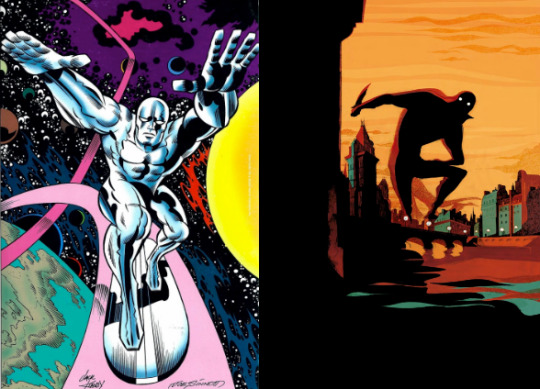
Aviation became a thing in the war years, so they started producing en masse aviation pulps as a subgenre. Zeppelins became popular, so they had a short-lived zeppelin subgenre. Celebrities starred in their own magazines. The American pulps were different from the German pulps, or the Italian pulps, or the Canadian pulps. In China, wuxia arose at a similar time period and with similar themes and distribution. In Brazil, we have “folhetos”, short, poetic, extremely cheap prose often written about romantic heroes and “cangaçeiros”, the closest local equivalent to the American cowboys. In Japan, “light novels” began life as pulp fiction, distributed in exactly the same format and literally sold as such. Pulp fiction has long outlived any and all attempts to define it as 30s literary fiction only.
Likewise, “pulp” and “pulp heroes” are terms employed very, very loosely. Characters like The Shadow and Doc Savage arrived quite late in the history of pulp fiction. You had characters like Jimmie Dale, Bulldog Drummond, Tarzan, Conan, a billion non-descript trenchcoat guys, and before those the likes of Nick Carter and Sexton Blake, dime novel detectives who made the jump to pulp. You had your hero pulps, villain pulps, adventure pulps, romance pulps, horror pulps, weird menace pulps. Science fiction, planetary romance, roman-era adventures, lost race adventures, anything that publishers could sell was turned into pulp stories starring, what else, pulp heroes.
How do you make sense of it all?
The main difference to consider is the mediums they were made for.

Pulp heroes were made for literature, superheroes were made for comic books.
Superheroes NEED to pop out visually, to have bold and flashy and striking designs, because comic books are visual stories first and foremost, who live and die on having attractive, catching character designs and the promise of an entertaining story with them. Pulp heroes, in turn, can often just be ordinary dudes and dudettes and anything in between in trenchcoats or evening wear or furry underwear, or masters of disguise rarely identifiable, because the only thing that needs to visually striking at first glance in a pulp magazine is the cover, so your imagination can get ready to do the rest. Smoking guns, bloody daggers, a romantic embrace, monsters hunched over ladies in peril, incendiary escapes. The characters can look like and be literally anything.
Comic books are a sequential art form where art and writing come together to tell a story, and every illustration must serve the story and vice-versa. It needs to give you an incentive to keep being visually invested in whatever’s going on. Pulp literature stays dead on the page unless animated by your expectations; you may have the illusion of submitting to an experience, but really it’s you expending your imagination to otherwise inert signals. You have to provide the colors and flashy sequences and great meaning yourself, and as a trade, you get much more text to work with in novels than you do in comic books, where the dialogue and narration are fundamentally secondary to the visual, whether it’s a superhero punching stars or a monster covered in blood.
Each art form has its strengths and weaknesses, of course, which are only accentuated when each tries to be of a different kind. There's been pulp heroes that tried making the jump to comics, and comic heroes that made the jump to literature. There’s good, even great examples, of both, but even at their best, there's always some incongruity, because that's not the medium these characters were made for.
Superheroes are characters defined by being extraordinary. The pulp heroes are too, in many cases, distinguished from their literary antecessors because they were too uncanny and weird, a middleground between the folklore/fairy tale heroes and the grounded detective and adventure characters such as Sherlock, and the later far out superheroes. But they don’t necessarily have to be extraordinary. Sometimes they can very well just be completely ordinary characters, caught in bizarre circumstances and managing them as best they can, or simply using skills available to anyone who puts in effort to do good. Often enough the extraordinary comes in the form of a bizarre villain, or a tangled conspiracy, a monster from outside the world, a unique time period. The extraordinary is there, but it doesn’t have to be in the hero.
That is, I’d argue, the other big fundamental difference between the two. "Superhero” is a name we use to define a type of character who fits an extraordinary mold, a Super Hero. It’s a genre, it can be every genre, it’s a shared universe and a stand-alone epic. There are guidelines, structures at work here. Grids, page count, illustrators. The Big Two and their domain over the concept. Academic usage of the term, standards that rule the “genre”, when it is defined as a genre. Malleable and overpowering and adaptable and timeless as the superhero may be, it’s still bound by a certain set of rules and trends.
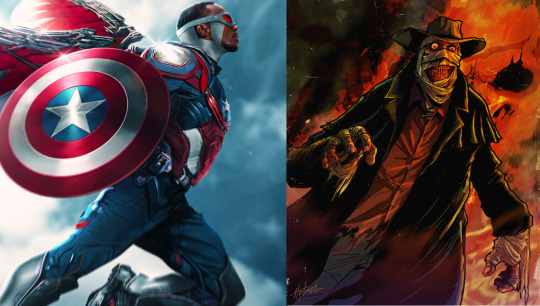
The term “pulp hero” is a term that we use to label just about any character that happens to star in something we recognize as “pulp fiction”, even if it isn’t literally written in pulp, even if it’s decades later. It’s a “metaphor with no brakes in it”. Superheroes can be pulp heroes. The most powerless, unlucky, homeless bum can be a pulp hero, there were entire subgenres of pulp stories based on homeless protagonists or talltale stories told in bars. The cruelest villain can be a pulp hero. Boris Karloff about to stab you with a knife named Ike IS a pulp hero, and so is a space slug on a warpath (look up what happened when Lovecraft and R.E Howard collaborated).
As much as I may dislike the idea of pulp heroes largely only existing in the shadow of superheroes nowadays...that is kinda appropriate, isn’t it? Of course they are going to live and make their homes in the place where the sun doesn’t shine. Where Superman and co would never go to.
Of course the 90s reboots of these characters failed. Because they tried turning these characters into superheroes, and they are not superheroes. They can visit those world, but they don’t belong in them, or anywhere else. They live in places where the light doesn’t touch, worlds much bigger and darker and more vast than you’d ever think at first glance, worlds that we still haven’t fully discovered (over 38% of American pulps no longer exist, 14% survive in less than five scattered copies, to say nothing of all pulps and pulp heroes outside of America). Not lesser, not gone, despite having every reason to. Just different, reborn time and time again. The shadow opposites.
In short: One is represented by Superman. The other is represented by The Shadow. There are worlds far beyond those two, but when you think of the concepts, those are the ones that things always seem to come back to.
72 notes
·
View notes
Text
The Dos and Don’ts of Writing Smart Characters
Since I started this blog, one of the most common questions I’ve received has to do with the portrayal of intelligent characters. This is also one of the most difficult to answer -- excluding questions about characters with specialized knowledge sets, which are fairly easy to answer with source compilations. Most of the questions have to do with: how do you portray a smart character believably? How do you make the audience relate to them? Can I still make them likable? How do I avoid the pitfalls of popular media?
Well, I’m finally here to answer, utilizing examples from some of my favorite (and occasionally, not-so-favorite) media. Let’s jump in to the dos and don’ts of smart characters!
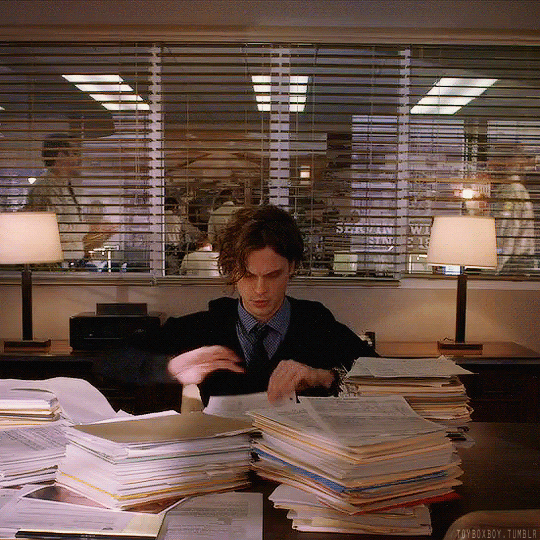
1. Do let the audience follow the character’s thought process.
As demonstrated by: Tommy Shelby from Peaky Blinders
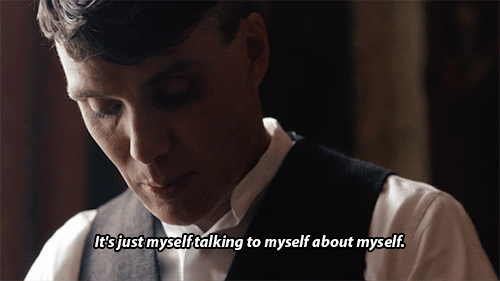
Albert Einstein allegedly once said, “If you can’t explain it to a five-year-old, you don’t truly understand it.” And the sentiment rings true: true genius doesn’t need to dazzle with big words and technobabble. Instead, it makes the complex appear simple.
The same rings true for brilliant characters. BBC’s Sherlock (more on that later) ceased to satisfy in its later seasons because it began to rely too heavily on visual glitz to avoid actually explaining its mysteries and how they were solved. Similarly, the biggest complaints with block buster franchises -- Star Wars, The Avengers, Game of Thrones -- is that they became obsessed with “subverting expectations” cleverly instead of leading the audiences to their most logical and satisfying conclusions.
Meanwhile, the smartest and most satisfying media dazzles not by staying over the audience’s head, but by illustrating how simplistic the solutions can be.
Let’s start with my boy Tommy Shelby, the charismatic, swaggering protagonist of the charismatic, swaggering crime drama Peaky Blinders. Using only his intelligence (and complete disregard for his own life/suicidal tendencies, but that’s not the point here), Tommy claws his way up from the near-bottom of the social ladder (an impoverished Romani in early 20th century Birmingham) to being a decorated war hero, to being the leader of a feared razor gang, to dominating the race track business, to becoming a business mogul, to becoming a member of parliament and trying to assassinate the leader of the fascist party. He’s also one of the paramount reasons why I’m bisexual.
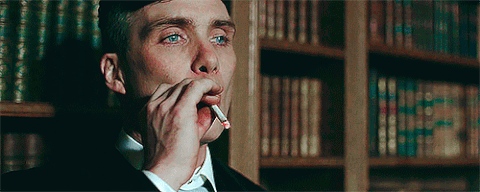
So how can such a drastic social climb be conveyed believably? Because Tommy -- as the viewpoint character -- is placed in seemingly inescapable situations, and then proceeds to demonstrate that the solutions to those situations have been there the whole time. I recently watched a brilliant video on how this is done, which can be viewed here.
Early in season one, for example, he responds to aggressive new methods by the police by organizing a mass-burning of paintings of the king, and uses the press this garners to publicly shame the methods of the chief inspector who’s been antagonizing him. In the next season, he talks his way into a deal by bluffing that he planted a grenade in his rival’s distillery. My personal favorite is in season four, when he responds to being outgunned by a larger, American gang by contacting their rival -- none other than an Alphonse Capone.
All of Tommy’s victories are satisfying, because they don’t come out of nowhere -- we have access to the same information he does, each victory is carefully foreshadowed, and we are reminded at every turn that failure is a very real possibility (more on that later.) So when he wins, we’re cheering with him.
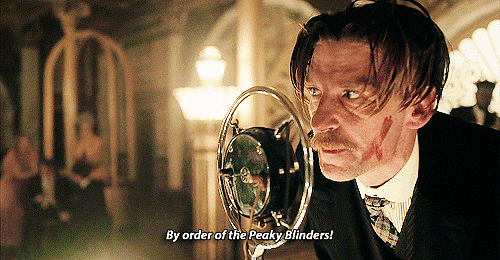
Other examples: Mark Watney from The Martian, who explains science in its most simplistic terms and with infectious enthusiasm. He would make every character on The Big Bang Theory cry.
Also, Miss Fisher from the AMAZING Miss Fisher’s Murder Mysteries. The dazzling, 1920s, female Sherlock Holmes of your dreams. I cannot recommend it enough.
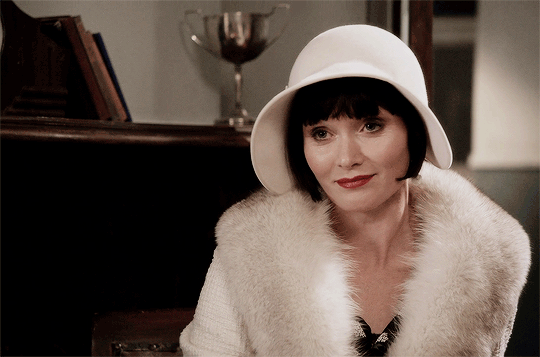
To apply this to your own writing: Remember you won’t dazzle anyone if you smack them in the face with a “brilliant” plot twist. They want to take a journey with your character, not be left in the dust.
Also, for everyone in my askbox concerned that they’re not smart enough to write intelligent characters, just remember how simple the problems confronting smart characters can be. Put them in a difficult situation, and provide them with a means of getting out. Then, just let them find it.
2. Don’t assume the audience is too stupid to keep up (or try to make them feel too stupid to keep up.)
As demonstrated by: Sherlock Holmes from BBC’s Sherlock.
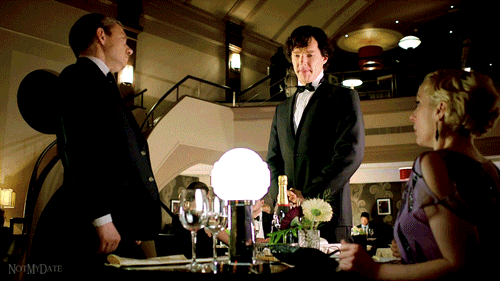
Say what you will: there were reasons why everyone was so captivated by this show during its first two seasons. It felt fresh. People had yet to become frustrated with the inescapable thirst for Benedict Cumberbatch. The writing was sharp, and the editing clever. And it wove a tantalizing web of mysteries that demanded solution. The problem was, there weren’t any.
The most frustrating for many was how Sherlock faked his death at the end of season two, after which devoted fans spent two years creating intricate theories on how he might have pulled this off. The creators responded by mocking this dedication in the opening episode of season three, by showing a fan club spinning outlandish theories (one of which included Sherlock and Moriarty kissing.) This might have been laughed off -- at the time, many seemed to consider it quite funny -- if the creators had bothered to offer their own explanation of how Sherlock survived. They didn’t. And so began a seemingly endless loop of huge cliffhangers that promised -- and consistently failed to deliver -- satisfying answers.
The most egregious examples occur in season four, which provided answers to questions no one asked, and withheld answers for things everyone wanted to know. For example, did you know that the real reason Moriarty engaged Sherlock is because he was hypnotized by Sherlock’s secret evil sister? The same one who killed Sherlock’s best friend, whom Sherlock convinced himself was a dog? Yes, that was a real plot point, in the climax of the series. It’s an effort to befuddle the audience with brilliant and unexpected writing, but instead pulled them out of a story they were already invested in and made them far more critical of its pre-existing faults.
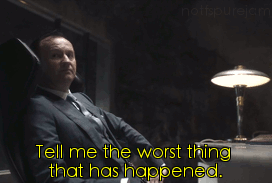
It’s pointed out in the brilliant (if bluntly named) Sherlock Is Garbage, And Here’s Why that Moffat can be a great writer, but is a consistently terrible show runner, because he’s more interested in dazzling the audience with cleverness than actually telling a satisfying story. The video also points out that the show often implied Sherlock’s brilliance, without ever letting the audience follow along with his actions or thought-process in a way that DEMONSTRATED his brilliance.
I highly recommend giving the aforementioned video a watch, because it is not only a great explanation of how Sherlock Holmes can be best utilized, but about how writing itself can be best utilized.
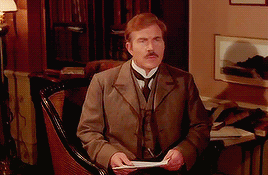
Other examples: The Big Bang Theory. As Wisecrack points out in their wonderful video on the subject, the punchline of every joke is “oh look, these characters are smart nerds!” which is repetitious at best and downright insulting at worst.
How to avoid this in your writing: Treat the audience as your equal. You’re not trying to bedazzle them, you’re trying to take them on a journey with you. Let them be delighted when you are. Don’t constantly try to mislead them or hold intelligence over their head, and they will love you for it. Also, cheap tricks do not yield a satisfying story: readers will know when you went into a narrative without a plan, and they won’t appreciate it.
3. Do remember that smart people can be kind and optimistic!
As demonstrated by: Shuri from Black Panther.
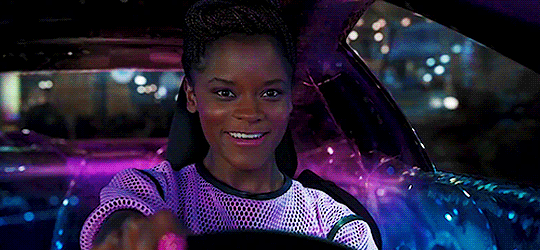
Yes, brilliant people can be unhappy and isolated by their intelligence, or rejected by society. But remember that intelligence isn’t synonymous with a cantankerous attitude, or an excuse to be a pugnacious ass to those around you!
Part of the reason why Shuri of 2018′s Black Panther was such a breath of fresh air was the fact that she subverted almost all preconceptions about how a genius looks, acts, and regards the world. And it’s not just the fact that she isn’t a sullen, middle-aged white man that makes her stand out: Shuri has an effervescent attitude, and genuinely loves contributing to her country and family. She referred to sound-proof boots as “sneakers” (and then explained the pun when her brother didn’t get it.) She’s fashionable. She teases her older brother, and cries when he is apparently killed. She’s up on meme culture. This makes her unlike pretty much every other genius portrayed in the MCU.
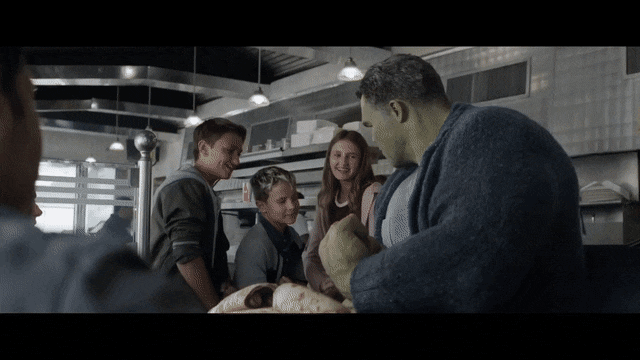
Except maybe the Hulk. He can dab now.
Shuri is also allowed to take pride in her genius, and can be a bit insufferable about it, which makes her more enjoyable and rounded. But she is an excellent example of how genius can be explored and portrayed in fiction, and I will forever be embittered that she was underutilized in Infinity War and Endgame.
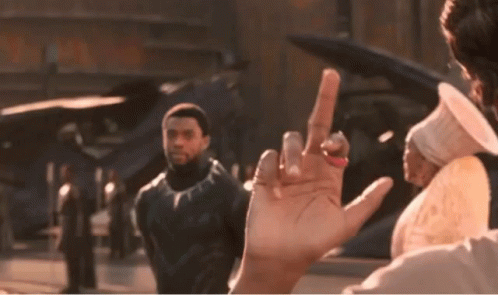
Why, for example, are all geniuses portrayed as arrogant misanthropes? Albert Einstein battled depression, but he is also said to have enjoyed blowing bubbles and watching puppet shows. He was kind to those who knew him. Similarly, Alan Turing behaved little like his fictional counterpart, described as “shy but outgoing,” with a love of being outdoors. Nikola Tesla fell in love with a pigeon. Why do we have to portray these people so damn gravely?
Other examples: Spencer Reid from Criminal Minds. Also an excellent portrayal of an intelligent person on the autism spectrum, as he struggles to interface socially but cares profusely for his fellow human beings. He is brilliant, and completely precious.
Also, Sherlock Holmes -- the original version, and all faithful adaptations thereof. Anyone who thinks Sherlock is an austere, antisocial jerk isn’t familiar with the original canon. He blushed when Watson complimented his intelligence, for God’s sake.
Then there’s Elle Woods from Legally Blonde and Marge from Fargo. Brilliant, upbeat, optimistic geniuses.
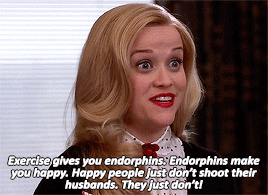
To apply this to your own writing: If you have a smart character who hates everyone around them for no identifiable reason, ask yourself why this is necessary and what this adds to the plot. Are they angry about injustice, towards themselves or others? Are they frustrated with an inability to relate to people? Do they want to protect themselves or their family at all costs, including politeness? If not, question why your brilliant character can’t also be kind to those around them.
4. Don’t make your character perfect at everything they do.
As demonstrated by: Wesley Crusher from Star Trek: The Next Generation.
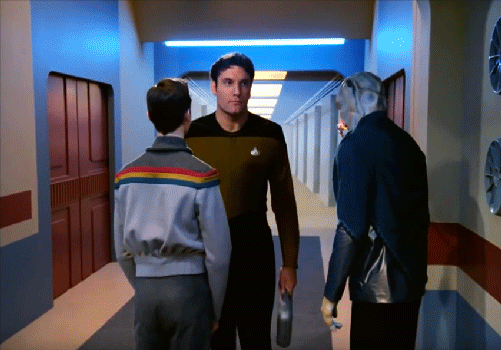
Ah, Wesley. Some call him the original Mary Sue, and it’s one of the only times I’ve seen the term applied with some accuracy. He is somehow the most gifted and least qualified person on The Enterprise. He’s Hermione Granger without the charm, jumping in to answer questions before any of the trained officers in the room have the chance to, always in the right. His only obstacle? Why, the boorish adults he’s surrounded with simply don’t understand his brilliance!
As early as the series’ very second episode, Wesley -- inebriated by an alien illness -- forcibly takes over the ship from Captain Picard, only to later save it from a threat with a reverse tractor beam of his own design.
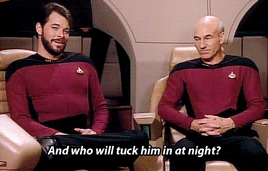
Wesley was obviously inserted as a means of attracting younger viewers, but failed egregiously, because he was too annoyingly perfect for kids to relate too, and not cool enough for them to be invested in. I binge-watched the various Star Trek series in my youth for Spock, Data, and my wife Seven of Nine, not to watch seasoned military and scientific officers get lectured by an adolescent. Even Wil Wheaton, who had the misfortune of portraying this character, expressed a dislike for him.
Precocious children are great, if you get them right. But get them wrong, and they can easily become your most annoying character, marring the face of otherwise great media. The most important thing you can do for a brilliant character is endow them with weaknesses and flaws -- even something as small as Shuri’s fondness for teasing her older brother made her enjoyable, as anyone with siblings could relate to their dynamic.
But, what if you want a supernaturally talented character who not only fails to be a ray of sunshine, but is something of an arrogant, antisocial jerk? Can they still work, especially if they also happen to be a child?
Yes, under one extremely important condition:
5. Do keep your characters out of their depth!
As demonstrated by: Number Five from Umbrella Academy.
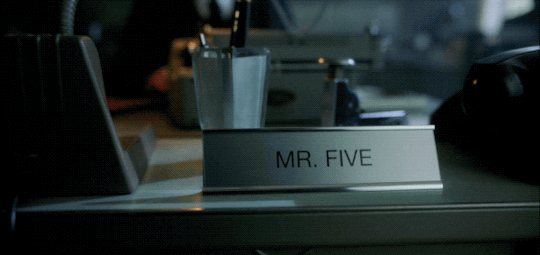
Okay, he’s not exactly a child. He’s a fifty-eight-year-old trapped in a child’s body, who’s traveled back in time from a post-apocalyptic future to warn his siblings of an incoming Armageddon. In other news, Umbrella Academy is a weird show. Unlike the comics, however, the apes don’t engage in prostitution.
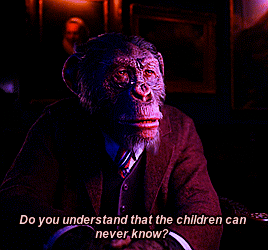
The effect, however, remains the same: a preternaturally talented child who talks down to everyone around him, including his (apparently) older siblings. So why does he work while Wesley fails so egregiously?
For one thing, it’s demonstrated early on that Five has the skills to back up his sanctimonious attitude, with the delightfully ultraviolent Istanbul (Not Constantinople) sequence. It also helps that he lacks Wesley’s squeaky-clean moral code, to the point at which he can get drunk in public or kill without remorse.
But: the element most vital to his success as a character is the fact that he’s kept completely, and consistently, out of his depth. He knows the world will end in eight days, but he doesn’t know how this will transpire or how to stop it. Ultimately, he fails again to stop the apocalypse, and must travel back in time with his siblings for another chance.
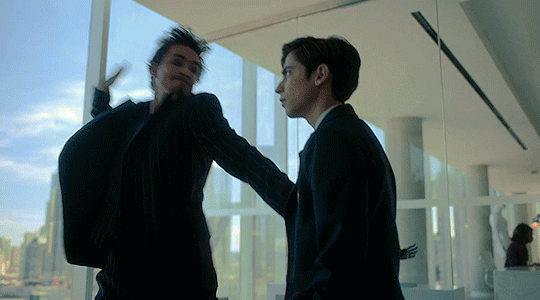
Most authors have the impulse to demonstrate a character’s brilliance by allowing them to succeed against insurmountable odds, but the Umbrella Academy writers show tremendous wisdom in allowing Five to fail. This allows the audience to empathize with him, and countermands the effects of his arrogant attitude.
This advice isn’t just true for pint-sized prodigies. Look back over this list, and take notes of how often the most successful characters are allowed to fail, to have flaws, and to ascend past their comfort zone.
Other examples: Virtually every successful example on this list.
Tommy Shelby, a character of limitless ambition, conducts a new, perilous climb outside of his social rank each season, which almost always puts him in positions of mortal danger. He faces threats both external (rival gangs, evil priests, and rising fascists) and internal (hello PTSD, suicidal tendencies, and crippling addiction) but either way, we understand that his fast-paced climb is not for the weak-willed or faint-hearted.
Mark Watney is a brilliant scientist who has been stranded in an utterly impossible situation for which absolutely no one could be adequately prepared (spoilers: it’s on Mars.) We are drawn in by his plight, and how he could possibly escape from it, and there we come to admire him for his courage, optimism, and humor.
Shuri, though not the main character of Black Panther, is allowed to show off both tremendous gifts and vulnerability, as she is powerless to stop the apparent death of her beloved older brother. She watches Wakanda’s takeover both as an innovator and a young woman, and a large reason for her success is that she is allowed to be both.
How to apply this to your writing: When portraying intelligent characters, take stock of how often they fail, their level of control over their surroundings, their vulnerability, and their flaws. We don’t want to read about flawless deities. We want to read about characters who embody and personify our humanity. So remember they need to fall down in order to pull themselves up.
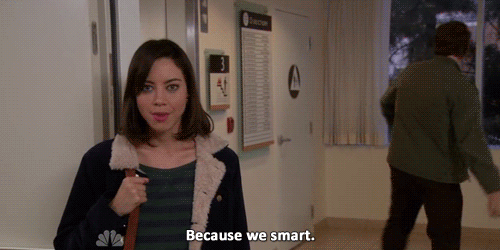
Happy writing, everybody!
#long post for ts#writing tips#writing smart characters#peaky blinders#tommy shelby#mark watney#the martian#miss fisher's murder mysteries#shuri#black panther#spencer reid#criminal minds#legally blonde#fargo#number five#the umbrella academy#star trek#star trek: the next generation
920 notes
·
View notes
Text
"FLASHMAN AND THE TIGER" (1999) Book Review

"FLASHMAN AND THE TIGER" (1999) Book Review
Out of all the books featured in George MacDonald Fraser's The Flashman Papers, only one featured more than one tale. This turned out to be "FLASHMAN AND THE TIGER", first published in 1999. Instead of one novel, the book contained three novellas featuring an aging Harry Flashman between the ages of 56 and 72.
As I had stated earlier, "FLASHMAN AND THE TIGER" featured three novellas - "The Road to Charing Cross", "The Subtleties of Baccarat", and "Flashman and the Tiger". The first story deals with Flashman involved in a plot to thwart the assassination of Austria's Emperor Franz Josef. The second involves the infamous Tranby Croft Scandal, which involved the Prince of Wales (the future Edward VII) and someone close to Flashman. And the third story featured Flashman's encounters with the villainous Tiger Jack Moran during the Anglo-Zulu War, and later in London of the 1890s. Let us begin . . . shall we?
"The Road to Charing Cross"
The longest novella in the book, "The Road to Charing Cross" begins in 1878, when Flashman is invited by the famous journalist, Henri Blowitz, to help get a copy of the Treaty of Berlin. During his trip to Germany, Flashman will a beautiful member of the French Secret Service named Caprice. Five years later in 1883, Flashy is invited by Blowitz to journey on the inaugural trip of the Orient Express. Flashman accepts the invitation as an excuse to avoid being sent to the Sudan. During the train journey, he is introduced to Princess Kralta of Germany, who has expressed interest in him of the romantic nature. As it turns out, Kralta's interest in Flashman is nothing more than a ruse devised by his old nemesis from , Chancellor Otto von Bismarck, in order to get the British Army officer to help prevent Emperor Franz Josef from being assassinated and prevent a major European war. One of Flashman's colleagues in this plot turns out to be Willem von Starnberg, the son of Rudi von Starnberg, another former nemesis from the 1970 novel. In the end, it turns out that von Starnberg has other plans of his own.
For me, "The Road to Charing Cross" turned out to be the best of three novellas. Regardless of its length, I thought it was a well-written adventure set during the political upheavals of Central Europe. Fraser did an excellent job in re-creating the first rail journey of the Orient Express. He must have did his homework in researching this piece of history. And the sequence featuring Flashman's efforts to save the Austrian emperor and his own hide were truly outstanding. His characterizations of Princess Kralta, Henri Blowitz, and Emperor Franz Josef were first-rate. Fraser's pièce de résistance turned out to be Willem von Starnberg, the son of Flashman's old nemesis, Rudi von Starnberg. Dear old Willy turned out to be a chip off the old block . . . and a lot more. He possessed Rudi's wit, joie de vivre and ruthlessness.
Did "The Road to Charing Cross" have any flaws? Well . . . it had one. And that flaw had a lot to do with the character of Willem von Starnberg. Although Willem was well written by Fraser, the latter described him as being half-German (Prussian) and half-Hungarian. Which meant according to this story, Rudi von Starnberg was Austrian. Apparently, George MacDonald Fraser seemed incapable of determining Rudi's nationality. Fraser described him as an Austrian in "ROYAL FLASH", as a Hungarian in the 1975 movie adaptation of the novel, and as a German in this story. Whatever. Despite this major flaw, "The Road to Charing Cross" is still an excellent story.
"The Subtleties of Baccarat"
This novella finds Sir Harry Flashman and his wife, Elspeth, Lady Flashman; visiting Tranby Croft, the estate of one Sir Arthur Wilson in early September 1890. Sir Arthur is hosting a house party in honor of his royal visitor, Albert Edward, Prince of Wales. During the house party, both Flashman and Elspeth witness a baccarat game, which was considered illegal in Britain. The legalities were brushed aside, due to the Prince of Wales' love of the game. During the days between September 8 and 9, several guests claimed that one of the players, Sir William Gordon-Cumming, cheating. Guests informed the Prince of Wales, who confronted Gordon-Cumming. To the very end, the latter claimed that he was innocent and even sued the Prince of Wales and a few others for defamation of character. Alas, the label of cheat stuck and Gordon-Cummings became a social pariah. But "The Subtleties of Baccarat" did not end with Gordon-Cumming's downfall. Instead, it ended with a surprising revelation that left Flashman in total shock.
"The Subtleties of Baccarat" was an interesting little tale. But I cannot say that I would ever love it. At least most of the story. The problem is that I am not a card player. And I found it difficult to follow the card games, while the scandal unfolded. It was not until Flashman learned the truth about the scandal from the surprising figure of Elspeth that the story truly became interesting to me. If I must be honest, Elspeth's revelations on what really happened during the baccarat games not only shocked me, but made me become an even bigger fan of Lady Flashman. The novella had a surprising, yet satisfying finale to an otherwise bearable story.
"Flashman and the Tiger"
The book derived its title from its third novella set in both 1879 and 1894. "Flashman and the Tiger" is mainly about Flashman's encounters with a character named Tiger Jack Moran, who had been originally created by Sir Arthur Conan Doyle for his SHERLOCK HOLMES stories. Flashman first meets Moran during the Zulu War, when both experience the retreat from the Battle of Isandlwana and the defense of Rorke's Drift. The pair does not meet again until fifteen years later, when Flashman discovers that Moran is blackmailing his granddaughter, Selina, in order to sleep with her. Moran turns out to be the same cabin boy who had propositioned Flashy aboard Captain John Charity Spring's ship, the Balliol College, and traded to King Gezo as a white slave in the 1971 novel, "FLASH FOR FREEDOM!". Moran spent years seeking revenge against the Balliol College's surviving crewmen. He found his opportunity to seek revenge against Flashman, when he learned that the latter's engaged granddaughter was a mistress of the Prince of Wales. The story ended with Moran's arrest and Flashman's brief, yet humorous encounter with Sherlock Holmes and Dr. Watson.
This novella was a problem for me. One, I found the addition of Flashman's experiences during the Zulu War unnecessary. Fraser could have used the Zulu War as a major novel, instead of adding this useless scene that really had little to do with the main narrative. What made the use of this topic even more unnecessary was that Flashman's first encounter with Moran occurred in 1848, aboard Captain Charity Spring's ship. It was this encounter that had a much bigger impact on the story. I have the deep suspicion that Fraser may have used this story as an excuse to indulge in a little Imperial flag waving. After all, "Flashman and the Tiger" did not focus on the Battle of Isandlwana, in which the British suffered one of their worst defeats at the hands of the Zulu. Instead, it focused on the following battle at Rorke's Drift, in which the British managed to repel several attacks by the enemy.
My second problem with this novella was the fact that Fraser used Tiger Jack Moran, Sherlock Holmes and Dr. John Watson as supporting characters. I found that rather cheap. I found it bad enough that Fraser used Sir Anthony Hope's novel, "THE PRISONER OF ZENDA" as a premise for his 1970 novel, "ROYAL FLASH" and a historical character as Flashman's illegitimate son in "FLASHMAN AND THE REDSKINS". Using literary characters created by another author as supporting characters in one's own story? Hmmm . . . cheap.
Finally, Fraser must have done a piss poor job in researching the love life of Albert Edward, Prince of Wales, the future King Edward VII. The latter's mistresses had usually been sexually experienced women who were either married society women, actresses or high-priced prostitutes. I do not recall the Prince of Wales ever taking the virginity of a 19 year-old debutante . . . especially one who was engaged. Yet, we are supposed to believe that Flashman's unmarried granddaughter was one of Bertie the Bounder's mistresses. The only redeeming trait of this story was Fraser's description of the Isandlwana retreat and the Defense of Rorke's Drift. Apparently, he saved all of his top-notch research for this particular sequence.
"FLASHMAN AND THE TIGER" was not a bad piece of literature from George MacDonald Fraser's pen. It possessed a first-rate novella, "The Road to Charing Cross", and a mildly entertaining story with a juicy, surprise ending in "The Subtleties of Baccarat". The book's only misstep . . . at least for me . . . proved to be the last story, "Flashman and Tiger".
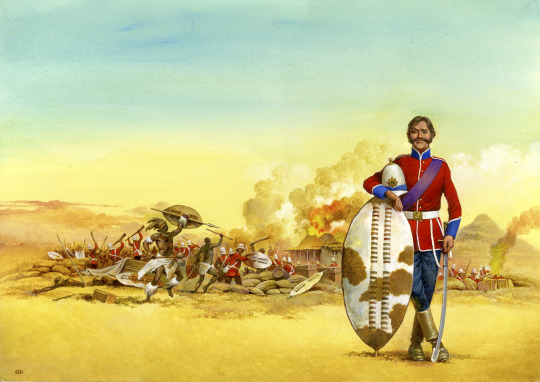
#flashman#harry flashman#george macdonald fraser#flashman papers#flashman and the tiger#zulu war#battle at rorke's drift#tiger jack moran#sherlock holmes#edward vii#tranby croft scandal#treaty of berlin#orient express
12 notes
·
View notes
Text
Enola Holmes: A Not So Elementary Adaptation

It's cliché and a bit unfair to say that the book was better than the film, but I'm afraid that's precisely where I need to start. Nancy Springer's Enola Holmes: The Case of the Missing Marquess is leagues better than Netflix's adaptation of it. They did her work dirty and to say that I'm shocked at the accolades other reviewers are heaping on the film is an understatement. Before I dive into any critiques though, it's worth acknowledging that not every minute of the two hour film was painful to get through. So what worked in Enola Holmes?
The film is carried by the talent of its cast, Millie Bobby Brown being the obvious heavy-hitter. She helps breathe life into a pretty terrible script and it's only a shame her talent is wasted on such a subpar character.
The idea to have Enola continually break the fourth wall, though edging into the realm of Dora the Explorer at times—"Do you have any ideas?"— was nevertheless a fun way to keep the audience looped into her thought process. Young viewers in particular might enjoy it as a way to make them feel like a part of the action and older viewers will note the Fleabag influence.
The cinematography is, perhaps, where most of my praise lies. The rapid cuts between past and present, rewinding as Enola thinks back to some pertinent detail, visualizing the cyphers with close ups on the letter tiles—all of it gave the film an upbeat, entertaining flair that almost made up for how bloated and meandering the plot was.
We got an equally upbeat soundtrack that helped to sell the action.
The overall experience was... fine. In the way a cobbled together, candy-coated, meant to be seen on a Friday night but we watched it Wednesday and then promptly forgot about it film is fine. I doubt Enola Holmes will be winning any awards, but it was a decently entertaining romp and really, does a Netflix film need to be anything more? If Enola was her own thing made entirely by Netflix's hands I wouldn't be writing this review. As it stands though, Enola is both an adaptation and the latest addition to one of the world’s most popular franchises. That's where the film fails: not as a fun diversion to take your mind off Covid-19, but as an adaptation of Springer's work and as a Sherlock Holmes story.
In short, Enola Holmes, though pretty to look at and entertaining in a predictable manner, still fails in five crucial areas:
1. Mycroft is Now a Mustache-Twirling Villain and Sherlock is No Longer Sherlock Holmes
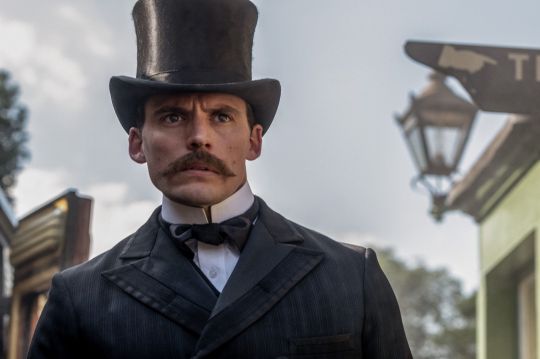
This aspect is the least egregious because admittedly the film didn't pull this version of Mycroft out of thin air. As the head of the household he is indeed Enola's primary antagonist (outside of some kidnappers) and though he insists that he's doing all this for Enola's own good, he does get downright cruel at times:
He rolled his eyes. “Just like her mother,” he declared to the ceiling, and then he fixed upon me a stare so martyred, so condescending, that I froze rigid. In tones of sweetest reason he told me, “Enola, legally I hold complete charge over both your mother and you. I can, if I wish, lock you in your room until you become sensible, or take whatever other measures are necessary in order to achieve that desired result... You will do as I say" (Springer 69).
Mycroft's part is clear. He's the white, rich, powerful, able-bodied man who benefits from society's structure and thus would never think to change it. He does legally have charge over both Enola and Eudoria. He can do whatever he pleases to make them "sensible"... and that right there is the horror of it. Mycroft is a law-abiding man whose antagonism stems from doing precisely what he's allowed to do in a broken world. There are certainly elements of this in the Netflix adaptation, but that antagonism becomes so exaggerated that it's nearly laughable. Enola's governess (appointed by Mycroft) slaps her across the face the moment she speaks up. Mycroft screams at her in a carriage until she's cowering against the window. He takes her and throws her into a boarding school where everything is bleak and all the women dutifully follow instructions like hypnotized dolls. Enola Holmes ensures that we've lost all of Springer's nuance, notably the criticism of otherwise decent people who fall into the trap of doing the "right" (read: expected) thing. Despite her desire for freedom, in the novel Enola quickly realizes that she is not immune to society's standards:
"I thought he was younger.” Much younger, in his curled tresses and storybook suit. Twelve! Why, the boy should be wearing a sturdy woollen jacket and knickers, an Eton collar with a tie, and a decent manly haircut—
Thoughts, I realised, all too similar to those of my brother Sherlock upon meeting me (113-14).
She is precisely like her brothers, judging a boy for not looking and acting enough like a man just as they judged her for not looking and acting enough like a lady. The difference is that Enola has chaffed enough against those expectations to realize when she's falling prey to them, but the sympathetic link to her brothers remains. In the film, however, the conflict is no longer driven by fallible people doing what they think is best. Rather, it's made clear (in no uncertain terms) that these are just objectively bad people. Only villains hit someone like that. Only villains will scream at the top of their lungs until a young girl cries. Only villains roll their eyes at women's rights (a subplot that never existed in the novel). Springer writes Mycroft as a person, Netflix writes him as a cartoon, and the result is the loss of a nuanced message about what it means to enact change in a complicated world.
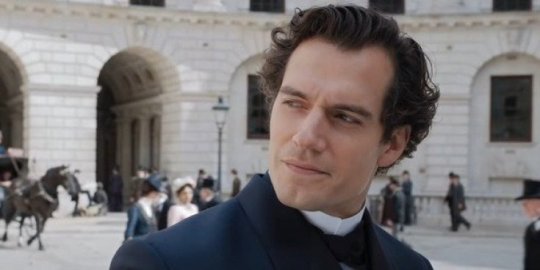
Which leaves us with Sherlock. Note that in the above passage he is the one who casts harsh judgement on Enola's outfit. Originally Mycroft took an interest in making Enola "sensible" and Sherlock— in true Holmes fashion—straddles a fine line between comfort and insult:
"Mycroft,” Sherlock intervened, “the girl's head, you'll observe, is rather small in proportion to her remarkably tall body. Let her alone. There is no use confusing and upsetting her when you'll find out for yourself soon enough'" (38).
***
"Could mean that she left impulsively and in haste, or it could reflect the innate untidiness of a woman's mind,” interrupted Sherlock. “Of what use is reason when it comes to the dealings of a woman, and very likely one in her dotage?" (43).
A large part of Enola's drive stems from proving to Sherlock, the world, and even herself that a small head does not mean lack of intelligence. His insults, couched in a misguided attempt to sooth, is what makes Sherlock a complex character and his broader sexism is what makes him a flawed character, not Superman in a tweed suit. Yet in the film Mycroft becomes the villain and Sherlock is his good brother foil. Rather than needing to acknowledge that Enola has a knack for deduction by reading the excellent questions she's asked about the case—because why give your characters any development?—he already adores and has complete faith in her, laughing that he too likes to draw caricatures to think. By the tree Sherlock remanences fondly about Enola's childhood where she demonstrated appropriately quirky preferences for a genius, things like not wearing trousers and keeping a pinecone for a pet. They have a clear connection that Mycroft could never understand, one based both in deduction and, it seems, being a halfway decent human being. We are told that Enola has Sherlock's wits, but poor Mycroft lucked out, despite the fact that up until this point the film has done nothing to demonstrate this supposed intelligence. (To say nothing of how canonically Mycroft's intellect rivals his brother's.) Enola falls to her knees and begs for Sherlock's help, saying that "For [Mycroft] I'm a nuisance, to you—" implying that they have a deep bond despite not having seen one another since Enola was a toddler. Indeed, at one point Enola challenges Lestrade to a Sherlock quiz filled with information presumably not found in the newspaper clippings she's saved of him, which begs the question of how she knows her brother so well when she hasn't seen him in a decade and he, in turn, walked right by her with no recognition. Truthfully, Lestrade should know Sherlock better. Through all this the sibling bond is used as a heavy-handed insistence that Enola is Sherlock's protégé, him leaving her with the advice that "Those kinds of mysteries are always the best to unpick” and straight up asking at one point if she’s solved the case. The plot has Enola gearing up to outwit her genius brother, which did not happen in the novel and is precisely why I loved it. Enola isn't out to be a master of deduction in her teens, she's a finder of lost people who uses a similar, but ultimately unique set of skills. She does things Sherlock can't because she is isn't Sherlock. They're not in competition, they're peers, yet the film fails to understand that, using Sherlock's good brother bonding to emphasize Enola's place as his protégé turned superior. He exists, peppered throughout the film, so that she can surpass him in the end.
You know what happens in the novel? Sherlock walks away from her, dismissive, and that's that.
That's also Sherlock Holmes. I won't bore you with complaints about Cavill being too handsome and Claflin being too thin for their respective parts, but I will draw the line at complete character assassination. Part of Sherlock's charm is that he's far more compassionate than he first appears, but that doesn't mean he would, at the drop of a telegram, become a doting older brother to a sister of all things. Despite the absurdity of the Doyle Estate's lawsuit against Netflix for making Sherlock an emotional man who respects women... they're right that this isn't their character. Oh, Sherlock is emotive, but it's in the form of excited exclamations over clues, or the occasional warm word towards Watson—someone he has known and lived with for many years. Sherlock respects women, though it's through those societal expectations. He'll offer them a seat, an ear, a handkerchief if they need one, and always the promise of help, but he then dismisses them with, "The fairer sex is your department, Watson." Springer successfully wrote Sherlock Holmes with a little sister, a man who will bark out a laugh at her caricature but still leave her to Mycroft's whims because he has his own life to tend to. This is a man who insists that the mind of a woman is inscrutable and thus must grapple with his shock at Enola's ability to cover the "salient points" of the case (58). Cavill's Sherlock is no Sherlock at all and though there's nothing wrong with updating a character for a modern audience (see: Elementary), I do question why Netflix strayed so far from Springer's work. The novel is, after all, their blueprint. She already managed the difficult task of writing an in-character Sherlock Holmes who remains approachable to both a modern audience and Enola herself, yet for some reason Netflix tossed that work aside.
2. Enola is "Special,” Not At All Like Other Girls
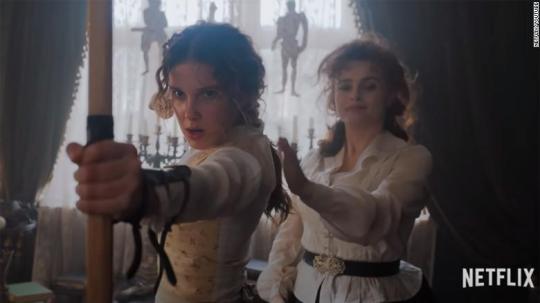
Allow me to paint you a picture. Enola Holmes is an empathetic, fourteen-year-old girl who, while bright, does not possess an intelligence worthy of note. No one is gasping as she deduces seemingly impossible things from the age of four, or admiring her knowledge of some obscure, appropriately impressive topic. Rather, Enola is a fairly normal girl with an abnormal upbringing, characterized by her patience and willingness to work. Deciphering the many hiding places where her mother stashed cash takes her weeks, requiring that Enola work through the night in secrecy while maintaining appearances during the day. She manages to hatch a plan of escape that demonstrates the thought she's put into it without testing the reader's suspension of disbelief. More than that, she uses the feminine tools at her disposal to give herself an edge: hiding her face behind a widow's veil and storing luggage in the bustle of her dress. Upon achieving freedom, her understanding of another lonely boy leads her to try and help him, resulting in a dangerous kidnapping wherein Enola acts as most fourteen-year-olds would, scared out of her mind with a few moments of bravery born of pure survival instinct. She and Tewksbury escape together, as friends, before Enola sets out on becoming the first scientific perditorian, a finder of lost people.
Sadly, this new Enola shares little resemblance with her novel counterpart. What Netflix seemingly fails to understand is that giving a character flaws makes them relatable and that someone who looks more like us is someone we can connect with. This Enola, simply put, is extraordinary. She's read all the books in the library, knows science, tennis, painting, archery, and a deadly form of Jujitsu (more on that below). In the novel Enola bemoans that she was never particularly good at cyphers and now must improve if she has any hope of reading what her mother left her. In the film she simply knows the answers, near instantaneously. Enola masters her travels, her disguises, and her deductions, all with barely a hitch. Though Enola doesn't have impressive detective skills yet, her memory is apparently photographic, allowing her to look back on a single glance into a room, years ago, and untangle precisely what her mother was planning. It's a BBC Sherlock-esque form of 'deduction' wherein there's no real thought involved, just an innate ability to recall a newspaper across the room with perfect clarity. The one thing Enola can't do well is ride a bike which, considering that in the novel she quite enjoys the activity, feels like a tacked on "flaw" that the film never has to have her grapple with.
More than simply expanding upon her skillset—because let’s be real, it’s not like Sherlock himself doesn’t have an impressive list of accomplishments. Even if Enola’s feelings of inadequacy are part of the point Springer was working to make—the film changes the core of her personality. I cannot stress enough that Enola is a sheltered fourteen-year-old who is devastated by the disappearance of her mother and terrified by the new world she's entered. That fear, uncertainty, and the numerous mistakes that come out of it is what allowed me to connect with Enola and go, "Yeah. I can see myself in her." Meanwhile, this new Enola is overwhelmingly confident, to the point where I felt like I was watching a child's fantasy of a strong woman rather than one who actually demonstrates strength by overcoming challenges. For example, contrast her meeting with Sherlock and Mycroft on the train platform with what we got in the film:
"And to my annoyance, I found myself trembling as I hopped off my bicycle. A strip of lace from my pantalets, confounded flimsy things, caught on the chain, tore loose, and dangled over my left boot.
Trying to tuck it up, I dropped my shawl.
This would not do. Taking a deep breath, leaving my shawl on my bicycle and my bicycle leaning against the station wall, I straightened and approached the two Londoners, not quite succeeding in holding my head high" (31-32).
***
"Well, if they did not desire the pleasure of my conversation, it was a good thing, as I stood mute and stupid... 'I don't know where she's gone,' I said, and to my own surprise—for I had not wept until that moment—I burst into tears" (34).
I'd ask where this frightened, fumbling Enola has gone, but it's clear that she never existed in the script to begin with. The film is chock-full of her being, to be frank, a badass. She gleefully beats up the bad guys in perfect form, no, "I froze, cowering, like a rabbit in a thicket" (164). This Enola always gets the last word in and never falters in her confident demeanor, no, "I wish I could say I swept with cold dignity out of the room, but the truth is, I tripped over my skirt and stumbled up the stairs" (70). Enola is the one, special girl in an entire school who can see how rigid and horrible these social expectations are, straining against them while all her lesser peers roll their eyes. That's how she's characterized: as "special," right from the get-go, and that eliminates any growth she might have experienced over the course of the film. More than that, it feels like a slap in the face to Springer's otherwise likeable, well-rounded character.
3. A Focus on Hollywood Action and Those Strong Female Characters
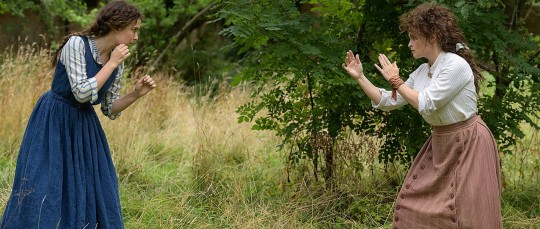
It never fails to amaze me how often Sherlock Holmes adaptations fail to remember that he is, at his core, an intellectual. Sure, there's the occasional story where Sherlock puts his boxing or singlestick skills to good use, and he did survive his encounter with Moriarty thanks to his own martial arts, but these moments are rarities across the canon. Pick up any Sherlock Holmes story, open to a random page, and you will find him sitting fireside to mule over a case, donning a disguise to observe the suspects, or combing through his many papers to find that one, necessary scrap of information. Sherlock Holmes is about deduction, a series of observations and conclusions based on logic. He's not an action hero. Nor is Enola, yet Netflix seems to be under the impression that no audience can survive a two hour film without something exploding.
I'd like to present a concise list of things that happened in the film that were, in my opinion, unnecessary:
Enola and Tewksbury throw themselves out of a moving train to miraculously land unharmed on the grass below.
Enola uses the science knowledge her mother gave her to ignite a whole room of gunpowder and explosives, resulting in a spectacle that somehow doesn't kill her pursuer.
Enola engages in a long shootout with her attacker, Tewksbury takes a shot straight to the chest, but survives because of a breastplate he only had a few seconds to put on and hide beneath his shirt. Then Enola succeeds in killing Burn Gorman's slimy character.
Enola beats up her attackers many, many times.
This right here is the worst change to her character. Enola is, plainly put, a "strong woman." Literally. She was trained from a young age to kick ass and now that's precisely what she'll do. Gone is the unprepared but brave girl who heads out onto the dangerous London streets in the hope of helping her mother and a young boy. What does this Enola have to fear? There's only one martial arts move she hasn't mastered yet and, don't worry, she gets it by the end of the film. Enola suffers from the Hollywood belief that strong women are defined solely as physically capable women and though there's nothing wrong with that on the surface, the archetype has become so prevalent that any deviation is seen as too weak—too princess-y—to be considered feminist. If you're not kicking ass and taking names then you can only be passive, right? Stuck in a tower somewhere and awaiting your prince. But what about me? I have no ability to flip someone over my shoulder and throw them into a wall. What about pacifists? What about the disabled? By continually claiming that this is what a "strong" woman looks like you eliminate a huge number of women from this pool. The women we are meant to uphold in this film—Enola, her Mother, and her Mother's friend from the teahouse—are all fighters of the physical variety, whereas the bad women like Mrs. Harris and her pupils are too cultured for self-defense. They're too feminine to be feminist. But feminism isn't about your ability to throw a punch. Enola's success now derives from being the most talented and the most violent in the room, rather than the most determined, smart, and empathetic. She threatens people and lunges at them, reminding others that she's perfectly capable of tying up a guy is she so chooses because "I know Jujitsu." Enola possesses a power that is just as fantastical as kissing a frog into a prince. In sixteen short years she has achieved what no real life woman ever will: the ability to go wherever she pleases and do whatever she wants without the threat of violence. Because Enola is the violence. While her attacker is attempting to drown her with somewhat horrific realism, Enola takes the time to wink at the audience before rearing back and bloodying his nose. After all, why would you think she was in any danger? Masters of Jujitsu with an uncanny ability to dodge bullets don't have anything to fear... unlike every woman watching this film.

It's certainly some kind of wish fulfillment, a fantasy to indulge in, but I personally preferred the original Enola who never had any Hollywood skills at her disposal yet still managed to come out on top. That's a character I can see myself in and want to see myself in given that the concept of non-violent strength is continually pushed to the wayside. Not to mention... that's a Sherlock Holmes story. Coming out on top through intellect and bravery alone is the entire point of the genre, so why Netflix felt the need to turn Enola into an action hero is beyond me.
4. Aging Up the Protagonists (and Giving Them an Eye-Rolling Romance)
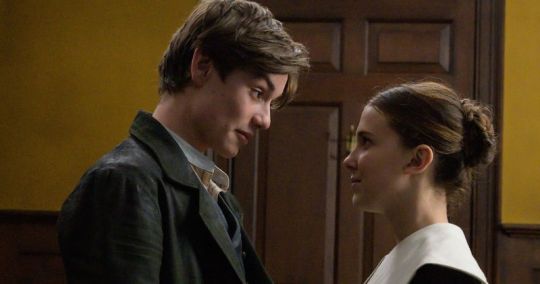
The choice to age up our heroes is, arguably, the worst decision here. In the original novel Enola has just turned fourteen and Tewksbury is a child, twelve-years-old, though he looks even younger. It's a story for a younger audience staring appropriately young heroes, with the protagonists' status as children crucial to one of the overarching themes of the story: what does it really mean to strike out on your own and when are you ready for it? Adding two years to Enola's age is something I'm perfectly fine with. After all, the difference between fourteen and sixteen isn't that great and Brown herself is sixteen until February of 2021, so why not aim for realism and make her character the same? That's all reasonable and this is, indeed, an adaptation. No need to adhere to every detail of the text. What puzzles me though is why in the world they would take a terrified, sassy, compassionate twelve-year-old and turn him into a bumbling seventeen-year-old instead?
Ah yes. The romance.
In the same way that I fail to understand the assumption that a film needs over-the-top action to be entertaining, I likewise fail to understand the assumption that it needs a romance—and a heterosexual one to boot. There's something incredibly discomforting in watching a film that so loudly proclaim itself as feminist, yet it takes the strong friendship between two children and turns it into an incredibly awkward, hetero True Love story. Remember when Enola loudly proclaims that she doesn't want a husband? The film didn't, because an hour later she's stroking her hand over Tewksbury's while twirling her hair. Which isn't to say that women can't fall in love, or change their minds, just that it's disheartening to see a supposedly feminist film so completely fall into one of the biggest expectations for women, even today. Forget Enola running up to men and paying them for their clothes as an expression of freedom, is anyone going to acknowledge that narratively she’s still stuck living the life the men around her want? Find yourself a husband, Enola. The heavy implication is she did, just with Jujitsu rather than embroidery. Different method, same message, and that’s incredibly frustrating when this didn’t exist in the original story. “It's about freedom!” the film insists. So why didn't you give Enola the freedom to have a platonic adventure?
It's not even a good romance. Rather painful, really. When Tewksbury, after meeting her just once before, passionately says "I don't want to leave you, Enola" because her company is apparently more important than him staying alive, I literally laughed out loud. It's ridiculous and it's ridiculously precisely because it was shoe-horned into a story that didn't need it. More than simply saddling Enola with a bland love interest though, this leads to a number of unfortunate changes in the story's plot, both unnecessary additions and disappointing exclusions. Enola no longer meets Tewksbury after they've both been kidnapped (him for ransom and her for snooping into his case), but rather watches him cut himself out of a carpetbag on the train. I hope I don't have to explain which of these scenarios is more likely and, thus, more satisfying. Meeting Tewksbury on the train means that Enola gets to have a nighttime chat with him about precisely why he ran away. Thus, when she goes to his estate she no longer needs to deduce his hiding spot based on her own desires to have a place of her own, she just needs to recall that a very big branch nearly fell on him and behold, there that branch is. (The fact that the branch is a would-be murder weapon makes its convenient placement all the more eye-rolling.) Rather than involving herself in the case out of empathy for the family, Enola loudly proclaims that she wants nothing to do with Tewksbury and only reluctantly gets involved when it's clear his life is on the line. And that right there is another issue. In the novel there is no murderous plot in an attempt to keep reform bills from passing. Tewksbury is a child who, like Enola, ran away and quickly discovers that life with an overbearing mother isn't so bad when you've experienced London's dangerous streets. That's the emotional blow: Enola has no mother to go home to anymore and must press out onto those streets whether she's ready for it or not.
Perhaps the only redeeming change is giving Tewksbury an interest in flowers instead of ships. Regardless of how overly simplistic the feminist message is, it is a nice touch to give the guy a traditionally feminine hobby while Enola sharpens her knife. The fact that Enola learned that from her mother and Tewksbury learned botany from his father feels like a nudge at a far better film than Enola Holmes managed to be. For every shining moment of insight—the constraints of gendered hobbies, a black working class woman informing Sherlock that he can never understand what it means to lack power—the film gives us twenty minutes worth of frustrating stupidity. Such as how Enola doesn't seem to conceive of escaping from boarding school until Tewksbury appears to rescue her. She then proceeds to get carried around in a basket for a few minutes before going out the window... which she could have done on her own at any point, locked doors or no. But it seems that narrative consistency isn't worth more than Enola (somehow) leaving a caricature of Mrs. Harris and Mycroft behind. The film is clearly trying to promote a "Rah, rah, go, women, go!" message, but fails to understand that having Enola find a way out of the school herself would be more emotionally fulfilling than having her send a generic 'You're mean' message after the two men in her life—Sherlock and Tewksbury—remind her that she can, in fact, take action.
Which brings me to my biggest criticism and what I would argue is the film's greatest flaw. Reviewers and fans alike are hailing Enola Holmes as a feminist masterpiece and yes, to a certain extent it is. Feminist, that is, not a masterpiece. (5) But it's a hollow feminism. A fantasy feminism. A simple, exaggerated feminism that came out of a Feminism 101 PowerPoint. To quote Sherlock, let's review the salient points:
A woman cannot be the star of her own film without having a male love interest, even if this goes against everything the original novel stood for.
A feminist woman cannot also be selfish. Instead she must have a selfless drive to change the world with bombs.
The best kind of women are those who reject femininity as much as they can. They will wear boy's clothes whenever possible and snub their nose at something as useless as embroidery. Any woman who enjoys such skills or desires to become lady-like just hasn't realized the sort of prison she's in yet.
The best women also embody other masculine traits, like being able to take down men twice their size. Passive women will titter behind their hands. Active women will kick you in the balls. If you really want to be a strong woman, learn how to throw a decent punch.
Women are, above all, superior to men.
Yes, yes, I joke about it just as much as the next woman, but seeing it played fairly straight was a bit of an uncomfortable experience, even more-so during a gender revolution where stories like this leave trans, nonbinary, and genderqueer viewers out of the ideological loop. Enola goes on and on about what a "useless boy" Tewksbury is (though of course she must still be attracted to him) and her mother's teachings are filled with lessons about not listening to men. As established, Mycroft—and Lestrade—are the simplistically evil men Enola must circumvent, whereas Sherlock exists for her to gain victory over: "How did your sister get there first?" Enola supposedly has a strength that Tewksbury lacks— he's just "foolish"—and she shouts out such cringe-worthy lines as, "You're a man when I tell you you're a man!"
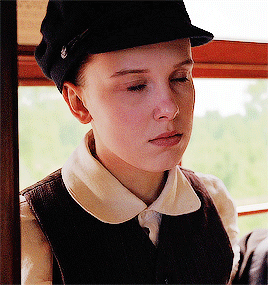
I get the message, I really do. As a teenager I probably would have loved it, but now I have to ask: aren't we past the image of men-hating feminists? Granted, the film never goes quite that far, but it gets close. We’ve got one woman who is ready to start blowing things up to achieve equality and another who revels in looking down on the men in her life. That’s been the framing for years, that feminists are cruel, dangerous people and Tewksbury making heart-eyes at Enola doesn’t instantly fix the echoes of that. There's a certain amount of justification for both characterizations—we have reached points in history where peaceful protests are no longer enough and Tewksbury is indeed a fool at times—but that nuance is entirely lost among the film's overall message of "Women rule, men drool." It feels like there’s a smart film hidden somewhere between the grandmother murdering to keep the status quo and Enola’s mother bombing for change, that balance existing in Enola herself who does the most for women by protecting Tewkesbury... but Enola Holmes is too busy juggling all the different films it wants to be to really hit on that message. It certainly doesn’t have time to say anything worthwhile about the fight it’s using as a backdrop. Enola gasps that "Mycroft is right. You are dangerous" when she finds her mother's bombs, but does she ever grapple with whether she supports violence on a large scale in the name of creating a better world? Does she work through this sudden revelation that she agrees with Mycroft about something crucial? Of course not. Enola just hugs her mom, asks Sherlock not to go after her, and the film leaves it at that.
The takeaway is less one of empowerment and more, ironically, of restriction. You can fight, but only via bombs and punches. It's okay to be a woman, provided you don't like too many feminine things. You can save the day, so long as there's a man at your side poised to marry you in the future. I felt like I was watching a pre-2000s script where "equality" means embracing the idea that you're "not like other girls" so that men will finally take you seriously. Because then you don't really feel like a woman to them anymore, do you? You're a martial arts loving, trouser-wearing, loud and brilliant individual who just happens to have long hair. You’re unique and, therefore, worthy of attention, unlike all those other girls.

That's some women's experiences, but far from all, and crucially I don't think this is the woman that Springer wrote in her novel.
The Case of the Missing Marquess is a feminist book. It gives us a flawed, brave, intelligent woman who sets out to help people and achieves just that, mostly through her own strength, but also with some help from the young boy she befriends. Her brothers are privileged, misguided men who she nevertheless cares for deeply and her mother finally puts herself first, leaving Enola to go and live with the Romani people. Everyone in Springer's book feels human, the women especially. Enola gets to tremble her way through scary decisions while still remaining brave. Her mother gets to be selfish while still remaining loving. They're far more than just women blessed with extraordinary talents who will take what they want by force. Springer's women? They don't have that Hollywood glamour. They're pretty ordinary, actually, despite the surface quirks. They’re like us and thus they must make use of what tools they have in order to change their own situations as well as the world. The fact that they still succeed feels very feminist to me, far more-so than granting your character the ability to flip a man into the ground and calling it a day.
Know that I watched Enola Holmes with a friend over Netflix Party and the repeated comment from us both was, "I'd rather be watching The Great Mouse Detective." Enola Holmes is by no means a horrible film. It has beauty, comedy, and a whole lot of heart, but it could have been leagues better given its source material and the talent of its cast. It’s a film that tries to do too much without having a firm grasp of its own message and, as a result, becomes a film mostly about missed potential. Which leads me right back to where I began: The book is better. Go read the book.
Images
Enola Holmes
Mycroft Holmes
Sherlock Holmes
Enola and her Mother Doing Archery
Enola and her Mother Fighting
Tewkesbury and Enola
33 notes
·
View notes
Text
Studying “A Study in Emerald”: Sixth and Final Post
Additional Thoughts: The Doctor, The Myth, The Legend(s)
Remember way back in my first “Emerald” post, when I said that the bit about the detective’s shoulders was the first direct hint about the identities of our “heroes,” but with a little asterisk? Well, this final post brings us back to my caveat. Strictly speaking, the shoulder description is the second direct hint.
If you know your canon inside and out, have internalized the defining features of the characters in their original form, you should have been tipped off about the twist on the very first page of “Emerald,” even before the detective and the narrator move into Baker Street. Because this story doesn’t just weaponize the canon (though it does do that quite well, as I have explained in earlier posts). It weaponizes the myth of Sherlock Holmes—the way he and his associates have come to be known as exaggerated and slightly warped versions of how they are in the stories.
Watson is not a crack shot.
It’s more accurate to say, really, that Watson may or may not be a crack shot, but we never get that as a definitive aspect of his character in the canon. In the popular imagination, when Watson is not reduced to simply standing around asking Holmes to explain his deductions, he is positioned as the guy with the gun, the man of action to Holmes’s man of intellect—which is a faulty conception. If you actually read the stories, then you know that A) Holmes has a gun with him fairly often, although not quite as often as Watson does; B) Watson is more often found threatening someone with a revolver than actually firing it; and C) when Watson does fire his gun, often Holmes is right beside him also firing off a round. In both The Sign of the Four and The Hound of the Baskervilles, Watson and Holmes fire at a target together, and it’s never made clear whether one or both of the shots hit the intended target, so we have no indication of the two men’s comparative skill level with firearms. The only instance of Watson both firing and firing alone is in “The Adventure of the Copper Beeches,” where he runs up and shoots the dog that is mauling Mr. Rucastle. I imagine this takes some skill with a revolver, as he manages to shoot the dog and not shoot the man, but as it was at close range and the dog is on top of Mr. Rucastle, I believe (based on my extremely limited knowledge of firearms) all that this tells us is that he is competent when it comes to gunplay, not necessarily a crack shot. The reason the masses picture Watson as the gun-toting one is because A) Holmes is often requesting that Watson bring his revolver or asking if he has it, so the image of Watson with a revolver in hand has stuck with people; and B) Holmes so obviously brings the intellectual strength to the pair that it’s easy to assume that all Watson has to offer is physical skill to complement it.
Yet that dichotomy—Holmes is the brains, Watson is the brawn—is quite inaccurate, if you take a look at the original stories. Holmes brings a good deal of his own brawn to the pair: he boxes and fences and is strong enough to bend pokers with his bare hands. Watson, for his part, is quite intelligent—the fact that he is a Doctor of Medicine is often overlooked in terms of its significance. This aspect of his identity—something only achieved through years of study, which he makes plain to us at the very beginning of A Study in Scarlet—plays a much larger role throughout canon than his aim. See how many times Watson mentions helping someone recover from their wounds or checking someone’s injuries. See how many times he mentions being busy with his medical practice right before he gets sucked into a case. Watson is many things (something which too many adaptations forget)—first and foremost, however, he is a doctor.
The narrator of “A Study in Emerald” bemoans his lost status as a crack shot on the very first page and brings it up multiple times throughout the story. It is the whole of his self-identity, and the fact that his shoulder is healing toward the end gives him hope that he will regain his “deadshot” status. Moran’s whole claim to fame is being a crack shot (“He was the best shot in India, and I expect that there are few better in London”)—therefore it should be clear, going off of the canon alone, that the narrator is Moran, and not Watson. But because Watson is enshrined in the popular imagination as the one most likely to fire a gun while Holmes is off being brilliant, that little hint slips through the cracks. If this were truly just “Sherlock Holmes in a Lovecraftian world,” and the narrator truly was Watson, he would not be preoccupied with his ability to fire a weapon. Also, you’ll notice that it is Watson’s training as a Doctor of Medicine that allows him to dispatch the Prince of Bohemia so effectively. His specialized knowledge is what makes him an asset to Holmes in this universe, in keeping with the fact that being a doctor is the one major thing that Watson has on Holmes in the original canon. Watson’s status as a doctor makes him just as deadly in “Emerald” as Moran’s marksmanship makes him in the original stories—and with “Emerald” Watson occupying the place of canon Moran as the associate of the genius criminal, that means “Emerald” is treating being a doctor as the primary aspect of Watson’s identity, just as Moran being a sharpshooter is his. Gaiman could have had the doctor kill the prince with a gun, staying perfectly in keeping with Watson’s established practice of carrying a revolver—but he chose instead to have Watson kill with knives and a medical professional’s precision. This highlights the major difference between the two men, an important thing in a story that hinges on their similarities. As I said in the previous post, Watson and Moran have a great deal in common, but Watson’s being a doctor sets him apart in a way that tells us he wants to help his fellow human beings—“human beings” being a key specification to make in “Emerald.”
The thoughtfulness evident in Gaiman having Watson’s murder weapon of choice be a knife rather than a gun runs throughout the entirety of “A Study in Emerald,” and I believe that is why I was so taken with this story. It’s very easy to make a Sherlock Holmes pastiche that is recognizable as such. An “elementary” here, a “game’s afoot” there, a smoke of a pipe and some rapid-fire deductions, maybe a mention of Baker Street, and the job’s done. But that often reduces Sherlock Holmes and Dr. Watson to surface-level depictions of themselves, more concerned with the most iconic aspects of the characters than who the characters actually are. “A Study in Emerald” is a story where the characters’ identities are the whole point—if you take away the trappings most associated with them, and give them to their mortal enemies, are they still the same people? Gaiman explores that by employing both major and minor details from the canon, with those minor ones turning out to be the most important. And while he’s weaving these details together, deploying them at precisely the right spots in the narrative, he also manages to create a compelling alternate world that could host its own set of stories I would be eager to read.
7 notes
·
View notes
Note
Do you have any thoughts about the announced adaptation of 'the City Watch' books by BBC America? Opinions seem pretty mixed in the fandom and I'd love to hear your take?
For a show I was almost definitely never going to watch from the outset, I have more thoughts about the Watch adaptation than I really know what to do with, to be honest. It’s actually hard to assemble them coherently.
There are basically three strands of opinion I have about watching The Watch: personal, critical, and literary.
The personal:
I don’t have a great history of enjoying media adaptations of Terry Pratchett’s work. One reason I didn’t watch Good Omens until a month or two after its release is that I knew this about myself and I didn’t want to turn it on, get disappointed, and turn it off, as I’d done with The Hogfather (we need not speak of The Animated Soul Music, lord). Granted, the Death books are not my favorites, so I was never going to deeply engage with The Hogfather, and then they came out with The Colour Of Magic, another non-favorite, so I skipped it, and so I was super disengaged by the time Going Postal came out (though I should really give Going Postal a chance because I do love Going Postal as a book). So I acknowledge this isn’t objective, this is personal, but it’s still a factor.
So I’m not coming into this whole situation with The Watch as someone who actually wants, or enjoys, TV adaptations of Pterry’s books, Good Omens notwithstanding – and let’s be real, Good Omens is an outlier. It was a collaboration, one of the original authors had deep control over the adaptation, and also Good Omens isn’t a Discworld book. It’s much more thoroughly rooted in our known reality, which makes it easier to convey to television. But my ultimate point is that when I hear about a Discworld book being adapted to TV, I shrug and move on. I have the books. I don’t need the shows.
The critical:
I think it is a bad habit of fandom that we extrapolate a lot of inference from a relatively small amount of data – we tend to take a couple of photos, a press release, some casting information, and very quickly make a large set of assumptions. It’s not necessarily that these assumptions are wrong, but we jump to a lot of conclusions. I’m thinking of early backlash over Good Omens, which I don’t even remember what it was about but I remember Gaiman having to get pretty stern about “could you wait until at least the trailer is out before jumping down my throat”. I’m also thinking of the casting of David Thewlis as Remus Lupin, which was not well-received until we saw more than blurry set photos.
Now, all that having been said, some of the casting news has been…difficult. On the one hand, a Black Sybil Ramkin? Sign me the fuck up. On the other, I know that for a lot of people, having a Sybil who is both large and older is really important (I think it’s important too). Especially if Vimes is older, it’s creepy and backwards to have Sybil be young and hollywood-idea-of-pretty (even if the time travel element is involved, it gets into a weird area). Also, I’m really over only ever casting people of color as villains or supporting-role-women. Vimes canonically comes from a “poor but respectable” neighborhood that could easily be reframed as an ethnic neighborhood, which would be especially pointed and interesting given his family’s long connection to the history of the city. An Indian or part-Indian Sam Vimes would be really, really interesting and cool, for example.
There’s also a lot of discussion about casting a nonbinary person as Cheery and explicitly setting Cheery up as nonbinary, as opposed to explicitly a trans woman*, especially since in the books she identifies as a woman, not as nonbinary. But I’m not entirely sure if Cheery as nonbinary is actually going to be canon or if that’s just the reporting on the show not knowing how to handle the whole Female Dwarf situation. Not everyone interprets Cheery as trans at all, either, because of how dwarf gender identity works, which complicates matters somewhat, so I’m not going to wade too far into these waters. I do think it’s great enby actors are getting work in enby roles, but there’s some issues there that need further examination.
(* Note -- corrected the above after it was pointed out to me that NB are not trans light; I’ve changed it to trans woman rather than trans-as-umbrella-term, more here.)
So I think overall it’s early days to make a lot of calls about what The Watch will and won’t be, but I also think there’s a lot of reason to be concerned and annoyed, and that brings us to the real, hardcore reason that I saw the first reporting on The Watch and immediately noped out:
The literary:
“Punk rock thriller.”
Oh go fuck yourself.
Despite everything I said above about not making snap judgements I immediately read that it would be a dark punk rock thriller police procedural and went “Well, guess that’s that” and walked away from the idea of being even vaguely excited about this show, because what I read demonstrated a basic, fundamental lack of grip on what the Watch books are about.
One, the Watch books aren’t about crime. They really genuinely aren’t. The crimes are macguffins on which to hang social commentary about other things entirely. Even in the very earliest Watch books, when Pterry was still mostly making fun of high fantasy, the crimes the Watch investigated were committed in the service of a larger discussion about things like totalitarianism, interculturalism, and civic life. There’s at least one moment, and I believe several but I’d have to re-read the books to be sure, where Pterry explicitly makes fun of murder mysteries where the hero Solves Crimes Like Sherlock Holmes. Vimes hates clues. Feet Of Clay has an extended subplot about how you 100% cannot trust clues even when the author is the one feeding them to you. I do not want a Watch series that is about Clues.
Two, the Watch books are explicitly the antithesis of the action genre. They have action in them, but the point is that nobody in these books are action heroes; they’re ordinary people attempting to go about their jobs in a situation where that constantly becomes increasingly difficult. I read “punk rock thriller” and I thought to myself of the dedication of Guards! Guards!:
They may be called the Palace Guard, the City Guard, or the Patrol. Whatever the name, their purpose in any work of heroic fantasy is identical: it is, round about Chapter Three (or ten minutes into the film) to rush into the room, attack the hero one at a time, and be slaughtered. No one ever asks them if they want to. This book is dedicated to those fine men.
This does get a bit tricky because by the end of Snuff, Vimes is very heroic, almost too heroic for my comfort, but at the same time his heroism is of a very specific sort: he is heroic not because he slaughters the palace guard who get in his way or shoots the baddie or blows up a cop car with a helicopter (or vice versa) but because he deeply, intensely hates those things, and wants nothing to do with them. He is heroic because he is forced into it by circumstance, but spite in the face of monstrousness is what powers him. I think of The Fifth Elephant, where Vimes has just killed a werewolf:
There were a lot of things he could say. “Son of a bitch!” would have been a good one. Or he could say, “Welcome to civilization!” He could have said, “Laugh this one off!” He might have said, “Fetch!” But he didn’t, because if he had said any of those things then he’d have known that what he had just done was murder.
I don’t trust someone who thinks The Watch should be reimagined as a thriller to understand Sam Vimes. Like, there’s room for interpretation as to Vimes’ character, but there is a fundamental underlying bedrock Vimes is built on and if you don’t grasp the broad points of that, you’re just writing a cop show with some names stitched on.
Three, the Watch books aren’t a static series, they aren’t like cozy mysteries where the circumstances change but the hero rarely does. That’s nothing against cozy mysteries; I love mystery novels and some of my favorites involve characters who don’t even age over the course of the forty years the books were written in. But you cannot pastiche the Watch and expect it to work.
Again this is a bit of extrapolation based on low amounts of data but I think it’s probably accurate – the casting indicates that either we’re dealing with the events of Night Watch or at the very least heavily engaged with aspects of it. But Night Watch, while I think it’s one of Pterry’s best books hands down, doesn’t exist in a vacuum. It is one point in a very specific developmental arc, not just for Vimes but for the entire Watch. If we’re dealing just with the plot of Night Watch (which I don’t think we are) that’s tough to pull off. If, as I suspect, they’re going to be pulling from various aspects of various Watch books, then that’s just fucking nonsense.
Even Carrot, who is a very constant figure, undergoes some fundamental shifts in personality between Guards! Guards! and, say, The Fifth Elephant. Vimes, while maintaining his personal moral and ethical code, undergoes a radical shift between Guards! Guards! and Night Watch, and he continues to develop emotionally and in some ways spiritually up until Snuff. The Vimes who bitches about diversity in hiring in Men At Arms will not react to any given situation the way the Vimes who befriends the goblins in Snuff will.
And because these books also all address very specific issues, you can’t just slam them all together and expect to get anything resembling the Watch as Pterry envisioned it over the course of the books.
So while I love the comedy, the characters, the plots, even the macguffin crimes, I believe that a Watch book – a Discworld book of any kind – without that satirical bite is just a high-fantasy husk. There’s no point to it, nothing that sets it apart from a bad Saturday Night Live skit about Game of Thrones. The tv series might actually turn out great and all my concerns will have been unfounded, but first looks aren’t promising on a number of really basic levels.
So we’ll see. If I’m wrong, great; the show will probably electrify fandom in the same way Good Omens did. If I’m right, well, I had no hopes to begin with, so I’ll just enjoy re-reading Night Watch, which is the book that got me back into fandom and which you can all blame for my presence here today. :D
#discworld#the watch#copperbadge is named after the copper badge of sam vimes#Anonymous#you will pry ugly bastard sam and fat practical sybil from my cold dead hands
514 notes
·
View notes
Photo
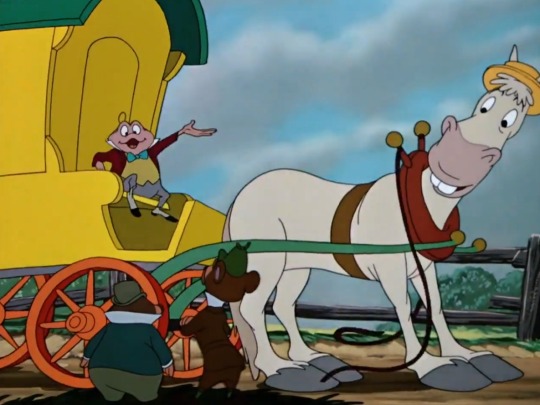
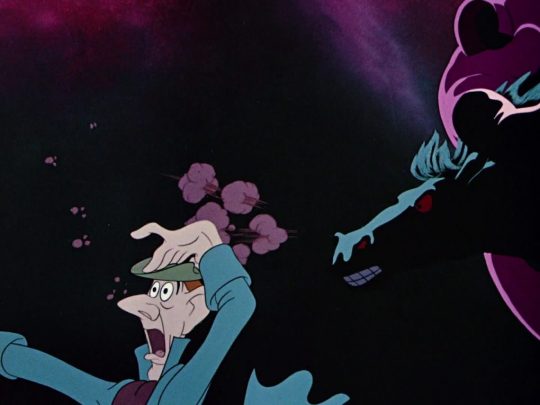
Movie Odyssey Retrospective
The Adventures of Ichabod and Mr. Toad (1949)
Walt Disney seemed to have been mentally drifting in the 1940s, producing a scattershot of films without the artistic discipline he displayed prior to Bambi (1942). His attention wavered between the package animated features, his forays into live-action features and nature documentaries, and taking mental notes about the new medium of television. As Walt approached his 50s, the strain of the work he had thrust upon his studio and himself was beginning to show. In his nurse, Hazel George, he found a rare confidant (it was a friendship, nothing more). He noted his personal need to move forward on projects, rather than tolerate any stalling. “I’m going to move on to something else because I’m wasting my time if I mess around with that any longer,” he told George about his projects stuck in development hell. That was the difficult reality facing The Adventures of Ichabod and Mr. Toad – directed by Jack Kinney, Clyde Geronimi, and James Algar – as it became the final animated feature of the package era of Disney animation.
Walt was dividing his time between this film, building a personal miniature railroad in his backyard (the genesis of the idea that would become Disneyland), a nostalgic and personal dramedy of rural turn-of-the-century America in So Dear to My Heart (1948), the start of his True-Life Adventures series of nature documentaries with Seal Island (1948), and restarting the studio’s line of non-package animated features. Of all these things, The Adventures of Ichabod and Mr. Toad probably consumed the least of his attention. A feature-length adaptation of Kenneth Grahame’s The Wind in the Willows had been in the works at the studio in the months before the United States’ entry into World War II, but was halted due various factors: the war, the Disney animators’ strike, and Walt’s belief that Grahame’s book did not justify a feature-length treatment. Work on an adaptation of Washington Irving’s The Legend of Sleepy Hollow began in 1946. But unlike The Wind in the Willows (which also resumed production in 1946), the adaptation of Irving’s story was always envisioned as a segment to a package film – not a standalone feature. Itching to return to animated features and still not convinced in the potential of a feature film surrounding Mr. Toad and friends, Walt announced the merging of the two projects in 1947.
The Adventures of Ichabod and Mr. Toad uses a live-action library as a framing device. The Wind in the Willows makes up the film’s first half; The Legend of Sleepy Hollow closes it out. Each half has a narrator that, at the time, was at their career’s peak. The opening half is narrated by Basil Rathbone (1938’s The Adventures of Robin Hood and as Sherlock Holmes in fourteen movies from 1939-1946); the concluding half by Bing Crosby (best known for his musical career, but was also an enormous box office draw with the Road to… series among other films). Both Rathbone and Crosby hold up Mr. Toad and Ichabod Crane, respectively, as exemplary characters of their home nation’s literature.
The Wind in the Willows begins in 1908 as J. Thaddeus Toad, Esq. harbors an insatiable appetite for adventure, rather than being shut in his elegant Toad Hall estate all day. His friends Rat, Mole, and Angus MacBadger (also his accountant) mostly tolerate Toad’s newest crazes. When, for the first time, Toad spots a motor car, his eyes widen and he is enamored with this newfangled contraption. Toad’s obsession turns into recklessness – leading him to some fraudulent dealings with weasels and legal trouble.
On the surface on Walt Disney’s concerns with The Wind in the Willows, I disagree that Grahame’s novel could never be a feature film.* As presented, the segment runs a neat and all-too-brief half-hour. In an era of communal moviegoing and when a single movie ticket often bought the purchaser a double feature (a B-picture followed by an A-picture, with film trailers, short films, serials, or newsreels in between), The Wind in the Willows is presented as the film’s B-segment. That should not be taken as a swipe on the segment’s quality, however. The Wind in the Willows is a marvel of narrative compactness and situational madness that tees up Alice in Wonderland (1951). Whenever necessary, the narration and newspaper headline montages accelerate the plot. The pace is breakneck, but that never threatens to make The Wind in the Willows incomprehensible. It is filled with dry English wit, benefitting from wonderful voice acting from Eric Blore (a regular supporting actor in Fred Astaire-Ginger Rogers musicals for RKO) as Toad and J. Pat O’Malley (Tweedledum and Tweedledee in Alice in Wonderland, 1954’s Dial M for Murder) as Toad’s horse, Cyril Proudbottom. When both Toad and Cyril are introduced in the short song “Merrily on Our Way (to Nowhere in Particular)” – music by Frank Churchill and Charles Wolcott, lyrics by Larry Morey and Ray Gilbert – it is a perfect overture to the madcap misadventure that is about to occur.
Animator Frank Thomas’ (the dwarfs from 1937’s Snow White and the Seven Dwarfs, Captain Hook for 1953’s Peter Pan) character designs for Toad, Rat, and Mole are simple, fluid, without too much definition (think Winnie the Pooh). As such, all three are highly expressive figures easily adaptable to the comic scenarios that stumble onto. So much is related to the audience with a crazed grin from Toad, an exasperated sigh from Rat, and Mole’s concerned face. Similar praise must also be dedicated for a side character – namely, the Crown Prosecutor designed by Ollie Johnston (the three animated principal characters in 1946’s Song of the South, the fairy godmothers of 1959’s Sleeping Beauty). The Crown Prosecutor does not appear in the film for long, but his elastic limbs and body – outside Johnston’s wheelhouse – provide a simultaneously comic and menacing contrast to the anthropomorphized animals he towers over. Like all of Disney’s package film segments before it, The Wind in the Willows has numerous instances where the backgrounds and character animations compare unfavorably to the studio’s Golden Age works. But does the lack of painterly backgrounds or character design definition mean much when the piece in question is aiming purely for laughs? Not really. This is some of the best comic filmmaking made by the Disney studios in its history, even though it seems to have been overshadowed by what happens next.
youtube
The Legend of Sleepy Hollow takes place in Colonial-era Sleepy Hollow, New York. Ichabod Crane, the town’s new schoolteacher, is a thin dandy (“lean and lanky, skin and bone / with clothes a scarecrow would hate to own”) possessing an enormous appetite. The man looks nothing like a ladies’ man, but he is exactly that – to the annoyance of town rogue and proto-Gaston, Brom Bones. Brom and Ichabod vie for the attention of Katrina van Tassel, the daughter of wealthy farmer Baltus van Tassel. Noting Ichabod’s superstitious ways, one night Brom tells the story of the Headless Horseman – a stratagem that succeeds in spooking the schoolteacher.
Mary Blair’s midcentury modernist design and coloration for Sleepy Hollow reflects the folksiness of the village, Ichabod’s occasional naïveté. Her curved lines for the surrounding countryside – notice how her trees curve in improbable ways – make it an inviting, down-home place to live. Putting the segment’s climax aside, the backgrounds lend an atmosphere similar to early autumn, as the calendar year begins to wither away.
This, of course, is turned on its head when Ichabod encounters the Headless Horseman. Blair’s backgrounds are blanketed in black, blue, and purple – emphasizing Ichabod’s physical isolation in these moments. The trees blend into an abstract tapestry, as if one cannot see only a few feet outside of the road. Outside of The Legend of Sleepy Hollow’s uninteresting romantic wooing scenes, the segment is an exemplar of atmosphere and how to successfully change a film’s tone with animation. Wolfgang Reitherman’s (an animator who later became a prominent director with the Walt Disney Studios in the 1960s) smooth character animation specific to the Headless Horseman chase contrasts Ichabod’s flexibility with the sharpness of the Headless Horseman and his horse. Reitherman’s approach to the characters, combined with Blair’s style for the backgrounds, heightens Ichabod’s full-bodied terror against the Horseman’s frightening presence.
The segment’s pedestrian character animation is unfortunate and is the film’s most visible example of cost-cutting. Yet Ichabod and Brom’s designs – by Ollie Johnston and Milt Kahl (Prince Philip in 1959’s Sleeping Beauty, Tigger in the Winnie the Pooh short films) respectively – are excellent. Ichabod’s outwardly-angled, high-footed gait proclaims immediately his peculiarity in behavior and temperament. His impossibly thin body is bendable to achieve tremendous comic effect while still resembling something like a human. When providing three village women singing lessons, Ichabod (voiced, like Brom, by Bing Crosby), assumes many of Bing Crosby’s affectations while singing himself – those raised eyebrows, that jowl movement. This scene is much funnier if one is familiar with Bing Crosby’s film (and to a lesser extent, television) appearances. For Brom, his muscular frame is a first for a Disney animated feature, providing a somewhat threatening feel for the song, “The Headless Horseman” (which introduces the idea of the segment’s villain). On paper, Brom should be the segment’s antagonist, but things are not clear cut – especially because Ichabod himself has questionable motives in his pursuit for Katrina. Decades later, Kahl’s character design for Brom heavily influenced Andreas Deja’s design for Gaston in Beauty and the Beast (1991). Deja would take some of Brom’s features, add more details and exaggerations, and provide his antagonist a more sneering disposition for Gaston.
The Legend of Sleepy Hollow also has the benefit of songs sung by Bing Crosby and composed by Don Raye (known for various Andrews Sisters songs) and Gene de Paul (1954’s Seven Brides for Seven Brothers). The first, “Ichabod”, is the one number I always find stuck in my head and singing to myself throughout a given day (I also notice, while singing, I’m trying to imitate Crosby’s suave delivery, to little avail). It also serves as an ideal introduction to the character – outlining his personality in less than two minutes. Midway through the segment is “Katrina”, which is as musically uninteresting as the character herself. “The Headless Horseman”, also an earworm, plays on Ichabod’s fears and is a wonderful transition into this film’s most famous sequence.
The Adventures of Ichabod and Mr. Toad is the best animated feature from the Disney package era. Its two halves – so distinct in style and narrative approach – are incongruent, some may say an unnatural pairing. But moviegoing audiences in 1949 so used to the B- and A-picture format of film exhibition were also accustomed to feature film pairings with little rhyme or reason. A flighty musical comedy might lead into a war movie; a romantic melodrama before a fast-paced swashbuckler; a seedy film noir giving way to a grand historical epic. Many decades removed from the moviegoing attitudes of this era, the pairing of The Wind in the Willows with The Legend of Sleepy Hollow pays off due to the stylistic distinctions between these two segments. Compared to its package era predecessors, The Adventures of Ichabod and Mr. Toad has taken the time to shape its characters. For Toad, his motor car mania is a mostly innocent obsession that has endured; Ichabod Crane is forever associated with a harrowing chase through a gnarled wood. Their characterizations come through despite the limitations put upon the studio’s animation staff.
A modest success for Walt Disney, The Adventures of Ichabod and Mr. Toad is now mostly described as a transitional film. The film sees the Disney animators flex their artistry before the resumption of the studio’s traditionally-structure animated features. Sometime during the final stages of this film’s development, Walt and his brother Roy E. Disney fought over the former’s desire to return to features, to recapture the thrill that he felt when he produced Snow White. Under protest, Roy relented and approved a budget for Cinderella (1950) – the first film of Walt Disney Productions’ “Silver Age” films. While Ichabod and Mr. Toad wound down, more resources were being pooled into Cinderella.
This was the effective end to a creatively restrictive period in the studio’s history, but also to some of the most unique offerings in the Disney filmography. Audiences have seldom seen the concise characterizations, Warner Bros.-influenced outlandish humor, romanticized American folk storytelling and propaganda, and experimental animation in a Disney animated feature to the present day. Each of these aspects could be found throughout Disney’s package films – which, for any serious fan of animated film, cannot be dismissed offhand. In a decade of war and global reconstruction, the studio stood mostly alone in the realm of feature animation. But not for much longer. In Europe, animation studio Soyuzmultfilm was beginning to distribute its films beyond the Soviet Union’s borders. And with Walt Disney’s attention straying from his animated films, his animation studio’s record of sterling creativity – already hobbled by the animators’ strike and wartime budget cuts – would be further challenged.
My rating: 7.5/10
^ Based on my personal imdb rating. Half-points are always rounded down. My interpretation of that ratings system can be found in the “Ratings system” page on my blog (as of July 1, 2020, tumblr is not permitting certain posts with links to appear on tag pages, so I cannot provide the URL).
For more of my reviews tagged “My Movie Odyssey”, check out the tag of the same name on my blog.
This is the eighteenth Movie Odyssey Retrospective. Movie Odyssey Retrospectives are reviews on films I had seen in their entirety before this blog’s creation or films I failed to give a full-length write-up to following the blog’s creation. Previous Retrospectives include Dracula (1931), Godzilla (1954, Japan), and Oliver! (1968).
* A “feature film” – as defined by the Academy of Motion Picture Arts and Sciences (AMPAS), the American Film Institute (AFI), and the British Film Institute (BFI) – is a film lasting forty minutes or longer.
#The Adventures of Ichabod and Mr. Toad#Jack Kinney#Clyde Geronimi#James Algar#Walt Disney#The Wind in the Willows#The Legend of Sleepy Hollow#Basil Rathbone#Bing Crosby#Oliver Wallace#Mary Blair#Frank Thomas#Ollie Johnston#Wolfgang Reitherman#Milt Kahl#Disney#My Movie Odyssey
8 notes
·
View notes
Text
The Lost Special?
Musings over possible implications of BBC Dracula
After obsessively watching all three episodes of BBC Dracula, I can’t help feeling I’ve got one of my suspicions, if not exactly confirmed, at least enhanced: that this Victorian old story, finally adapted into present time, might in fact be relevant to Mofftiss’ version of ACD’s short story The Lost Special. Maybe it is, maybe it isn’t, but since I can’t deny I do like ‘tin-hatting’, for now I choose to believe it is. ;)
(Continued under the cut)
As some of you guys already have expressed, I think BBC Dracula has BBC Sherlock written all over it. I believe this was obvious already from the setup; same authors, same producers, same broadcasters, same set designer, same format, three of the same actors including one of the writers, and even the same airing slot as BBC Sherlock. The Sherlock hints are sprinkled all over the two first episodes, which occur in the same Victorian time frame as ACD’s original Sherlock Holmes stories. This for example:
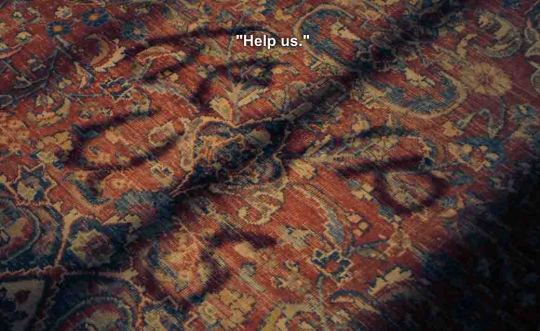
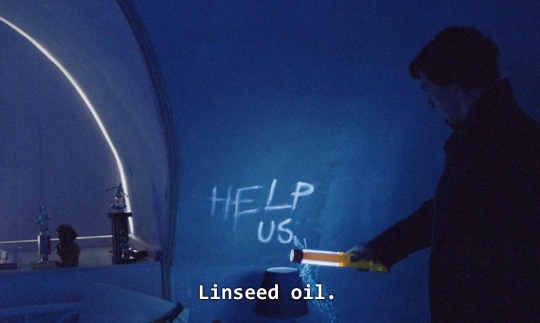
But the bringing of Bram Stoker’s old narrative into present time in the third episode (The Dark Compass) kind of sealed the deal for me.
Suddenly we have Count Dracula sending text messages by smart phone to his victims:
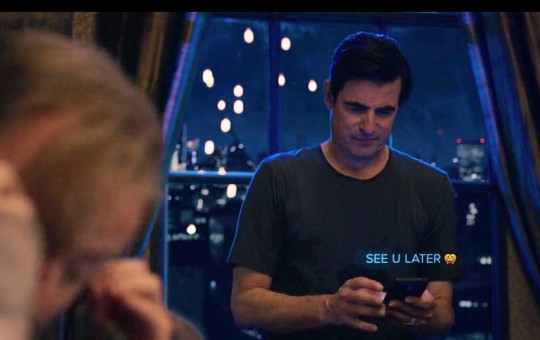
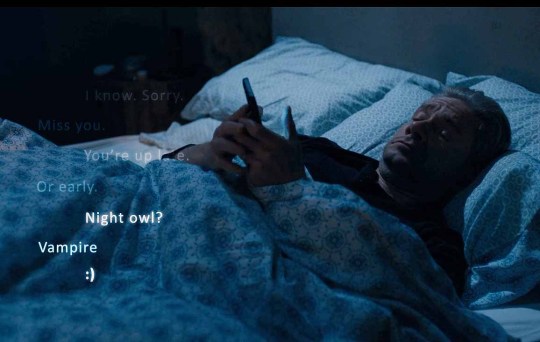
We have Dracula vomiting on the rug of a crime scene:

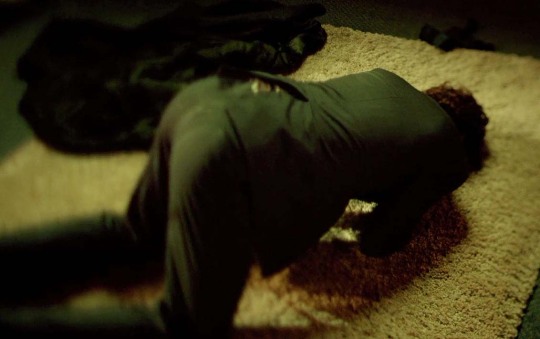
We have him storing body parts in the fridge! (X)
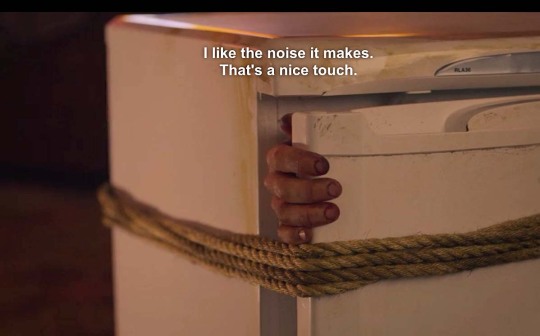
And this fridge scene is taking place while Dracula is watching a TV program with elephants on the Savannah, exclaiming “Look at her - so beautiful!”:
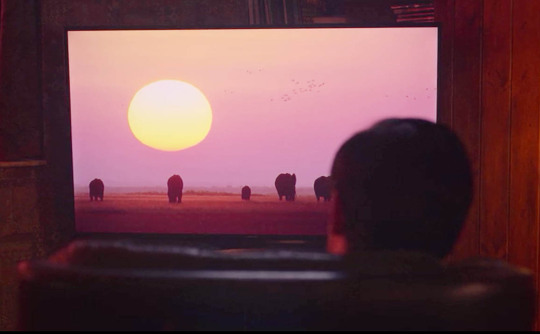
Who is beautiful - the ‘Elephant in the Room’? It certainly feels like Mofftiss are stringing us along here, doesn’t it? ;)) But no; it’s the sun that Dracula admires as beautiful, we learn that in the show. The shining from the sun is a thing he thought he could never endure, but ultimately he learns that he actually can.
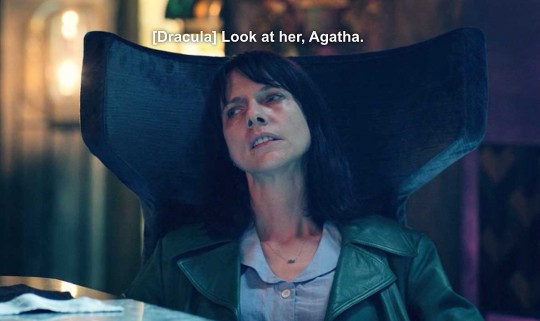
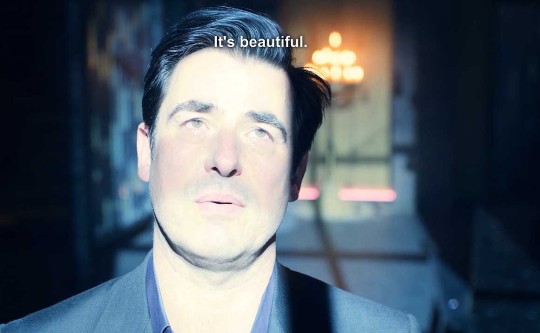
Same thing as Sherlock says about John Watson the distant suns in the sky in TGG:
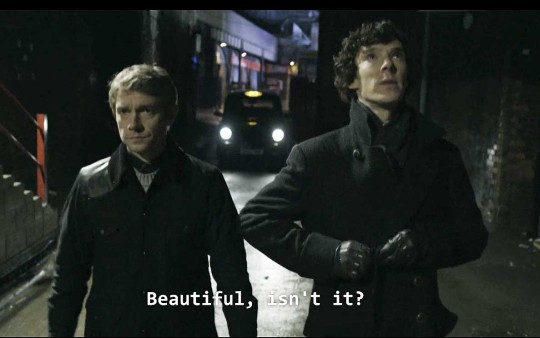
Or about Sister Sentiment’s music in TFP:
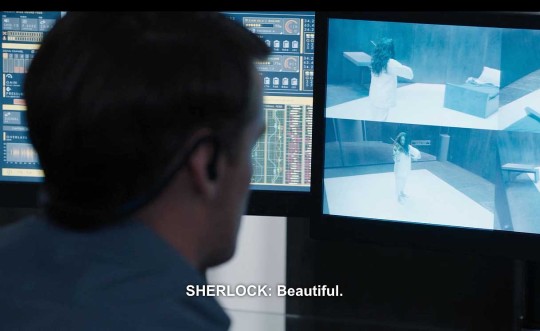
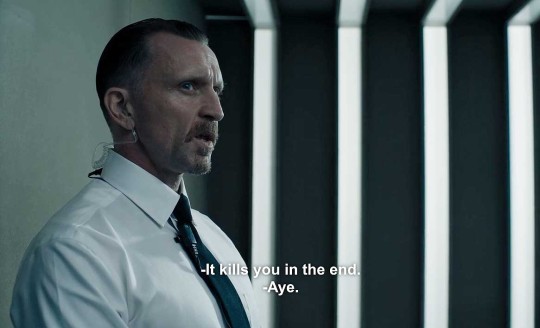
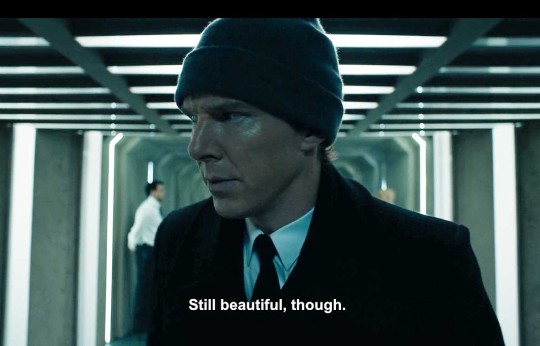
Taking Dracula to modern time is something that the authors had expressly denied they would do. But they were lying of course, as is their usual MO. Exactly the same deception as they did with TAB, isn’t it? And as if this wouldn’t be enough, there’s a whole list of other modern Sherlock references, summarized by @gosherlocked (X). I’m sure there’s more, we just need some more time to find them.
As I mentioned in this comment recently (X): The Lost Special (X) is a short story about a derailed, disappeared train that ACD wrote during the Great Hiatus (1898). It bears some typical Holmes-case mystery characteristics. And the anonymous person who in this story sends a letter to the train company, suggesting a way of solving the case, seems very much to be Holmes himself:
“It is one of the elementary principles of practical reasoning, that when the impossible has been eliminated the residuum, HOWEVER IMPROBABLE, must contain the truth. It is certain that the train left Kenyon Junction. It is certain that it did not reach Barton Moss. It is in the highest degree unlikely, but still possible, that it may have taken one of the seven available side lines. It is obviously impossible for a train to run where there are no rails, and, therefore, we may reduce our improbables to the three open lines, namely the Carnstock Iron Works, the Big Ben, and the Perseverance.”
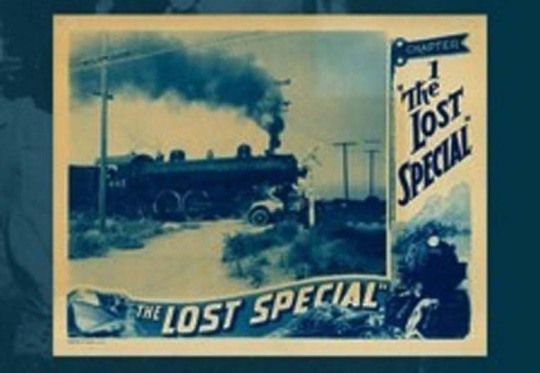
(X). So this short story indeed looks like a Holmes story in disguise. But Sherlock Holmes’ name is never mentioned in The Lost Special and the storyteller is not John Watson. In this story the police did not act on this anonymous person’s advice. The truth wasn’t revealed until one of the perpetrators - a hired murderer who was threatened with execution years later - admitted that he had participated in derailing the train in question (X): “A conspiracy of men had temporarily re-attached the side track leading to the abandoned mine Heartsease just long enough for the train to go down to the mine, then pulled the tracks back up before they could be discovered.” To the broader audience, however - the Holmes readers - the character of Sherlock Holmes remained ‘dead’.
The wrapping up
One could say that The Lost Special both had and had not a satisfactory ending. Satisfactory because the truth was finally told and the mystery thus solved, but unsatisfactory because in spite of all the hints, the readers didn’t get to know anything more from Holmes. Not until years later (1903) when ACD actually did ‘resurrect’ him and continued the narrative of Sherlock Holmes with 33 more short stories.
When Dracula finally ‘dies’ at the end of the BBC Dracula series, it’s not by being ‘staked’ or burnt to ashes with the sunlight as one would expect for a ‘monster’ like him. It’s by embracing the criticism of his most resilient but dying opponent: Zoe/Agatha Van Helsing (Mofftiss call her ‘Zagatha’ in an interview). She is dying from cancer, not from vampire bites. Dracula drinks her (to him) mortal blood and then ‘dies’ in her arms, basking in the sunlight (without burning) in a tender lovers’ embrace.
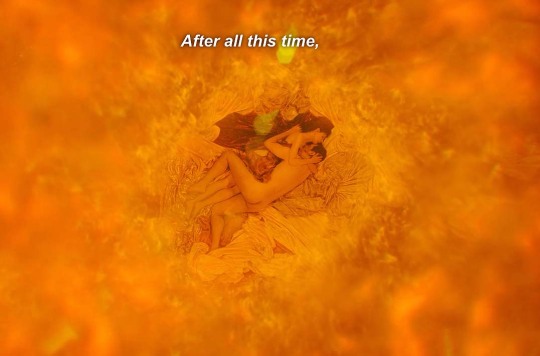
Zagatha in BBC Dracula is criticizing the vampire for skulking in the shadows, being afraid of facing death. She says it will be his punishment to live on for eternity, while she is mortal and dying:
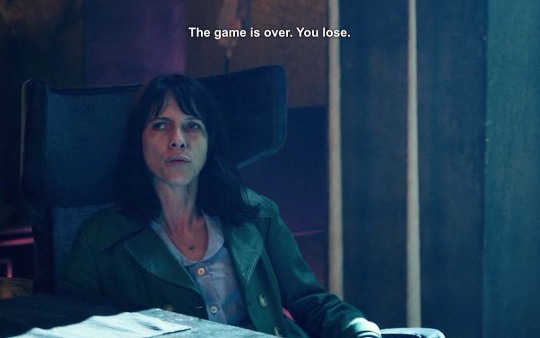
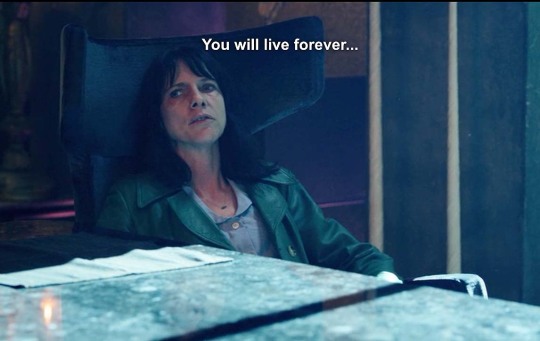
Seriously, this is so much ‘Buffy the Vampire Slayer that I can’t just... But Count Dracula re-writes Bram Stoker’s original story and opts for another solution: to ‘die’ willingly in the sunlight, together with Zagatha. And if dying is a metaphor for falling in love - as I believe it is in BBC Sherlock - this might have some important implications. I think Dracula and Zagatha here represent two sides of Sherlock that are finally allowed to merge; his Sentiment and his (Homo)sexuality.
Like The Lost Special, BBC Dracula is nicely wrapped up and ‘solved’. But we still don’t really know what happened with Count Dracula, because we don’t actually see him crumble into ashes like he did in Stoker’s canon, and like the other vampire who was ‘staked’ in the show - Lucy Westenra. But the episode is packed with Sherlock references, so...
But I can’t say for the life of me that S4 of BBC Sherlock brought a satisfactory ending for the Holmes narrative either; it’s not ‘wrapped up’ at all! John and Sherlock seem to live on for eternity as ‘best friends’, solving crimes in the heteronormative ‘legends’ preferred by Ghost!Mary’s voiceover. They are simply immortal, Un-Dead for ever - like a punishment? Wouldn’t it be far more satisfying if Sherlock Holmes and John Watson’s characters would come out and appear ‘human’ and ‘mortal’ and not have to remain just ‘best friends’ forever?
The (lack of) train references
One might argue, of course, that there are no specific train references in BBC Dracula, so how could we think it has anything to do with The Lost Special? Because, like The Lost Special, BBC Dracula is a Sherlock story in disguise! And because in the BBC Sherlock narrative itself there are already several episodes with train references; the most prominent of them is TEH and the last one - TFP. So there’s really no need for more references. But the train theme isn’t explained; it’s not ‘wrapped up’ at all, and neither is Sherlock’s story. I’ve tried to argue before that the detective is actually dying in S4, and so have others (X). And making him immortal will not save his credibility as a human.
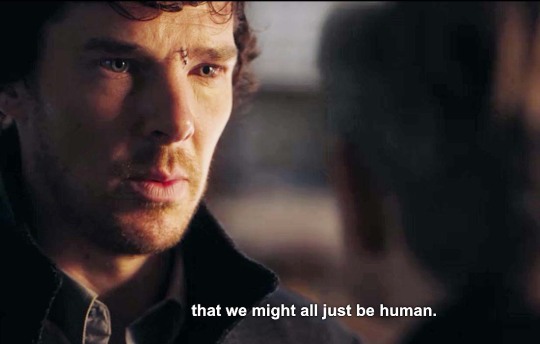
I do hope he’ll wake up again, though - preferably with help of modern medicine rather than superstition - to a more credible and realistic story than both TFP and Dracula. ;)
In TEH, apart from scenes with John Watson traveling alone through the Underground network of London, we have a derailed Underground train carriage near Sumatra road, where no-one would care to look. Like a Lost Special. It’s not carrying a bomb; the whole carriage is the bomb, which is threatening to overthrow the Parliament. Which very much makes me think that Mofftiss still have a metaphoric ‘bomb’ stored for us, a ‘rug-pull’ of sorts. But John and Sherlock (and the world) were not ready in TEH, so they switched it off. The ‘bomb’ never went off in S3 (2014). In TEH John was urging Sherlock to ”use your Mind Palace” to defuse the bomb, and I think he did - for the rest of the show up until TFP. Because in TEH, Instead of the big explosion, we got a truly weird, staged scene with Anderson (who didn’t quite believe Sherlock’s explanation anyway).
And then the plot carried on in its heteronormative tracks with John’s wedding and Mary taking over the narrative. But in TST we learned that Sherlock, as a child, had re-written an old tale about someone encountering Death in ‘Samarra’ into a story where the hero ends up in Sumatra instead, and lives. In TFP the plot derailed completely into an absurd horror story, and we got Moriarty as train driver, going “Choo-choo!” like a train whistle:
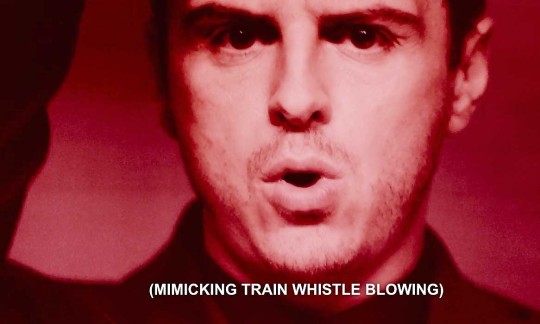
But the only 'explanation’ related to trains that we learn about Moriarty in TFP is rather lame: that Jim’s brother supposedly was a station master (not from canon, though). And then he goes “tick-tock, tick-tock” like a ticking bomb:
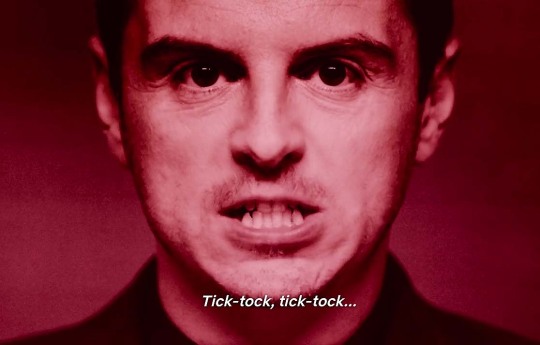
(Also similar to Mycroft’s ‘tick-tock’ countdown until he’ll die from obesity in TAB). But no bomb went off at that point in TFP either (I’m not counting the Patience Grenade here, because that happened before the ‘tick-tock’). So what was all that tick-tocking about? And how long will it keep ticking asdf?
The Sussex Vampire etc.
After reading some interesting metas from @yeah-oh-shit (X, X) and @ebaeschnbliah (X) I feel more and more convinced that legal issues with the ACD Estate might be very relevant for what Mofftiss are doing with BBC Sherlock and BBC Dracula. Three important ACD stories have now entered the public domain on January 1st this year: The Sussex Vampire (SUSS), The Illustrious Client (ILLU, where Holmes and Watson visit a turkish bath ;) ) and The Three Garridebs (3GAR; known for a scene where Holmes shows a glimpse of his true feelings for Watson). in SUSS there’s a quote about Sumatra which I find really interesting in the context described above:
“Matilda Briggs was not the name of a young woman, Watson,” said Holmes in a reminiscent voice. “It was a ship which is associated with the giant rat of Sumatra, a story for which the world is not yet prepared.
As I said in this comment (X), there’s a lot of subtext to draw from this. And I do hope the world is prepared now. ;)
@raggedyblue @ebaeschnbliah @gosherlocked
79 notes
·
View notes
Photo

on Ross R. Olney's Tales of Time and Space on Ross R. Olney's Tales of Time and Space on Ross R. Olney's Tales of Time and Space Home Tales of Time and Space, edited by Ross R. Olney consists of a number of simply plotted little stories by some of science fiction's best. They are simply plotted yet enthralling. Don't know what passes for young adult fiction these days, but these stories fit the bill for me in days gone buy. 10 • Yesterday's Fantasy, Today's Fact-an Introduction • essay by Ross R. Olney
No one has read much science fiction without having been told how imaginative/speculative/science fiction/fantasy foretold most common place advances long before they were made. This may have been the first book in which I read the idea. 15 • All the Time in the World • (1952) • shortstory by Arthur C. Clarke Sir Author C. Clarke is best known for "2001: A Space Odyssey", "Childhood's End", and "Rendevous with Rama".
Any offer that sounds too good probably has a catch, and so it is in this story. Say you're a thief by trade and someone offers a million pounds to hire you to clean out a national museum. They offer to lend you a bracelet that accelerates time around you so that you can be in and out in a flash. or a blink of an eye. You'd be a fool not to, right? A tight little story about the thief's moral qualms. The ending was not surprising. Would have made a good Twilight Zone. It was an episode in the TV series Tales of Tomorrow. It was Clarke's first story adapted to TV. 34 • Puppet Show • (1962) • shortstory by Fredric Brown
Fredric Brown also wrote "Arena", the story the Star Trek (TOS) episode of the same name was/wasn't based on. First contacts can be dicey. Say you're assigned by a vast Galactic Federation to evaluate Earth in general and the United States in particular. What questions would you ask and what assurances would you make? And what sort of tests would you perform? And what is a "master race" anyway? A pointy little story about ethnocentrism. It's one of Brown's last stories and one of several First Contact stories. Brown does a wonderful job of setting up the reader for the ending. 50 • Birds of a Feather is a1958 novelette by Robert Silverberg
Robert Silverberg sold his first stories in 1953 and 1954. He still writes a column for Asimov's Science Fiction. The first story of his I remember reading is Nightwings in The Hugo Winners. Birds are ruthless competitors. They are the surviving dinosaurs, and their survival instincts are hard-wired into their old reptile cortices. How fitting an analogy to describe the protagonist and antagonist in this story. Say you run a special sort of show. Non-humans line up to get in. You have to turn away most. But what if a con artist puts one over you and horns in under false pretenses? Now you've got an employee sharp enough to squeeze you out of a sweet deal. But he can't out-con a con, when you've got the goods on him. This is a fun and imaginative read. The variety of xenophonts reminds me of Poul Anderson's stories. 82 • Clutch of Morpheus is a 1946 a short story by William Campbell Gault [as by Larry Sternig ]
Say you were born with a mutation. Not an obvious-to-the-eye mutation, but you don't sleep, haven't slept, can't sleep. Say you've been poked and prodded and examined by scientists and physicians and the public to the point of taking an assumed name to avoid further publicity. But you're curious-- what's it like? you wonder. What's it like to sleep? So you look up the leading anesthesiologist in the country and discuss it with him over dinner. Meanwhile, there's a comet in the sky, and Earth is situated in its tale, and will be for some time. Long story short, it has a soporific effect on everyone else. You get to figure out the solution to their problem, which happens to be the solution to your own, through an incredible string of co-incidences. The story stretches the ability to suspend disbelief, which wasn't a problem when I first read the story, and which does not seem an insurmountable problem in most readers of science fiction. Mumblety-mumble years of reading this stuff means seldom being surprised by an ending, but I enjoyed it just the same. 105 • The Last Command is a Bolo 1967 short story by Keith Laumer
Dave Drake tells in his preface to Hammer's Slammers that he was heavily influenced by Laumer's Bolo's. The professionalism and dedication to duty that Drake describes in his own unit, the Viet Nam era Blackhorse , is seen also in Laumer's , "Unit LNE of the Dinochrome Brigade!" a Mark XXVIII Bolo and his former commander, Lieutenant Sanders. Unit LNE of the Dinochrome Brigade." Say you awaken buried and crippled, the blasting at a construction site 70 years after your burial has jarred you awake and triggered your Battle Mode Reflex. On escaping your tomb and finding yourself not only crippled but alone, you conclude that your unit has been annihilated by a counter attack. You do not realize 70 years have past and that the city ahead of you is a civilian city and not the enemy's stronghold. Your duty is clear. Whatever the cost, duty demands that you charge the ramparts and inflict as much harm on the enemy as you can before you succumb. Nothing now on planet can stop a BOLO Mark XXVIII. (The artillery and air strikes they lay on you just knock some of the debris off.) Your old commander, Lieutenant Sanders, is 90 years old and still has his old uniform. He sees your return on TV and knows that he will need to talk to you to stop this rampage. Communication from a distance proves not to be efficacious, and Sanders must climb aboard your hull to make contact. The problem with this is you are still incredibly radioactive from the hits taken during the late battle. (You don't know you and the others had been buried under 200 yards of rock because clean-up would have been too costly.) Sanders receives a far greater than lethal dose in making contact, but you recognize him despite time's ravages; you break-off and retire ten miles to the desert. Together you roll into the past of a world that no longer needs nor can appreciate your service. 136 • Fog is a 1951 a short story by William Campbell Gault
This is a somber tale that is hard to grip. Perhaps it would fit in today's idiom in which understanding of the goals and motives of the antagonist isn't important. It isn't important to understand how the protagonist got into this mess. The important thing is the courage and self abnegation of the protagonist. More subtly and appalling is the extremes to which the U.S. is willing to go to win. Russia lies a desolate, radioactive wasteland. So the means used to end the Veneran threat is a logical extension of a successful solution. I thought the story a little cheesy and the emotion rending (or not) ending reminded me of the ending of "A Question of Courage" by J. F. Bone. Say you're an orphan. The only father you've known is the head of the Science Department, your boss, The Old Man. So The Old Man calls you to his office to send you to investigate a killer fog in San Francisco. Fog in San Francisco is not troubling. The dramatic increase in suicides associated with this fog is troubling, and it is accelerating. Unbeknownst to The Old Man is that you are secretly working for the Venereans, the inhabitants of the planet Venus. Of course, the Venereans are behind the fog. After allowing sufficient time for the significance of the escalating suicide rate to sink in, the Venereans issue an ultimatum-- surrender or else. Your job becomes to carry the response to Venus. 161 • The Martian Crown Jewels is a 1958 a short story by Poul Anderson Poul Anderson is best known for his Technic Civilization and Time Patrol stories.
Say you're a Martian private detective who admires Sherlock Holmes. Say the Crown Jewels have been loaned to Earth and stolen during the journey home. The diplomatic situation that would result from knowledge of the loss of the jewels becoming public would be unfortunate. Through application of some physics, clear thinking, and deduction, you solve the mystery and expose the culprits. 189 • Of Missing Persons is a short story by Jack Finney
Say you work at a mediocre little job and live a desperate little life. The meanness of your existence eats away at you a little more each and every day. Each and every day you yearn for something better. At last, the way out, the way home, the way to a better life is there for you to take. If you don't funk at the crucial moment. Jack Finney's best known work is "The Invasion of the Body Snatchers". This poignant tale touches the reader because the protagonist's feelings of quiet desperation in this story written sixty years ago are the feelings many of us have today.
3 notes
·
View notes
Note
Sherlock Holmes for the Listing meme?
favorite thing about them
I have some pretty mixed feelings on Holmes where I never quite got into the character as much as I could or may have liked to, but at the same time, he's been a part of my life for as long as I can remember (I grew up legitimately thinking he was a real person and only discovered otherwise in my early teens, and Conan Doyle may have been the first big-name author I remember reading).
I guess if I had to narrow down something more personal, the idea of Holmes as this really smart, incredibly knowledged person, who nevertheless could be insensitive, awkward, lonely, disinterested in relationships or social occasions, and still be a well-respected hero with strong friendships and a noble purpose, might have been more important for me to read about back then than I gave it credit for at the time.
A lot of people are very attached to the idea that Holmes is autistic or "coded" as autistic, and I have some misgivings towards that idea (mainly because often times it seems to me like "coded" is just a replacement word for stereotype), but in retrospect, it kinda was important for me to read about a character who was a little more like, well, like me basically, than the usual adventure hero. I guess it's kinda why I distinctly remember being sad upon learning that Holmes wasn't a real person, even though by that point I really should have known better.
And to an extent I think that's also part of why Sherlock managed to effectively sustain the kind of popularity he had, that he felt "real" to begin with. That he appealed to audiences worldwide in ways even they didn't quite understand at the time. He was not the most published character worldwide, possibly not even the most popular one in his time, but he was modern and vivid to an extent that's allowed him to outlast the Nick Carters and Sexton Blakes and Nat Pinkertons of his time, and become not just THE touchstone of 19th century detective fiction, but also a popular and modern character today. Holmes appeals a lot to people who can't quite see themselves as an outgoing action hero, but who can use their intelligence and reasoning to improve conditions for others, and I definitely think he owes at least some of his iconic popularity to that thoughtfulness.
least favorite thing about them
Definitely when adaptations have him be rude or belittling or dismissive to Watson, that's easily the fastest way to get me to dislike a Sherlock adaptation, and sadly that's been a trend even in the earliest days of Sherlock adaptations or fanfic (which, back in the day, were basically the same thing). I'm also really not a fan of the more asshole takes on Sherlock that comically exaggerate how rude and insensitive he is, or takes that just make him a crimefighting Sheldon Cooper, and-
Actually I'm just gonna say BBC's Sherlock and call it a day.
favorite line
My dear fellow," said Sherlock Holmes as we sat on either side of the fire in his lodgings at Baker Street, "life is infinitely stranger than anything which the mind of man could invent. We would not dare to conceive the things which are really mere commonplaces of existence. If we could fly out of that window hand in hand, hover over this great city, gently remove the roofs, and peep in at the queer things which are going on, the strange coincidences, the plannings, the cross-purposes, the wonderful chains of events, working through generation, and leading to the most outre results, it would make all fiction with its conventionalities and foreseen conclusions most stale and unprofitable.
brOTP
Well, duh. I'm also fond of the idea of him and Arsene Lupin having a more-friendly sort of rivalry, even if they can't quite be on the same side and I still ultimately prefer that Lupin takes the win (or at least the spiritual victory). And of course I have my pet headcanons about him and The Shadow being acquaintances.
OTP
None in particular. I like the popular headcanon that Holmes is asexual, and this doesn't exactly mean he can't have an amorous or sexual relationship with anyone, but generally I don't think of Holmes in those terms.
nOTP
Irene Adler. I think it kinda goes without saying too.
random headcanon
I'd like to play around with the idea of Sherlock often trying to find healthier outlets for his boredom and attention span, that aren't crime-solving or cocaine (largely thanks to Watson bugging him), that he spends an adventure trying to get the hang of while doing his thing, and may or may not turn out to be revelant
Like he's discussing crime scene details with Lestrade while balancing a broom on his foot El Chavo-style, and he remarks that, yes, of course this is research, the robber may have disguised himself as a janitor in order to sneak past police headquarters, and without fingerprints, he needs to try and measure the size and weight of the man by gauging the available brooms at the police station they could have used.
Lestrade doesn't question anything Sherlock does anymore, and Watson is trying very hard to keep a straight face because he knows it's not true, Holmes has been at this for over a week now at home, but it's been a slow week and he'll encourage anything if it keeps Holmes off the cocaine (can't make promises on nicotine though, but, baby steps).
unpopular opinion
I guess the closest I'd have to one would be that I actually prefer Holmes as more of a side character rather than an active protagonist and that I don't think the premise of "Sherlock Holmes in the 22nd Century" is the most idiotic thing ever and I am very willing to give the show a chance when I watch it.
I think maybe my real unpopular opinion as a Sherlock fan is that I don't think Arthur Conan Doyle was unjustified in his hatred of Sherlock's popularity, considering that he was dealing with an aggressive fandom long before people had an idea on how to deal with that sort of thing, and he could not have possibly predicted the sheer influence his character was going to have on fiction as a whole.
Also, he was right about some of the things he believed in. Yes, that includes the fairies. No, it doesn't make him any less gullible for having fallen for that trick.
song i associate with them
None in particular so instead I'm going to present the theme from The Great Mouse Detective, which I'm sure goes without saying is the best adaptation of Sherlock Holmes alongside those starred by Jeremy Brett, and DEFINITELY has the best version of Moriarty by a country mile.
favorite picture of them
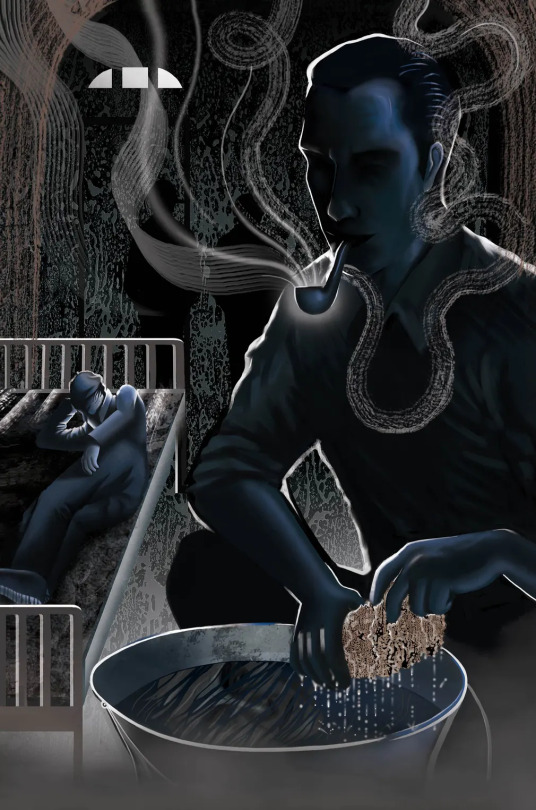
For the moment I'm going to say this illustration by Jess Miriam. I love it's usage of shadow, it's background, the light coming off the pipe and the smoke encircling Holmes, and I love the scene it depicts from "The Man With The Twisted Lip", where Holmes at once seems to perform an act of utmost kindness but is, in reality, solving the mystery through a most unorthodox and yet ingenious method, all with the smallest of gestures. Definitely speaks a lot to what I most like about Sherlock Holmes
19 notes
·
View notes
Text
Licensing of the Monsters: How Pokémon Ignited An Anime Arms Race
"Hey, what do ya' got there? A rabbit?" Batman asks his mentor, staring at a video of Pikachu on a massive underground computer screen.
"It's a Pokémon," Bruce Wayne replies.
Five seconds later, Batman is shocked so hard by the tiny yellow creature that he ends up flying headfirst through another computer monitor (Using a clip from the "Blackout" episode of Batman Beyond, an episode that would've aired for the first time just days earlier.) It doesn't make much physical sense, but this bizarre 1999 crossover promo did establish two things: 1) Pokémon was coming to Kids' WB, and 2) Pokémon was important. So important that Batman actually took time away from obsessing over crime and vengeance to care about it.
Echoing a 1997 promo where the comedic Bugs Bunny let us in on the "secret" that the serious, dark Batman was coming to Kids' WB, it almost seems like a passing of the torch. Kids' WB, up until then, was a programming service chock full of classic Warner Bros. cartoon properties like Bugs, Daffy, Pinky, Brain, and various members of the Justice League — all animated Americana.
Pokémon wasn't a huge risk as the 4Kids Entertainment dub of the show had done well in broadcast syndication, they had plenty of episodes to work with (sometimes airing three in a row), and it was based on a game series that was already a worldwide smash hit.
But the show was ... different.
And it would end up changing cartoons as we knew them.
Part 1: Batman Jumps Ship
It's hard to think of a better scenario when it comes to appealing to kids than the one Fox Kids had with Batman: The Animated Series. Debuting in September 1992 and airing on weekdays just after school let out, it received immediate acclaim due to its moody, beautiful animation and storytelling that didn't talk down to anyone. Little kids could get into Batman throwing crooks around and adults could marvel at plots like the one where a former child actress with a medical condition that keeps her from aging takes her former co-stars hostage and ends up holding a gun, hallucinating, and sobbing into Batman's arms.
It did so well that Fox tried to air it on prime-time Sundays and though this was short-lived — turns out, Batman was no match for Ed Bradley on CBS's 60 Minutes — it solidified the show as "cool." This was a show that could hang with the big boys. You couldn't say the same of something like Spider-Man and His Amazing Friends.
And then, in 1997, it was gone. A five-year contract ran out and Batman leapt completely to Kids' WB, where a continuation of the show (the often even grimmer The New Batman Adventures) aired later that year. There, it joined Superman: The Animated Series in a one-two punch of programming called The New Batman/Superman Adventures. When it came to Kids' WB, competitors not only had to deal with the Merry Melodies crowd, they now had to face the World's Finest Heroes.
This, along with a departing Animaniacs, left Fox Kids with a gap in flagship programming. Sure it had various incarnations of the Power Rangers (which was still holding strong) and Spider-Man, but if you look back on 1998 programming, little of it would survive the year. Silver Surfer? Gone by May. Teenage Mutant Ninja Turtles: The Next Mutation? Out by December. Casper? Dead in October. By May of 1999, Warner Media would announce record ratings thanks to Pokémon, while its competitors, including the Disney-led ABC, Fox, and even Nickelodeon, would suffer losses in the Saturday morning area. Pokemon would have the best ever series premiere numbers for Kids' WB at the time.
A chunk of that has to do with 4Kids Entertainment's (or to be more specific, 4Kids Productions) handling of the show. Again, Pokémon was a proven concept. If you love monsters, adventure, and collecting things, you'll probably find something to enjoy in the franchise. But the dub was particularly strong. For years, dubbing was seen as an inherently laughable thing in America, full of exasperated voice actors trying desperately to convince you that they weren't portraying three different characters, and lips that didn't match the dialogue. Entire Japanese series were reduced to laughing stocks in the U.S. because why focus on the lovingly created miniatures and top-notch tokusatsu action in Godzilla if one of the actors sounds weird?
But while Pokémon wasn't the first great dub, it was a remarkably underrated one. Veronica Taylor's work as Ash Ketchum was relatable, funny, and consistent. And Racheal Lillis, Eric Stuart, and Maddie Blaustein's turns as Team Rocket's Jessie, James, and Meowth gave us villains that could've easily been the most repetitive parts of the show — you can only try to capture Pikachu so many times before you should logically find a second hobby — but instead were one of the most entertaining aspects.
Aside from some easily meme-able bits — Brock's drying pan and jelly donuts, for example — Pokemon became a seamless addition to the Kids' WB lineup and would end up giving many fans a lifelong love of anime. And it was great for 4Kids, too, as in 2000, they would be number one on Fortune's 100 Fastest-Growing Companies.
Fox Kids wanted an answer to this. And it would soon find one.
Well, two.
Part 2: Monsters Rule
Saban Entertainment was no stranger to Fox Kids. They'd been the one to adapt Toei's Super Sentai into The Mighty Morphin' Power Rangers for American and international audiences, creating an unexpected sensation that combined monsters and martial arts. And in 1999, they nabbed Digimon Adventure, a series about kids that gain "digital" monster partners when transported to a "digital world," which had begun airing earlier that year in Japan. Based on a fighting virtual pet that had already been around for a few years, Digimon was a natural fit for an anime series and also a natural fit for a climate that was desperately trying to find the next Pokémon.
Renamed Digimon: Digital Monsters, it premiered in August of 1999. Of course, accusations followed that it was a Pokémon rip-off, considering that they were both about befriending terrifying laser critters, but they offered fairly different things. While Pokémon was more episodic, Digimon gave viewers a more Dragon Ball Z-esque experience (they were both Toei productions, too) with the titular monsters evolving and gaining "power-ups" due to fighting increasingly powerful villains.
Almost two months later, Monster Rancher would join the Fox Kids lineup, airing on Saturdays at 8:30 AM after Sherlock Holmes in the 22nd Century (a Fox Kids lost relic if there ever was one). Together, Monster Rancher and Digimon would cover the programming block with monster action, sometimes airing twice each. Meanwhile, Pokémon would do the same for Kids' WB, and if you look at their Saturday morning schedules from 1999 and 2000, it appears they just shoved Pikachu in whenever possible.
Looking back on Monster Rancher is always odd, though, because it's so specifically trapped in the time period where it originated. The video games used metadata from readable discs to create new monsters for the player, meaning that as soon as people gained the ability to download or stream media online without having to travel to their local Circuit City, the game would look absolutely archaic in comparison to its peers.
Monster Rancher is a very fun show based on some very fun games, and the dynamic array of personalities and their particular squabbles in the core group actually reminds me a lot of One Piece. But even the show itself deals with reviving monsters on giant stone discs — a prehistoric-looking adaptation of a video game gimmick that would, a decade later, appear prehistoric itself.
The Monster War was waged across 2000 and 2001. And though it appears Pokémon was the clear winner — in 2020, it's the most popular franchise with the widest reach, even if Digimon does produce some stellar shows and movies — the ratings tell a different story. In the May sweeps of 2000, Pokémon (and Kids' WB) took the prize among kids 6-11, but in the end, Fox Kids would score a victory of a 3.1 rating to Kids' WB's 3.0 (the first sweeps win since 1997, the year that Batman left.)
Early the following year, Fox Kids would score again, narrowly beating Pokémon on Saturday morning in the same timeslot and even coming ahead of properties like X-Men. And what would propel this February 10th victory? The first appearance of BlackWarGreymon, the Shadow the Hedgehog to WarGreymon's Sonic.
However, Pokémon would still help create ratings records for Kids' WB, even though late 2000/early 2001 saw a slide that would often cede dominance to Nickelodeon. Jed Patrick, who was president of The WB at the time said: "I didn't think Pokémon would fall off as much as it did ... every fire cools down a little, but that doesn't mean it doesn't stay hot."
Even though, in retrospect, claims that "Pokemania" had died seem a little ridiculous — the latest games, Pokémon Sword and Shield, just became the highest-selling entries in seventeen years — big changes were ahead.
Part 3: It's Time To Duel ... Or Not
In early 2001, Joel Andryc, executive VP of kids' programming and development for Fox Kids, was looking for a "Digimon companion series to create an hour-long anime block." He felt they were too reliant on Digimon, as they were airing it three times in a single morning. Likely not coincidentally, that summer Fox Kids Fridays were dubbed "anime invasion," advertising Flint The Time Detective, Dinozaurs, Escaflowne, and Digimon. In one commercial, a single quote zips across the bottom of the screen: "Anime Rocks!" Nicole, TX
That it does, Nicole from Texas.
Meanwhile, 4Kids Entertainment would provide Kids' WB with another monster show: Yu-Gi-Oh! Known as Yu-Gi-Oh! Duel Monsters in Japan, this anime adaptation absconded from retelling the stories found in the early chapters of the manga — which were mostly devoted to Yugi running into jerks, only to have his Egyptian spirit "alter ego" deal karmic retribution on them — and instead focused on the parts that involved the cool monster fights. So basically the parts that were the most like Pokémon.
But how would this be received? In 2000, Canadian studio Nelvana had licensed the anime Cardcaptor Sakura and turned it simply into Cardcaptors — an extremely edited version that removed many important relationships and plotlines and tried to streamline the show into a pseudo-Pokémon story. It's gone down in history as one of the most questionable dubs ever, and never really made a splash on Kids' WB. So they wouldn't want a repeat of that.
But would kids be into a card game? The cards did summon monsters, but in Pokémon and Digimon, the monsters are just there, moving around and not relegated to a glorified checkers board arena. It turned out, yes, kids would be REALLY into that. Yu-Gi-Oh! debuted at number one in multiple demographics in September 2001, and would remain a steady part of its lineup for years to come.
And how did Fox Kids respond? Did the "anime invasion" work out? Well, sort of, but not in the way they were hoping.
In 2001, due to diminishing ratings and audiences, Fox Kids Worldwide (along with Fox Family Worldwide) were sold to The Walt Disney Company. By November 7th, they'd canceled their weekly afternoon blocks, and the next year, they'd end up selling their entire Saturday morning block to a company that had provided their rivals with the very same TV shows that aided in sinking them: 4Kids Entertainment. The final show to premiere on the original Fox Kids was Galidor: Defenders of the Outer Dimension, a live action series that stood beside Alienators: Evolution Continues (a cartoon sequel to the mediocre 2001 comedy Evolution) and the underrated Medabots as the block's last gasp.
Renamed FoxBox in late 2002 (and later 4KidsTV in 2005), the 4Kids run schedule would, over the years, include anime like Kirby! Right Back At Ya!, Ultimate Muscle, Fighting Foodons, Sonic X, Shaman King, and eventually, in 2004, the infamous One Piece dub. The first Saturday of the new FoxBox lineup would also outdo the previous Saturday's Fox Kids lineup. Disney would acquire the rights to Digimon and it showed up on ABC Family in late 2001 (eighteen years later, a reboot of the original series would air, which can be watched on Crunchyroll).
Eventually, in 2007, the Monster War would come full circle. 4Kids Entertainment announced they would be taking over the Kids' WB Saturday morning block entirely, renaming it the "CW4KIDS," as The CW had been born after UPN and The WB had ceased to be. Pokémon was long gone by this point, having been dropped by Kids' WB in 2006, and was now overseen by The Pokémon Company International on Cartoon Network.
"We wish Pokémon USA much success going forward," the CEO of 4Kids Entertainment said. Later sued over "illegal agreements" regarding the Yu-Gi-Oh! franchise, the company would eventually file for bankruptcy in 2016. Pokémon Journeys, the latest installment in the franchise, launches on Netflix on June 12th.

Daniel Dockery is a Senior Staff Writer for Crunchyroll. Follow him on Twitter!
Do you love writing? Do you love anime? If you have an idea for a features story, pitch it to Crunchyroll Features!
4 notes
·
View notes
Text
2019: My year in K-Dramas - Part 1
I’ve been getting into kdramas for a few years now, but I usually only watch one or two at a time. This year I watched a lot more (and that’s not counting The Bride of Habaek, which I dropped when it became clear it was a very bad adaptation of the manhwa; Crash Landing on You, which started airing a couple of weeks ago; nor Tomorrow With You, which I haven’t yet finished, what’s probably not a good sign), a few being rewatchs of old shows that I like. Seeing as it’s unlikely I’ll ever write up full reviews for each like I did for Goblin (you can read my review here), I decided to compile this list to tell you what I liked and didn’t like about each, what I feel worked and what didn’t. I’m also including a qualitative metric (Rewatch meter) that tries to gauge how likely it is that I’ll find myself returning to the show in the future (Low, Medium, High). Naturally, your very own meter may differ from mine.
For future reference, these are the shows I watched in 2019 and that I aim to cover in this series of posts:
While You Were Sleeping (2017)
W (2016)
My Strange Hero (2018)
The Secret Life of my Secretary (2019)
Angel’s Last Mission: Love (2019)
Strong Woman Do Bong-Soon (2017)
When the Camellia Blooms (2019)
Bring it on, Ghost (2016)
One More Time (2016)
My Girlfriend is a Gumiho (2010)
My Love From The Star (2014)
Descendants of the Sun (2016)
Regardless of which show did better, overall, I find myself drifting more and more towards Korean dramas than your run-of-the-mill American TV show, save for a few bright exceptions, such as The Expanse. Heck, they’re better than most Hollywood movies nowadays.
Since I’ll probably end up writing a lot, I’ve decided to split this review list into two parts. Let’s start with the last kdrama I watched and work my way backwards... if I can remember, that is.
WARNING! There will be spoilers so read at your own risk.
While You Were Sleeping (2017)
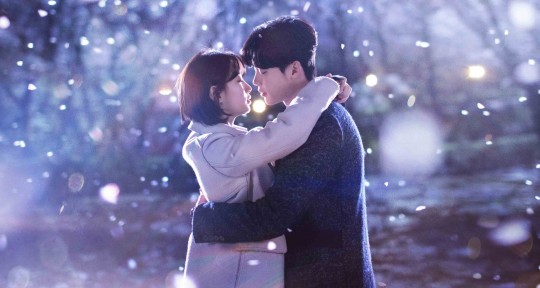
Bae Suzy as Nam Hong-Joo, and Lee Jong-Suk as Jung Jae-Chan.
Release Date: September 27 - November 16, 2017
Episodes: 16
Available on: Viki
Summary: Nam Hong-Joo is a young journalist who has had bad dreams about the future since she was a kid, but she has never been able to change the outcome. Jung Jae-Chan is a rookie prosecutor who moves in across the street with his younger brother. When Jae-Chan has a prophetic dream of his own about Hong-Joo being involved in a car accident, and the tragic events that follow, he makes an impulsive decision to interfere, changing Hong-Joo’s fate and that of police officer Han Woo-Tak in the process. When the three of them start having dreams of one another, they realize their lives are somehow entwined. Together, they decide to use their knowledge of the future for good, but changing someone’s fate is never straightforward, and the consequences for doing so may be more than they can handle.
What I liked:
The concept and writing. This is the second show I’ve watched, in chronological order, with Lee Jong-Suk as a lead where I’m really attracted by the concept. Imagine if you could take the precogs from Minority Report and give them (relatively) normal lives inside a kdrama. This is the result. Even better, having Hong-Joo and Woo-Tak have different and often contradicting dreams about the future makes for an interesting twist, as we see prosecutor Jae-Chan struggling to navigate these prophetic waters in search for the best outcome. Curiously, the show makes a point early on about how Jae-Chan’s the variable upon which their dreams diverge, but nothing really comes off it. Naturally, the concept of multiple diverging futures gives the show’s cinematography a chance to play around a bit, often comparing the same event in alternative timelines, or in the same timeline but at different moments in time. It may sound complicated, but it’s pretty to grasp once you start watching. Furthermore, the writing’s pretty tight all around, what’s not a mean feat when you’re juggling multiple realities, with some very emotional payoffs as the show draws to a close. Perhaps its weakest point is exactly how this prophetic dream ability is transferred from person to person (a theory is put forward which doesn’t entirely convince me), and the unnerving (and unexplored, fortunately) implications should someone less honourable were to have these dreams.
youtube
When The Nightmares Started. This is the best track in the entire show and if it’s not the main theme, it damn well should be. It has moments of calm, a hint of romance and hope, and that awesome shit-is-about-to-get-real cue starting at 1:38 that never fails to make a scene tons more epic. Your dish-washing experience will be 100% more epic playing to this track, guaranteed!
The Justice League (and friends). This show could’ve probably gotten on my bad side real fast if it had created a villain with the same superpower as the heroes (depends on the execution to be honest) and, indeed, I thought that was the direction it would inevitably take, revealing at some point that (evil) defense attorney Lee Yoo-Beom also had prophetic dreams and had been using them for his benefit all along, muahahaha! Instead, the show gave us three average people, connected by their prophetic dreams, who decide to team up and use these visions for good. It’s not always easy to change the future, as it has many ramifications, and therein lies the show’s narrative potential that it manages to exploit, perchance to its fullest. Even in the very last episode there’s a hint that maybe the people they’ve helped throughout also have dreams of their own that they use to help others, sort of a pay-it-forward chain. It may be somewhat unrealistic, but it’s a good note to end the show on all the same.
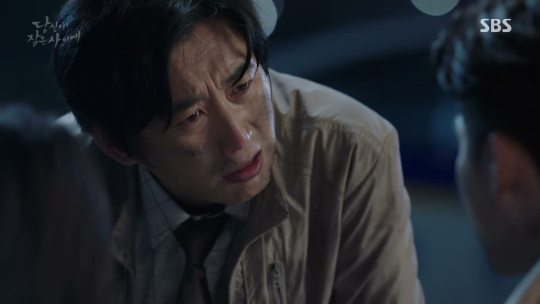
Kim Won-Hae as Choi Dam-Dong. Easily the best supporting character in the show, delivering a stronger and more rewarding performance than in Strong Woman Do Bong Soon, where he played two characters (he was pretty funny as the over-the-top head of development planning at Ainsoft), veering towards the more serious/dramatic/emotional end of the spectrum, although with some comedic elements mixed in. I was surprised by how strong his arc turned out to be, and my respect for his character went up by several points when his arc comes to a close and we finally put all the pieces of the puzzle together. This man can do both comedy and drama, so kudos to him.
What I didn’t like:
Mr. Perfect (also known as Han Woo-Tak). It’s not that I dislike him, far from it. Woo-Tak is so good, smart, selfless, and even good-looking, that he kinda undermines the OTP just by existing. He’s really setting unreasonable standards for any man to compete against. I mean, he even plays Cupid for the OTP... while also being in love with Hong-Joo! On the plus side, the show doesn’t really try to push the romantic triangle angle, what usually has mixed results. The one thing I did mind is how the show hints at him potentially being a better attorney/prosecutor than the main lead since that’s kind of Jae-Chan’s thing. I mean, if you take everything that makes the lead special and give it to someone else, is he still the lead?
OTP: A stronger performance from Lee Jong-Suk than in W, complemented by a relatively (and I cannot stress this word enough) weaker performance by Suzy in some aspects (I think Han Hyo-Joon’s Oh Yeon-Joo in W does sad love better than Suzy as Nam Hong-Joo, but it’s a matter of preference), results in a better pairing with more chemistry. Suzy is great and lovable at being the quirky Nam Hong-Joo (watch the video below if you’re unconvinced) and Jung Jae-Chan is a lot more vulnerable than Kang Chul ever was, but I was left wondering at times whether this couple would’ve gotten as much traction were it not for the strength of their past connection (especially with Mr. Perfect around).
youtube
Verdict: What can I say? While You Were Sleeping was an excellent show from beginning to end. If I were to nitpick, I would’ve chosen the end wedding to be the one between Jae-Chan and Hong-Joo since that honestly makes more sense, and maybe I would’ve made Woo-Tak more of a bro than a somewhat-but-not-entirely romantic rival (think Seo Dae-Young in Descendants of the Sun).
Rewatch meter: High
W (2016)

Han Hyo-Joo as Oh Yeon-Joo, and Lee Jong-Suk as Kang Chul.
Release Date: July 20 - September 14, 2016
Episodes: 16
Available on: Viki
Summary: W is a bestselling webtoon by cartoonist Oh Seong-Moo that follows the adventures of Kang Chul, an Olympic gold medalist framed for the murder of his family, who’s eventually acquitted and becomes a multi-millionaire who fights crime (think Bruce Wayne but without the costume). Tired of his creation, Seong-Moo decides it’s time to kill the protagonist and put an end to the series (much like Sir Arthur Conan Doyle decided to kill Sherlock Holmes at the Reichenbach Falls). Oh Yeon-Joo is Seong-Moo’s daughter, a doctor and passionate fan of W, who is one day mysteriously transported to the world of the manhwa, where she sees a dying Kang Chul and saves his life. Intrigued by his mysterious saviour, Kang Chul decides to learn out more about her and Yeon-Joo finds herself constantly returning to the world of the manhwa. Will Kang Chul learn the truth about her and his world? And if so, what will be the consequences?
What I liked:
The concept. It’s not an altogether original concept, and I’m reminded of Schwarzenegger’s Last Action Hero (Who Framed Roger Rabbit before that), but it’s also not one that you see often on the screen, big or small. The idea of being able to enter the world you’re reading about and meeting the characters you know and love is extremely appealing and there is some fangirling from our protagonist initially. Naturally, since she knows everything about this world, it’s good fun to see her inadvertedly reveal something that she couldn’t possibly know and deal with the reactions/consequences. What’s better is how Yeon-Joo tries to figure out the laws of the manhwa world by applying the real-world concepts of cliffhangers and dramatic revelations, often to hilarious effect. Seeing how the manhwa continues to write itself to reflect events in W’s world, and the reactions by readers (and by Yeon-Joo) in the real world is really entertaining, especially those from the more passionate W fans.
The transition between animation and live-action. I love the blend between animation and live action, as in the example below. There are more subtle transitions, like when a character’s hand oscillates between the real world and the cartoon world. Perhaps it’s a very simple filter but it looks good. Also, what little we see of the manhwa is very well drawn.
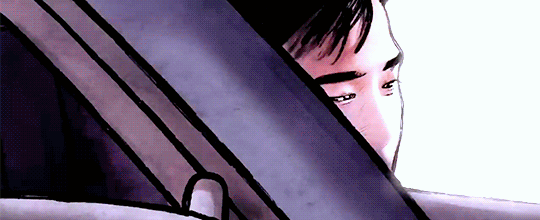
Han Hyo-Joo as Oh Yeon-Joo. Despite the fact that Yeon-Joo’s character becomes less proactive in the second half of the series (as I will discuss below), she was the one who really carried the show for me, certainly on the emotional side of the spectrum, where Kang Chul felt a little flat throughout (to be fair, he’s more the analytical type and he’s a manhwa character). She was also able to convey humour quite well, especially in the earlier, funnier, episodes.
The execution (of the first half). The first episode doesn’t waste a second setting up the story and there is never a dull moment. Watching Yeon-Joo read the latest episode of the manhwa and witness her reaction as she sees herself in the comic was gripping and I was eager to see what the next episode would bring. The show was also fairly consistent with the rules of travelling back and forth and what one could and couldn’t do in the cartoon world. We were witnessing an epic struggle between the cartoonist who wanted to kill his creation with his stylus and the daughter who wanted to protect him so much that she had willed herself into his world (if that’s not a good setup for a love story, I don’t know what is). And all the while, Kang Chul was putting the pieces of the puzzle together in his universal and unrelenting search for truth. Every episode brought something new to the table and, much like the manhwa, ended with some revelation or cliffhanger that kept you on the edge of your seat asking for more. Unfortunately, I think that was also its downfall.
What I didn’t like:
The execution (of the second half) and the overall pacing. I think the (relative) downfall of this series was trying to do too much too early. It worked for the first half because the show had a lot of material it could burn through and, in a way, it was refreshing that it was willing to do so. Sadly, my thoughts eventually turned from, “What’s going to happen next?” to “What can even happen next?” The story was moving so fast that I began to wonder where exactly it was going, and that’s when some of the flaws started to seep through. Episode 9 focused on the aftermath of Yeon-Joo resetting events, thus making Kang Chul forget all about her. While I certainly felt for her when she met her amnesiac husband, this was largely thanks to Han Hyo-Joo’s performance (and good track selection), for Kang Chul had been her husband in name only. Had we previously seen more episodes of their life together, this scene would’ve been a lot more impactful, and her desperate crying outside the operating room more heartfelt. Then, the plot thickens as we move into the (overly) dramatic second half of the show, with the introduction of a villain who knows about the real world and starts manipulating events in the manhwa for his benefit... by possessing cartoonist Oh Seong-Moo! What? This was never established as even remotely possible! (not to mention it doesn’t make sense) As you can imagine, this is whereabouts the rules of this universe start to break down and anything goes. Furthermore, when this villain is defeated in Episode 13, the show suddenly remembered it already had an antagonist perfectly cast for the part and finally decided to put him to use, although too little too late for my taste. As if that weren’t enough, a character is killed because drama, since any other explanation would make no fucking sense. This death is entirely nonsensical and I was beginning to conclude the show should have ended a lot sooner.
The amount of flashbacks/dreams/recaps/plans. I don’t mind a good recap or a flashback every now and then, but there came a point where the show started abusing this narrative device a little too much. The show spent a lot of time either: going over things we already know; featuring lengthy dream sequences that are very transparent and serve no purpose (although, incidentally, would make for a better ending); or laying out how events are supposed to go only for them to go in a completely different direction. While they are sometimes necessary, most of the time they were just padding that actually detracted from the story.
How secondary the supporting characters in the manhwa truly are. I know Kang Chul is supposed to be the protagonist but his bodyguard and secretary aren’t given a whole lot to work with throughout the show. I wish they had been active participants in learning the truth of their world rather than passive bystanders.
How Yeon-Joo becomes less proactive in the second half. Maybe it’s just a feeling, but I think our female protagonist became more reactive and less proactive in the second half, with Kang Chul being the one who mostly directed the course of events. It didn’t help that she kept fainting every now and then, what meant she had to spend some time in bed, what was a shame since she was the more interesting character. To be honest, I think the whole father arc should’ve been over and done with in the first half, with Yeon-Joo stepping up to be the new cartoonist.
OTP: Undercooked, but Han Hyo-Joo manages to almost convince me.
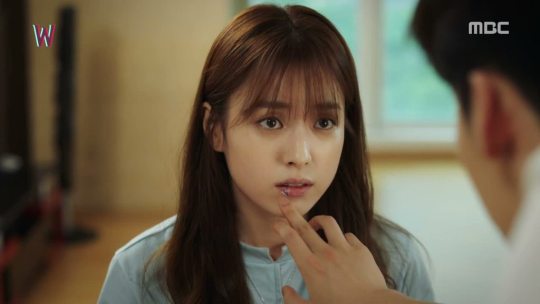
Verdict: It’s hard not to say W is one of the most refreshing shows I’ve seen in a while, even despite its more prominent flaws in the second half. I don’t like how powerful the drawing tablet became, especially after it was established that the manhwa could, at times, overrule the will of the real world, as clearly depicted when Kang Chul refuses to commit suicide. I’d rather the manhwa characters had resolved things on their own, aided by Yeon-Joo, without having to resort to some ultra-powerful plot device. Furthermore, I think the show should’ve taken things a bit more slowly rather than try to surprise us every episode, and use that time to build the relationship between Yeon-Joo and Kang Chul. Another thing I feel the show didn’t exploit to its fullest was the fact that Yeon-Joo knows just about everything that’s transpired in W’s world, what maybe could’ve aided Kang Chul in his investigation (sadly, this is undermined by the fact that the murderer really has no identity, what I find odd). Last but not least, Kang Chul never remembering his “past life” was a missed opportunity.
Rewatch meter: Medium
My Strange Hero (2018)
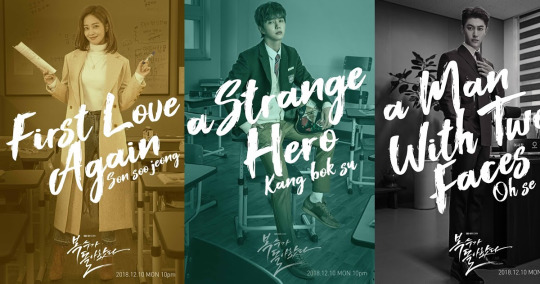
From left to right: Jo Bo-Ah as Son Soo-Jung; Yoo Seung-Ho as Kang Bok-Soo; and Kwak Dong-Yeon as Oh Se-Ho.
Release Date: December 10, 2018 - February 4, 2019
Episodes: 32
Available on: Viki
Summary: When Kang Bok-Soo was a high school student, he was falsely accused of committing acts of violence and ended up expelled from school. Those who brought the accusations against him were his first love, Son Soo-Jung, and a fellow student, Oh Se-Ho. Nine years later, Bok-Soo saves Soo-Jung’s life and suddenly finds himself a mediatic sensation. In order to improve the school’s somewhat tarnished image, he’s invited back to finish his studies. Bok-Soo hesitates, but when he learns Soo-Jung is a teacher there and Se-Ho is the new director, a latent desire to get revenge surfaces. Will Bok-Soo finally get his revenge on the people who wronged him nine years ago? Or will he spend most of his time doing anything but? The latter.
What I liked:
Teacher Park. He’s the kind of teacher everyone would like to have in high school and an example of moral rectitude that Soo-Jung tries to follow. You can tell he really cares for all the students and always tries to be fair and just, no matter the personal cost.
Soo-Jung’s arc. Probably the character who experiences the most growth throughout the show, in no small part thanks to her starting point. She’s the only teacher who stands up for her students, is willing to expose the corruption in the school, and goes so far as to quit her job because she feels she didn’t earn her spot fair and square (despite Oh Se-Ho telling her she was hired because of her qualifications). It is worth noting that when Mr Park gives the other teachers the chance to own up and resign honourably nobody does.
What I didn’t like:
The series meanders a lot early on. Initially, I watched till Episode 14 and dropped it because nothing was really going on. Bok-Soo says he wants to get revenge but his heart really isn’t into it. He certainly doesn’t have a plan like, say, Edmond Dantes in The Count of Monte Cristo, or Emily Thorne in Revenge. In fact, for those first 14 episodes, it only seemed he went there to suffer some more at the hands of the same people who wronged him all those years ago. What leads me to...
Son Soo-Jung isn’t a very likable protagonist initially. I don’t know if this is done on purpose to get us to side with Bok-Soo, but it doesn’t seem like a very smart strategy to have us dislike the lead’s main love interest for almost half the length of the series. I mean, that’s what the antagonist is for. It seems like at every opportunity she twists the knife on Bok-Soo’s back a little more, so much so that a hurt Bok-Soo outright demands, “Why don’t you just ask me what happened instead of constantly making assumptions?” (I’m paraphrasing) Her response, basically telling him to fuck off, didn’t win her any points in my book. That’s about when the writers probably realized their mistake and started filling us in on how Soo-Jung’s life was also miserable after Bok-Soo was expelled so please don’t hate her. They also pull a 180 when she stands up for Bok-Soo during a disciplinary hearing, what I thought was quite out of character for her at the time. The two seem to patch up their relationship awfully fast, what struck me as odd as they didn’t seem to have much chemistry. Having said that, Soo-Jung’s character certainly grows after Episode 14 and has a very satisfying arc, ultimately being the only teacher worth a damn in this school, other than Mr Park.
“Is Kang Bok-Soo’s revenge finally starting?” After I initially dropped this show at the Episode 14 mark, a video popped up in my YT feed with that title (only they used the actor’s name instead of the character’s). It was a scene where Bok-Soo went about exposing the many deeds of corruption within the school. Great, I thought, shit is finally hitting the fan... in Episode 26. I resumed watching from that mark until the end. The series had finally managed to get me invested, almost as it was over, and I decided to watch the episodes I’d missed.
OTP: There are some cute moments but I still didn’t feel the chemistry (what, ultimately, is my entirely subjective take).
Verdict: I don’t feel this is a true romance drama like others on this list, if ever it tried to be, what’s decidedly strange because there are many episodes dedicated to exploring the relationship between Bok-Soo and Soo-Jung with little else going on. Instead, I see it as more of a critique on the Korean education system and the immense pressures students are subjected to in order to meet unreasonable standards, with some romance elements sprinkled on it so that it’s not too depressing. That’s my take on it anyway. As such, it has some enjoyable aspects to it, like seeing Bok-Soo share nuggets of wisdom every now and then, or the students standing up for Bok-Soo and their school, or the revenge/investigation finally kicking into high gear. It’s just unfortunate it took so long to get there and didn’t really encourage me to do so.
Rewatch meter: Low
The Secret Life of my Secretary (2019)

From left to right: Koo Ja-Sung as Ki Dae-Joo; Kim Young-Kwang as Do Min-Ik; Jin Ki-Joo as Jung Gal-Hee; and Kim Jae-Kyung as Veronica Park/Park Ok-Sun.
Release Date: May 6 - June 25, 2019
Episodes: 32
Available on: Viki
Summary: The story follows Do Min-Ik, a prominent director at T&T Mobile Media, and his secretary, Jung Gal-Hee, as together they deal with the onset of an illness that prevents Do Min-Ik from seeing faces, the result of a possible attempt on Min-Ik’s life by some unknown party. On the corporate drama side, this undermines his shot to succeed his (jerk of an) uncle as Chairman of the company, and we see Min-Ik and Gal-Hee struggling to hide the truth of his illness and overcome the many obstacles set on their way to chairmanship. On the romance side, his inability to recognize faces causes him to mistake his secretary for Veronica Park, a rich heiress and leading figure in the film industry, whom he eventually falls in love with... what is kind of a problem since the real Veronica Park develops a crush on Min-Ik’s best friend, Ki Dae-Joo (also a director at T&T), while Gal-Hee falls in love with her boss. And, just in case we didn’t have enough corporate drama, we learn early on that someone may be embezzling from T&T and all the signs point to Dae-Joo. How will this all turn out?
What I liked:
Do Min-Ik and Jung Gal-Hee working together. Min-Ik is one sharp boss, and the moment he’s unable to recognize faces, he starts devising other strategies to recognize people, such as identifying them by their height. Gal-Hee pitches in with the different directors’ hairstyles, and eventually Min-Ik is even able to recognize them by their specific tics. Another example is the first stockholders’ meeting where they team up to prevent Min-Ik’s dismissal. Everything goes so smoothly that it prompts Veronica Park to ask Gal-Hee, and I’m paraphrasing here, “Did you write the script to this play?”
What I didn’t like:
The deceit lasting so long. Min-Ik doesn’t start as the best of bosses, we see that in the first episode, but that very same episode opens the door for him caring for Gal-Hee more than he’s willing to let on. The show does a good enough job of explaining his rather rude behaviour towards his secretaries and why he always fires them within a year, what makes the deceit all the more hurtful. However, the problem I have with Min-Ik not realizing Gal-Hee was pretending to be Veronica Park, is that this happens for 24 episodes! That means we only have 8 episodes left for him to feel betrayed about the whole thing yet also recover in time to start dating Gal-Hee. I don’t feel this was enough time to successfully explore their relationship.
How weak/bland every other story is. The attempt on Min-Ik’s life and the police’s investigation of it is handled abysmally, with the detectives only appearing from time to time to create what some writer thinks is drama. They’re so useless that the perpetrator actually has to turn himself in! I thought Dae-Joo was a bland character throughout, so I had zero interest in his relationship with Veronica Park. The same goes for Gal-Hee’s family. Even Min-Ik’s mother somehow pulls a 180 out of the blue. The only other plot thread that caught my eye was the possible embezzlement and that was wrapped up horribly, what leads me to...
No one facing the consequences of their actions. No matter how much the writers want to frame this secret organisation within T&T as Robin-Hood-like, the fact remains that they were stealing. Not only that, but they can be directly tied to the assault and attempted murder of Do Min-Ik, among other crimes. Sure, they’re all fired at some point, but they all get hired back thanks to Min-Ik. Nobody faces any jail time except for the guy directly responsible for Min-Ik’s accident who actually apologizes to him and turns himself in. The leader of this shadowy organisation comes out unscathed and has her machinations to see Dae-Joo become chairman of T&T rewarded when...
Dae-Joo becoming the chairman of T&T. What a payoff. The blandest and most uninterested character in the entire show becomes the chairman when the character we’ve been rooting for throughout, the only one who’s willing to put everything on the line to help the downtrodden secretaries, gets the short end of the stick. I guess it’s true when they say no good deed goes unpunished.
OTP: There is some chemistry there and I wish we had seen more of it, but sadly the (official) relationship between Gal-Hee and Min-Ik takes place a little too late.
Verdict: Usually, most of the kdramas I’ve watched and liked, to some extent, have some scenes that are imprinted on your mind (much like Gal-Hee’s face is imprinted on Min-Ik) and that you find yourself returning to from time to time. With this show, I honestly had to struggle to recall any such scenes, even with the aid of YouTube playlists. This is not helped by the fact that I can recall none of the music used, and that’s not a good sign. Memorable scenes and songs usually go together, as the next show in my list will prove. Ultimately, The Secret Life of my Secretary, while entertaining enough, didn’t live up to my expectations and, as such, it’s unlikely I’ll be rewatching it any time soon.
Rewatch meter: Low
Angel’s Last Mission: Love (2019)

Shin Hye-Sun as Lee Yeon-Seo, and Kim Myung-Soo (Infinite L) as Kim Dan.
Release Date: May 22 - July 11, 2019
Episodes: 32
Available on: Viki
Summary: Kim Dan, a troublemaking angel with a kind heart, is 24 hours away from Heaven when he meets the beautiful, talented, yet cynical and arrogant, prima ballerina Lee Yeon-Seo. Recently blinded by an accident during a performance, Yeon-Seo somehow manages to spot Kim Dan, who should be invisible to any human. His curiosity sparked, he follows Yeon-Seo around and eventually, in a fit of impulsiveness, saves her life in a car accident. However, for having interfered and saved a human’s life, Kim Dan is fated to turn to dust... unless he’s willing to undertake one final task. His mission? He must help Yeon-Seo find true love, but will he be able to keep from falling in love himself? Obviously not. And, naturally, Yeon-Seo has some evil relatives who are out to get her, because it wouldn’t be a kdrama otherwise.
What I liked:
The songs. I can’t vouch for the entire OST for I haven’t listened to it all yet (Correction: I’ve now since listened to all of it and it really has a lot of good tracks), but there are at least a handful of songs that will stick with you like glue. I can’t say if I like the songs more because of the scenes in which they play, or if I like the scenes more because of the songs that are used, but I can say the songs play an important role in engraving these scenes into my mind. Songs like ‘Sweeter’, by Jess Penner, that play when we’re playfully exploring the relationship between Yeon-Seo and Kim Dan; or ‘Pray’, by KLANG, when some important relevation or dramatic scene is about to transpire; or ‘Oh My Angel’, by Chai, that plays during the more romantic moments; these songs have made it into my Spotify list and are a must-listen on a daily basis for now.
The humor. Beyond the interactions between Kim Dan and Yeon-Seo, which sometimes make for very humorous situations, my hat’s off to the characters of Archangel Hoo, Dan’s senior (played by Kim In-Kwon) and Chung Yu-Mi, Yeon-Seo’s butler (played by Woo Hee-Jin). The former has dozens of opportunities for humor as he’s able to take the form of any human and keeps surprising Kim Dan by keeping tabs on him. The latter is probably the closest thing Yeon-Seo has to a mother (or maybe an older sister), and can be playfully mischievous when she starts noticing our leads may have feelings for each other. There are two scenes that perfectly embody the show’s humor that I would be remiss if I didn’t direct you to. Be aware they contain spoilers.
youtube
youtube
The leads and their chemistry. You cannot make a kdrama work if the leads don’t have some sort of chemistry (well, I suppose you could but it would be a bit of an uphill battle) and Shin Hye-Sun and Kim Myung-Soo have that in spades. This shows not only during the more romantic scenes, what’s expected, but also during their fights, what’s even better (if that makes any sense). This isn’t the first time I’ve seen L acting, in fact, he played the character of Yoo Tan in the short kdrama One More Time, with actress Yoon So-Hee playing his love interest, Moon Da-In. He sold me on that show then, as did Yoon So-Hee, but I feel his acting’s improved in this, or maybe the script and length of the show allows him to flesh out his character more, showing us more sides of his personality as the show draws to its end. And it’s really amazing to see how effortlessly Shin Hye-Sun can don the skin of the strong, cold, and harsh Yeon-Seo in one scene, and then swap it for the playful, romantic, and vulnerable Yeon-Seo that Kim Dan falls in love with in the next. Just watch more of those KBS World TV clips if you don’t believe me. These two steal every scene they’re in, but I feel Shin Hye-Sun is really the standout here. (At the time of this posting, Shin Hye-Sun has won the Top Excellence Award (Female) in KBS’s 2019 Drama Awards for her role in this show, so congratulations to her on an award well deserved!)
What I didn’t like:
How the show meanders towards the end. I laid out the plot in the most succinct way possible, but it’s hardly that straightforward. Dan’s mission should, in theory, be over when Yeon-Seo learns to love again, but then the show would then be over a lot sooner than Episode 32. The writers know that so they move the goalpost, at some point revealing that Dan also had to learn to love for the mission to be truly over. Not only that, but they both had to be willing to sacrifice everything for their loved one in order for God to believe their love was sincere or something, what leads one to think they need to commit suicide and the other to think they need to commit murder. I don’t know, by this point the show’s either stretching things out to reach the 32-episode mark or they’re milking each scene for every ounce of drama they can get, probably both. This problem gets compounded by the fact that...
Some (other) things don’t make a whole lot of sense. To start with, the theology and consistency on this show is all over the place. The same God that apparently ordered a couple of angels to shoot someone, gangsta style, because an angel broke the rules and fell in love with a human, is moved by our lead couple’s Romeo-and-Juliet love story and by Yeon-Seo’s ballet performance. Oh, and by the way, shooting someone is not how unruly angels are dealt with, God can simply pull a Thanos and have them vanish into mist, so why did he decide to use a gun that one time? Because drama! God also decides that the best time to send Dan to Heaven is when Yeon-Seo is lying commatose in the hospital (what a dick), to which Dan says, “Fuck it, I’m staying here,” and God lets him return as an angel so he can help Yeon-Seo wake up, interfering once again and thereby ceasing to exist... except he’s still an angel an episode later! What the f*** is going on here?! Archangel Hoo broke the rules once and he got the Thanos treatment, so how come Kim Dan gets so many second chances?
Some characters are either superfluous or their arcs are unclear. As an example of the latter, there’s the character of Ji Kang-Woo (played by Lee Dong-Gun), Yeon-Seo’s ballet instructor and Kim Dan’s rival for Yeon Seo’s affection. It’s revealed early on that he’s an angel-turned-human after breaking the rules and falling in love with a human himself... whom the gangster angels promptly killed. It’s never explained why she had to die while Yeon-Seo and Kim Dan are allowed to stay together, but apparently Kang-Woo is satisfied that his pain was necessary so he could help them trick God or something. I’ve no idea. But the award for the most superfluous character has to go to Ni-Na’s secret ballet instructor who only appears when the script dictates and is not developed at all. I can’t even remember if she had a name! What was her point even?
OTP: Probably one of the best pairings of the year (says the guy who’s watched maybe 4-5 2019 shows out of who knows how many).

Verdict: This is a case of the pros outweighing the cons. There’s simply too much that works for me, so many scenes and songs that stayed with me thanks to the strong performances of our leads and some of the supporting cast. I was never unaware of its more glaring flaws, what prevents this show from reaching Goblin levels of quality, but I could easily find myself rewatching it from time to time.
Rewatch meter: High
Strong Woman Do Bong-Soon (2017)

From left to right: Park Bo-Young as Do Bong-Soon; Ji Soo as In Guk-Doo; and Park Hyung-Sik as Ahn Min-Hyuk.
Release Date: February 24 - April 15, 2017
Episodes: 16
Available on: Viki, Netflix
Summary: Do Bong-Soon has a secret: she is insanely strong, a superhuman ability that has been passed down to the women in her family for generations. She also aspires to create a video game with herself as the main character. When Ahn Min-Hyuk, the CEO of gaming company Ainsoft, chances by her as she’s beating up half a dozen thugs, he’s instantly mesmerized by both her beauty and strength. The recent target of anonymous threats, Min-Hyuk decides to hire Bong-Soon as a bodyguard (she ends up being more of a secretary) and she accepts with the promise of joining the planning department of Ainsoft once the culprit is caught. Meanwhile, detective In Guk-Doo, Bong-Soon’s secret crush and childhood friend, investigates a series of strange kidnappings and murders in Bong-Soon’s neighbourhood. When the culprit targets Bong-Soon’s best friend, Bong-Soon and Min-Hyuk find themselves involved in the hunt for the criminal.
What I liked:
Gangster Bong-Soon. Okay, maybe saying she’s a gangster is a bit too much, but after beating a bunch of school bullies into submission, they soon look up to her as their new boss, taking orders from her and even looking out for her so that her secret isn’t exposed. It’s pretty funny then that Bong-Soon has to save her crew from being harassed by the new neighbourhood bullies, acting the part of a gangster for a short while.
The need for training. I appreciate the fact that Min-Hyuk foresaw the need to help Bong-Soon have full control of her strength, although he also created routines to bolster up her endurance, not to mention some of the moves she learned could have come in handy when she was depowered (sadly, she doesn’t use them). And all of this training does indeed pay off, as we see Bong-Soon fight smartly and using only as much strength as is needed to get the job done, as opposed to her Episode 1 self who used way too much strength with hilarious results. You can witness the results of Min-Hyuk’s training in the fight with the “new bullies” I mentioned previously, as well as the one at the beginning of Episode 9. Beyond fighting, her training also had positive results in her everyday life, like now being able to hug people without worrying about choking them.
youtube
The leads and their chemistry. The chemistry of these two is off the charts (it’s over 9000!!!). Everything about Park Bo-Young as Do Bong-Soon screams cute, from her short height to the way she talks, and even her glares of disapproval when Min-Hyuk does something he shouldn’t have. She’s also confident when she needs to, but not afraid to show vulnerability around the people she loves. I could shower similar praise on Park Hyung-Sik as Ahn Min-Hyuk, especially where the vulnerability department is concerned. Male leads tend to be more stoic (like In Guk-Doo), so it was quite refreshing to see how devastated Min-Hyuk was when he learned the identity of the one threatening him, or how crazy-in-love he is around Bong-Soon (she’s his kryptonite). Min-Hyuk is never afraid to wear his heart on his sleeve and it shows in every single scene. These two can just stare at each other in silence and convey more emotion than any spoken word.
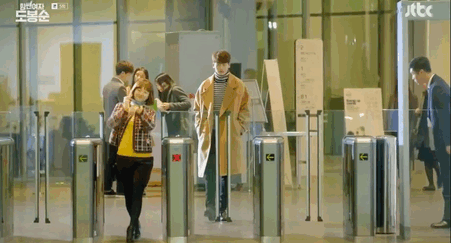
The humor. I’m not talking about the dumb hospital scenes that feature humor more similar to what you’d find in a crappy Hollywood “comedy” (peeing jokes, really?), but things like Hyung-Sik’s ad-libbing throughout the show (he’s having a blast), or the more funny interactions between Min-Hyuk and Bong-Soon, even the ever-changing Romeo and Juliet scenes as Bong-Soon’s feelings for the different characters evolve.
What I didn’t like:
The sudden disappearance of Min-Hyuk’s family. Initially, the show has two distinct storylines: the string of kidnappings/murders, on the one hand; and the threats to Min-Hyuk, likely related to the question of who in his family will become the new Chairman of Ohsung Group. As expected, Min-Hyuk has several brothers who are a bit jealous of his success with Ainsoft and intuit their father will name him the Chairman, so it makes sense one of them is behind the threats. Once the storyline is resolved however, Min-Hyuk’s family is completely out of the picture, even during his marriage, what I find extremely odd.
The randomness of the depowering rule. Very early on the show explains that, while the women of the Bong-Soon family are blessed with superhuman strength from birth, they can easily lose this ability should they try to use it for less than honorable pursuits. It can be something as simple, and apparently harmless, as using this strength to become an Olympic weightlifting champion, as Bong-Soon’s mother soon found out, but it’s usually tied to using this ability to hurt innocent people. Naturally, once this rule was made known, it was only a matter of time before Bong-Soon would lose her powers as well, and this did indeed happen towards the end of the show. The problem I have with it is two-fold: its execution and its consistency. Bong-Soon doesn’t purposefully hurt an innocent man, she’s tricked into doing so by the villain. One could argue that whatever higher power granted this ability can’t tell the difference, except that argument falls apart entirely when you realize Bong-Soon has already purposefully used her power to hurt innocent people, like that one time she crushed Min-Hyuk’s foot to keep him silent (among multiple examples). That this event is played for laughs should have no bearing on the outcome. Furthermore, we later see Bong-Soon pleading for her strength to return so she can save Min-Hyuk, so it would appear that whatever higher power was listening is intelligent. At the end of the day, we all know this happened because the writers didn’t want to limit the fun possibilities of Bong-Soon abusing her power a little bit, saving it for the right moment to amp the drama. So, in reality, I was aware of it, and decided to roll with it.
OTP: Cuteness overload.
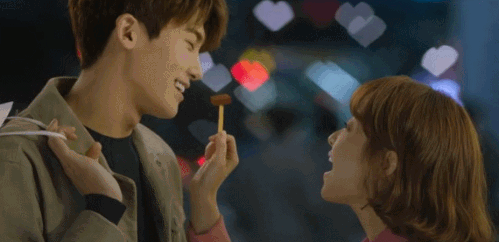
Verdict: This is one of the strongest shows in this list (no pun intended), more so given how much it’s able to pull off in 16 episodes as opposed to other shows’ 32, which is why I’m more lenient in terms of its writing. This is simply a good, fun, show, easily rewatchable thanks to the cute OTP. While its soundtrack may not be on par overall with the one from Angel’s Last Mission: Love, it still features some solid, memorable, songs (’Heartbeat’ by SURAN being the most obvious, but also ‘Double Trouble Couple’ by MAMAMOO, or ‘Super Power Girl’ by Every Single Day), not to mention a highly effective and comedic use of sound effects. Definitely one of my favourite shows.
Rewatch meter: High
And that brings us to the end of Part 1. I hope you had a good time reading through this post, maybe even found a show to your liking. What were some of your favourite shows in 2019? Stay tuned for Part 2!
#kdrama#while you were sleeping#kdrama w#my strange hero#the secret life of my secretary#angel's last mission: love#angel's last mission#strong woman do bong soon#strong girl bong soon#netflix#viki#kdramas
15 notes
·
View notes
Text
Classical literature honestly rated, part 1
Are some classical books overrated? Definitely! Do some people read classical literature and say it is good just to seem like an intellectual? Yes! Are there secretly hidden gems in the big pile of this overrated shit? Of course! I have read a great deal of classical literature and here is my honest opinion:
PS: some authors had a series, like Agatha Christie and Sir Arthur Conan Doyle. I’ve picked the most popular books from them.
Frankenstein, Mary Shelley: 10/10
My expectations for this book were incredibly low. I have always despised how Frankenstein and his monster were depicted in the media. Old man in a lab coat, Lightning, IT’S ALIVEEE, some green man with bolts in his head. But it was absolutely not that! Frankenstein is the story of a young man with a god complex who creates his own ‘adam’. It all turns out into some bloody murder thriller, with the best dialogue I’ve ever encountered.
A Study in Scarlet, Sir Arthur Conan Doyle: 7/10
Alright, I’ve seen the tv adaptation of the book in Sherlock, but it does not compare to its original. First of all, Sherlock Holmes is an actual good character, not some asshole? He was the first literature character that I related to. And how Watson is the one writing his story down makes it feel real somehow. It is also very interesting to read how crime-scene-investigations went in that time period. (a puddle of the killer’s blood? Gross, mob it up!). But, though it is a short story it feels quite slow.
The Devine Comedy, Dante Alighieri: 5/10
So, Dante’s Devine Comedy shaped the modern view on heaven and hell. The things he described in this book were so graphic that artists based their depiction of hell on it. And truly, the storytelling is creative (Dante himself is the main character who makes a journey through the rings of hell all the way to paradise), and the descriptions are quite graphic (murders get boiled in a river of blood! yey!), but it is a very long book that feels so slow, it’s like you yourself are walking down the rings of hell yourself. I did not get further than Inferno (the first part of three, about the rings of hell) and I would rather be boiled in blood than read on.
The Great Gatsby, F. Scott Fitzgerald: 9/10
This... this book blew me out of the park. Before reading this I had never even touched a classical book before. The phrasing is incredibly poetic, the characters are all wonderful, the scenes are described so well it is like you are standing in the middle of them. The emotions and the mystery of the main story added to this pile of things finishes it off perfectly. But I swear if I see one more line from this book quoted by some hipster blog or stolen by that Atticus guy, I’m going to [spoiler redacted].
Les Miserables, Victor Hugo: 7/10
It took me reading this book hours every day for 3 weeks straight to finish it but man was I glad I did it! The many complicated (complicated in the good, Shakespearian sense) characters with all their own complicated (again, in a good way) storylines are iconic. Iconic, that’s the only word I can find for it. And poetic. Some lines are so beautiful and inspirational I had to underline them. But that good old Victor Hugo, Uncle Vic, HE DOES NOT KNOW HOW TO SHUT UP. I love the book, I do, but when I was on page 1800 reading about the history of the sewer system in Paris, I almost closed the book for good. Also, I skipped that whole Waterloo business. It was bullshit.
Oliver Twist, Charles Dickens: 3/10
I tried. I really did. I had to read an English novel for my English course and I choose Oliver Twist. I played in a musical about it, I saw the movie... but the book. Dear god. It was TOUGH. I have read a total of 5 chapters, maybe? And I have never even touched a Dickens ever since.
The Odyssey, Homerus: 7/10
I guess it depends on which translation you get, but I loved mine. I could taste the wine, sweet as honey. I could smell the olive oil on their skin. Though the book is almost entirely event-based and Odysseus cheats on his wife several times, it is overall a fun story about a likeable hero. Though, I read the Geronimo Stilton version when I was little and I liked that one far better.
Dracula, Bram Stoker: 7,5/10
Another book I thought would be horrible, based on its depiction in the media. Seduction, Crosses, a vampire seeking his lost bride. Absolutely not. Stoker is sometimes so exact in its description of horrors I got nauseous. The characters, both men and women, are likeable, and the book is set up as if it is a collection of information on Dracula and how to defeat him. Like a manual, how creative! Though, if it were up to me I’d have chosen a different set-up, with a different starting point and a different main character. But, that is just taste I suppose.
The Murder on the Orient Express, Agatha Christie: 6/10
Have you seen the movie? Did you like it? It’s exactly the movie. The main character, Poirot does some thinking aloud, but otherwise, he does not really explain his deductive thinking. This makes the book detailed on some points and vague on others.
1984, George Orwell: 5/10
The classic! The..... boring. Though the ideas that Orwell proposes of a dystopian future are perfect, the story in which it is presented is very boring. A love-affair, seriously? People are DYING George! The ending is very interesting, though.
Any play by Shakespeare: fuck off/10
Listen, I love Shakespeare. I read his sonnets, I’ve seen multiple plays and movies of Shakespeare. But to actually READ Shakespeare’s plays? What the hell! I read one scene of Hamlet (which I adore very much) and I had to lie down for a moment. “That’s just because you’re perhaps not used to reading such difficult literature” shut up you elitist jerk. English may not be my native language but I am still damn good with it. I believe Shakespeare’s plays are meant to be SEEN by the public and READ by the actors.
#literature#books#book#frankenstein#classical literature#mary shelley#sherlock holmes#sh#sir arthur conan doyle#a study in scarlet#the devine comedy#dante#the great gatsby#great gatsby#f scott fitzgerald#Les Miserables#the brick#les mis#Victor Hugo#oliver twist#charles dickens#odysseus#odyssey#homer#Greek Mythology#greek myths#dracula#bram stoker#the murder on the orient express#agatha christie
402 notes
·
View notes
Quote
“He’s not prudish. But seeing your dad naked is a lot for a lad to take.”
RG to The Guardian {x}

Rupert Graves’s eldest son got a nasty shock recently when he went on a school trip to see the 1987 Merchant Ivory adaptation of EM Forster’s gay love story Maurice. “He didn’t know I was in it,” the actor says over a morning cappuccino in a north London brasserie. “He went, ‘Argh! No way!’ and ran out.” He actually fled the cinema? “Yeah. ‘I can’t watch my dad naked on screen in front of all my mates. Can’t do it.’” He might also wish to steer clear of A Room with a View, which his father made with the same team two years earlier — his film debut, in fact — and in which he is seen throwing off his clothes to cavort in the lake and scamper through the undergrowth. “He’s not prudish. But seeing your dad naked is a lot for a lad to take.”
Some people would be positively thrilled at the prospect of a naked Rupert Graves: his devoted fans, the GravesDiggers, for example, or Mark Gatiss, screenwriter and star of Sherlock, in which Graves plays Inspector Lestrade. “I’ve had a crush on Rupert Graves since I was 14,” Gatiss admitted in 2014, then added: “Who hasn’t?” Graves, 56, who is today wearing round-framed glasses and a bedhead of salt-and-pepper hair, keeps his kit on in his new film, Horrible Histories the Movie: Rotten Romans, a big-screen version of the popular CBBC franchise which comes on like Monty Python Jr. He plays a centurion whose unexpected pauses keep wrong-footing his underlings. Thinking he is telling them to attack, they gather up their weapons in preparation, when what he has really said, if they’d only waited, is: “‘We attack!’ … would be the words of a rash man.” There’s nothing here to embarrass any of Graves’s five children, give or take the rap he delivers on horseback (sample line: “I’ve got 99 problems but a bridge ain’t one”).
He shrugs when I ask what the secret is to playing comedy. “I haven’t really done any. It’s stylised reality, isn’t it? Picking out bits and exaggerating them. But it’s got to be true.” Of course, he’s been funny in films before. He was superb as the lodger romantically involved with his landlady and her daughter in Intimate Relations. There was that bit, I remind him, where he wanted to accuse Julie Walters’s character of being a hypocrite but he couldn’t think of the word so he ended up shouting: “You’re a hippo!” He smiles back at me blankly. He doesn’t remember it. And last year he was in Swimming With Men, a kind of underwater Full Monty. “Yeah but I wasn’t playing an insane centurion doing a rap,” he laughs. “OK, I was an insane guy with a nose-clip on doing synchronised swimming, but it’s not quite the same.”
If there has been any pigeonholing, it came at the start of his career, when his performances in those Merchant Ivory films, as well as in two by Charles Sturridge, Where Angels Fear to Tread (Forster again) and A Handful of Dust(Waugh), encouraged misconceptions about his background. His name only sealed the deal. “Do you know what? Genuinely, it helps in this business being called Rupert. I’ve sniffed that attitude in acting: the Oxbridge thing. Making movies isn’t a cheap exercise. You need money and the knock-on from that is the industry is populated by a lot of posh people. It’s very hard to break into if you’re not middle class and privately educated.” Or if you don’t have a name that suggests you are. But if being called Rupert boosted his chances, it was a blight on his early years. “I hated it as a kid. I really wished I was called Pete.” Were there any significant Petes in his life? “Only Peter Purves on Blue Peter. Rupert is a ridiculous name in 1970s Weston-super-Mare. Ridiculous! It’s like being called Basil.”
Graves speaks in short bursts and clipped sentences as though he’s slightly out of breath, but he is at his most fluid when conjuring up the landscape of his youth. “It was one of these strange and dying seaside towns where the package holiday had killed off most of the trade, so the hotels had to lower their prices. It was the end of a line. A decaying, Thatcherite, druggy sort of place with no investment and no hope. I was always being chased by skinheads. It had some peculiar qualities, being by the sea and near Cheddar, some beautiful land. And it was blasted by the weather, which comes up the Bristol Channel and thumps Weston first. As a kid, it was great to hide behind the buildings as waves would smack them. The weather was physical and exciting. It gave the town character.”
At school, he was dreadfully shy and suffered from a stammer, but was also an incorrigible show-off. “I was hyper. My shyness meant I overcompensated, just to get anything out of my mouth at all. I had to summon up so much courage to even speak and then I got carried away because I’d mustered all that energy.” He went to a speech therapist to overcome the stammer and it was she who spotted his acting potential. Turns with the local operatic society followed; he also performed at the end of the pier, miming to songs and delivering Victorian comic monologues. What did he get out of it? “The warmth of the approval.” He found himself an agent from the back of the Stage (“I don’t even think we met”) and took on bits and bobs of TV work while still at school, including his turn as a prefect — his first toff — in the spy series Return of the Saint.
He adored working with James Ivory. “He would say things like, ‘Put your pipe in upside down.’ ‘Why?’ ‘Because it’s funny.’ He was right. It was funny. In a Magritte sort of way.” But people started cooling on the costume-drama craze at the end of the 1980s. “There was a backlash. I thought, ‘This is really unfair!’ I didn’t go to any fucking posh schools and I was getting lumped in with that.” The director Alan Parkerfamously derided the Merchant Ivory output as “the Laura Ashley school of film-making.” Graves scoffs. “That was horrible. Really stupid. Forster was actually trying to say something.”
But he was looking for a new direction around that time anyway. “The whole industry thought I was Posh Rupert and I wasn’t. I didn’t know people who lived in Fulham and Chelsea, I didn’t know what they thought or what they ate for breakfast.” He reacted by taking on parts which were worlds away from parasols and linen trousers. The most notable was Open Fire, a 1994 TV film written and directed by Paul Greengrass, in which Graves was ferocious and banshee-like, all nails and hair and heels, as the real-life cross-dressing criminal David Martin. He also played a laddish motorcycle courier reunited with a transgender school pal in Different for Girls. It was theatre that really excited him, though, and still does. “You don’t tend to get typecast in theatre.” He was in Torch Song Trilogy with Anthony Sher, the Broadway run of Patrick Marber’s Closer, Pinter’s The Caretaker with Michael Gambon. When I ask whether there is any screen work that he would like people to catch up with, he says: “I can think of plays.” But they’re gone. “Argh! I know. That’s the beauty of it. And the pain.”
He thinks he could have been a bigger star if he’d worked at that side of things. “I’m just not ambitious in a career-building way. I’m not good at being polite to the right people. I’m not strategically engaged.” He can’t think when he last did something that would count as networking. “People do it. But I never did. I find it a bit grubby. I can see the benefits. I’ve been lucky that I can keep afloat and not be either too hassled on the street or have to do any of the business side of things, which I’m shit at.” Afloat is an understatement: he has excelled in some of Sally Wainwright’s best work (as a dodgy barrister in the first series of Scott & Bailey and as Derek Jacobi’s long-lost son in the third Last Tango in Halifax), and appeared on stage in the acclaimed season of Pinter’s short plays at the start of this year. He will soon be seen as Mr Weston in a starry new film of Jane Austen’s Emma, alongside Anya Taylor-Joy, Johnny Flynn, Bill Nighy and Miranda Hart.
Throughout our conversation, he has been charming company while also giving the impression of a runner on the starting blocks, poised to scarper the second he hears the pistol. Once we’ve wrapped up, he rises to his feet quickly and knocks a knife off the table, catching it before it hits the floor. “That’s the thing about getting old,” he says, returning the cutlery to its place. “I’ve become a dropper. I’m always dropping things.” Is he a forgetter yet? “Oh yeah. But I’ve always been a forgetter. Never remember names. Not even in scripts.” And there I was expecting you to recall a line of dialogue from nearly 25 years ago, I say. He laughs and makes a noise I’ve never heard before — “Nyyyyyyr! Nyyyyyyr!” — and then — on your marks, get set — he’s gone.
#RG#rupert graves#quotes I like#the man who made me like men#all things MG#so#i didn't want to post the whole#interview#but#well#i never get the chance#to post#from the same interview#with the net playing havoc#and#i need this#in my blog#the whole chat#so that's it#gravesdigiggers#is mentioned!!#:)
10 notes
·
View notes